- 1Select Items
- 2Delivery Options
- 3Gift Aid
- 4Name & Address
- 5Further Details
- 6Discounts
- 7Payment
Female Trouble (18)
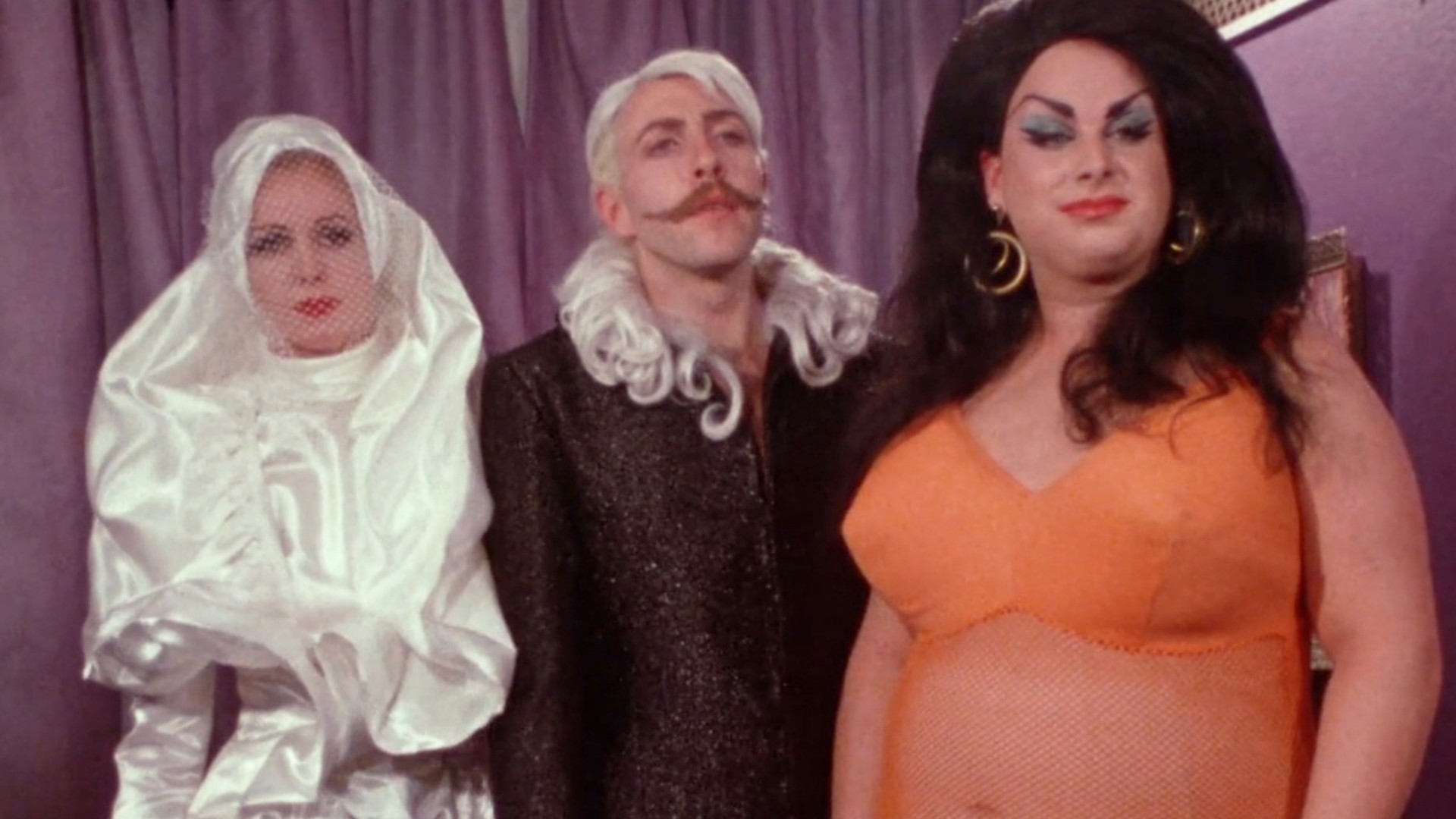
Glamour has never been more grotesque than in John Waters' dark comedy, Female Trouble, which sees a high-school delinquent hell-bent on getting cha-cha heels for Christmas turn into a fame monster with egomaniacal impulses.
Made directly after his notorious cult hit Pink Flamingos and with much of the same cast, John Waters’ 1974 film was the director's favourite of his work with his larger-than-life muse, Divine. In this film, Divine plays Dawn Davenport, a delinquent high-schooler who is hell-bent on getting cha-cha heels for Christmas. The course of the film sees Dawn turn into a fame monster with egomaniacal impulses that land her in the electric chair. Dawn is the living embodiment of the film’s lurid mantra, "Crime is beauty."
Buy Tickets
|
"Wuthering Heights" (15)

★★★★★ – Telegraph. Set against the backdrop of the Yorkshire moors, Cathy and Heathcliff are intense, destructive, and obsessive in their love for one another in Oscar-winning director Emerald Fennell's adaptation of Emily Brontë's classic.
Customer update: LAZY SUNDAY tickets for Sun 15 Feb are SOLD OUT; however regular film tickets are still available.
"★★★★★ – a bosom-heaving, gasp-inducing thrill ride" – Telegraph
"★★★★ – a full-blooded and invigorating reimagining" – NME
Emerald Fennell (Saltburn, Promising Young Woman) adapts Emily Brontë’s gothic classic Wuthering Heights, bringing her bold, provocative style to the passionate and tumultuous love story of Catherine Earnshaw (Robbie) and Heathcliff (Elordi).
Set against the backdrop of the Yorkshire moors, Cathy and Heathcliff are intense, destructive, and obsessive in their love for one another. With a score composed by Anthony Willis, and Charli XCX contributing an album of original songs, the Oscar-winning director's take on the classic is vibrant, stylish, and erotic.
The Testament of Ann Lee (15)
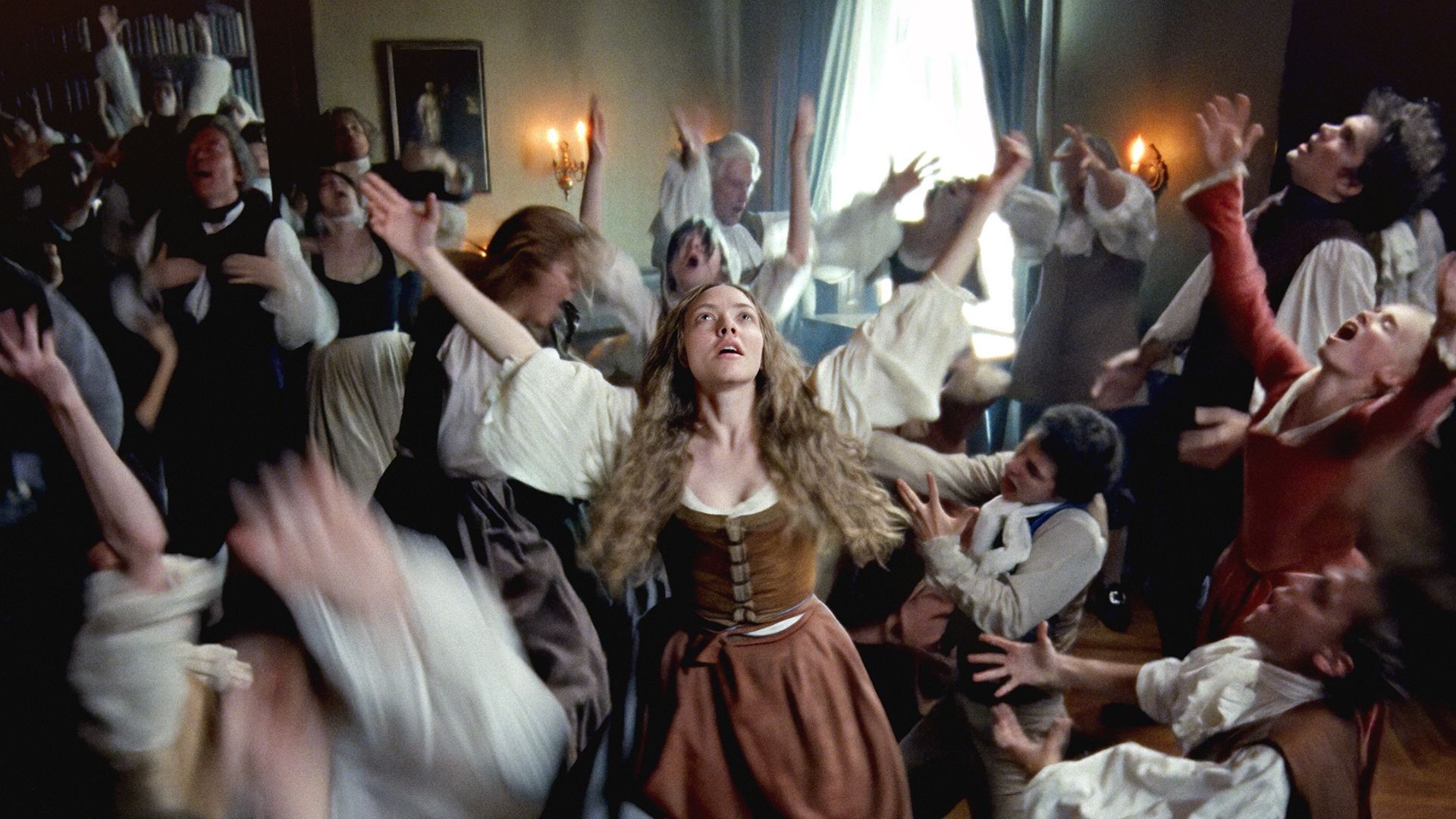
From the co-writer of The Childhood of a Leader and The Brutalist, Mona Fastvold’s film is ambitious, epic and wholly original – a beguiling portrait of Ann Lee, the founding leader of the Shakers religious sect in the 18th century.
“★★★★★ – a wild, wonderful tribute to one hell of a woman and Seyfried is the glowing flame at its heart” – Evening Standard
“★★★★★ – the stuff of masterpieces" – Irish Times
“★★★★ – I was left wobbly and breathless by its grandeur and nerve" – Telegraph
Mona Fastvold’s latest offering is a beguiling portrait of Ann Lee, the founding leader of the Shakers religious sect in the 18th century. Moving from Manchester to New York to establish a utopian society based on gender equality, communal living and ecstatic devotion, Ann gathers followers and detractors in equal measure. As you would expect from the co-writer of The Childhood of a Leader and The Brutalist, Fastvold’s film is ambitious, epic and wholly original – throwing us into the fervour of the Shakers’ worship with audacious song and dance sequences.
Buy Tickets
|
Twinless (15)

Roman (Dylan O'Brien) joins a support group for bereaved twins in this disarmingly funny dark comedy on loss, co-dependency and loneliness.
After the death of his identical twin brother, Roman (O’Brien) joins a support group for bereaved twins where he meets Dennis (Sweeney). The two quickly become close, but when Roman meets Dennis’s ebullient colleague Marcie (Aisling Franciosi), he realises all is not as it seems.
An exhilaratingly original and disarmingly funny black comedy on loss, co-dependency and loneliness that takes a wild ride into unexpected places.
The Secret Agent (15)
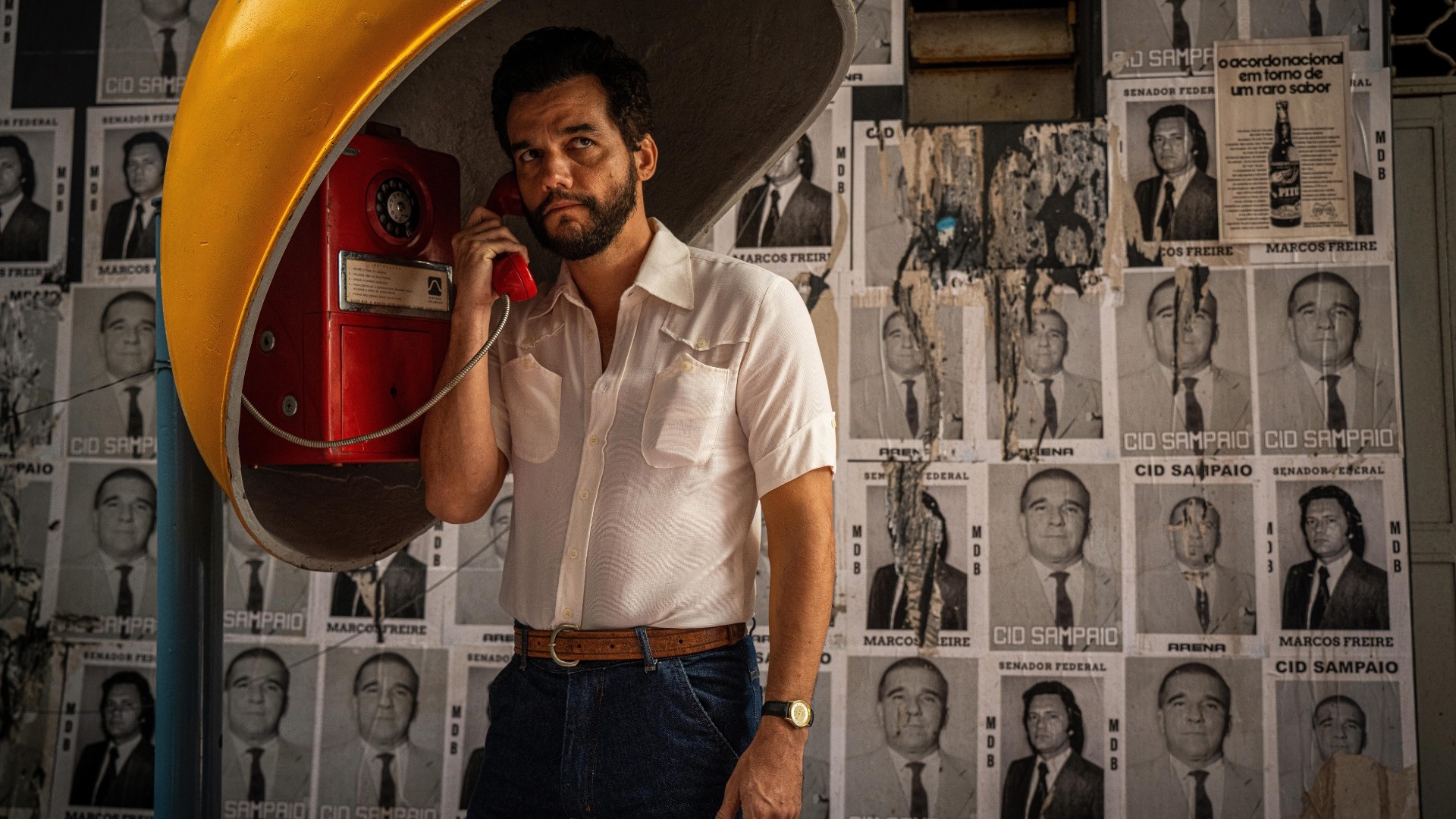
★★★★★ – Guardian. In 1977 Brazil, technology specialist Marcelo, fleeing a mysterious past, returns to Recife in search of peace, but realises the city is far from the refuge he seeks.
“★★★★★ – visually and dramatically superb in every way” – Guardian
“★★★★★ – an astonishing cinematic experience" – Empire
“★★★★★ – An intimate epic that always delivers the unexpected" – Little White Lies
“★★★★ – rivals a Hitchcock thriller” – Telegraph
Now nominated for 4 Oscars including Best Picture and Best Actor, Kleber Mendonça Filho's new film is an unpredictable, shapeshifting thriller that also claimed the Best Director and Best Actor gongs at Cannes.
Brazil, 1977. Amid the revelry of Carnival, in the vibrant and violent city of Recife, a widowed technology researcher unwittingly finds himself on the run from mercenary killers in the turbulent political maelstrom of the military dictatorship. Aided by his compatriots in the country’s growing underground resistance, he must find a way to escape the country with his young son.
It's Never Over, Jeff Buckley (15)

★★★★ – NME. Through never-before-seen footage, exclusive voice messages and personal accounts, this lovingly crafted tribute explores the music, influences, relationships and legacy of nineties alt-rock icon, Jeff Buckley.
★★★★ – NME
Through never-before-seen footage, exclusive voice messages and personal accounts, this lovingly crafted tribute explores the music, influences, relationships and legacy of nineties alt-rock icon, Jeff Buckley.
From his fraught family life and deep musical loves, to the astonishing recording of his only studio album, Grace, and his tragic untimely death aged just 30, director Amy Berg crafts a tender, captivating and emotional ode to the man and the musician.
NT Live: The Audience (12A)
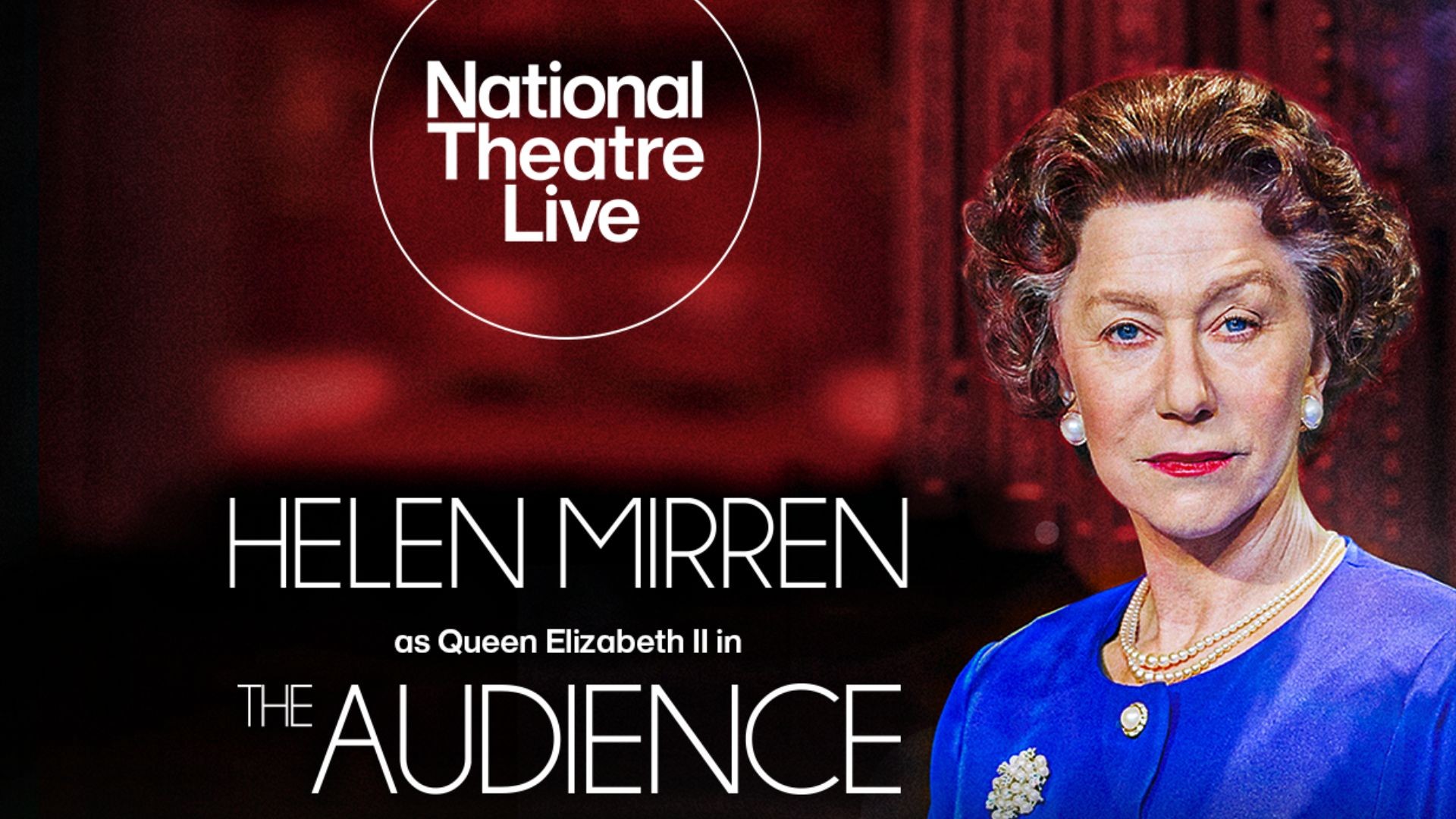
Returning to cinemas for the first time in over a decade, Helen Mirren plays Queen Elizabeth II in the Olivier and Tony Award® -winning hit production, directed by Stephen Daldry.
Returning to cinemas for the first time in over a decade, Helen Mirren plays Queen Elizabeth II in the Olivier and Tony Award® -winning hit production, directed by Stephen Daldry.
For 60 years, Queen Elizabeth II met with each of her 12 prime ministers in a private weekly meeting. This meeting is known as The Audience. From Winston Churchill to Margaret Thatcher and David Cameron, the Queen advised her prime ministers on matters both public and personal. Through these private audiences, we see glimpses of the woman behind the crown and witness the moments that shaped a monarch.
Peter Morgan’s Netflix phenomenon The Crown was based on this hit play that was captured live from London’s West End in 2013 and went on to become one of the most-watched NT Live productions.
The President's Cake (12A)
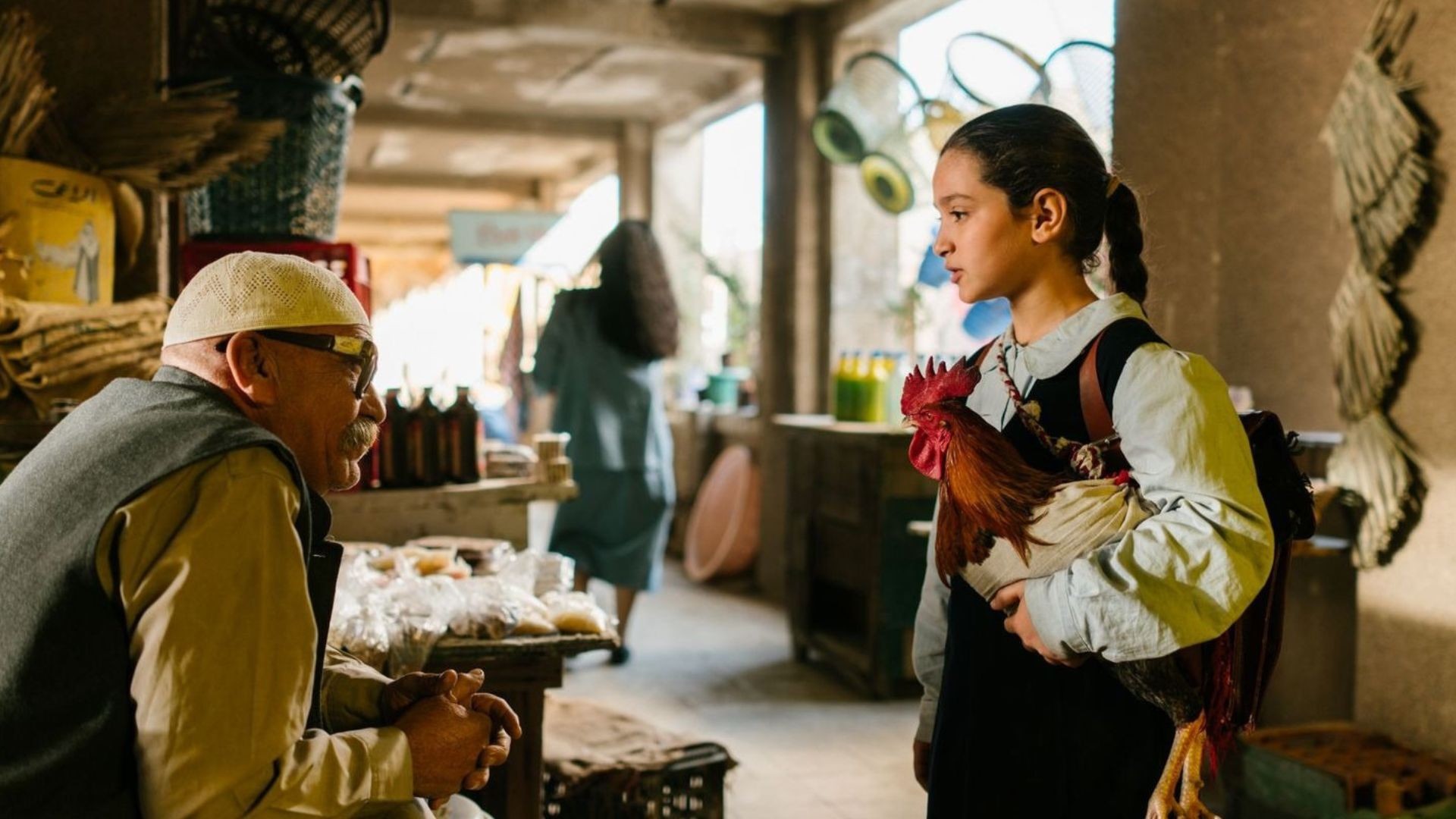
1990s Iraq and Lamia, a nine-year-old schoolgirl who lives with her ailing grandmother, is selected for the challenging task of making Saddam Hussein's birthday cake.
1990s Iraq and Lamia, a nine-year-old schoolgirl who lives with her ailing grandmother, is selected for the challenging task of making Saddam Hussein's birthday cake for the annual local celebrations.
Struggling to find the ingredients and with the family facing punishment if she fails, Lamia and her grandmother head to the nearby city. But they are soon separated and the city is dangerous palce for the young. Hasan Hadi’s engrossing debut feature won multiple awards at Cannes.
In Arabic with English subtitles.
If I Had Legs I'd Kick You (15)
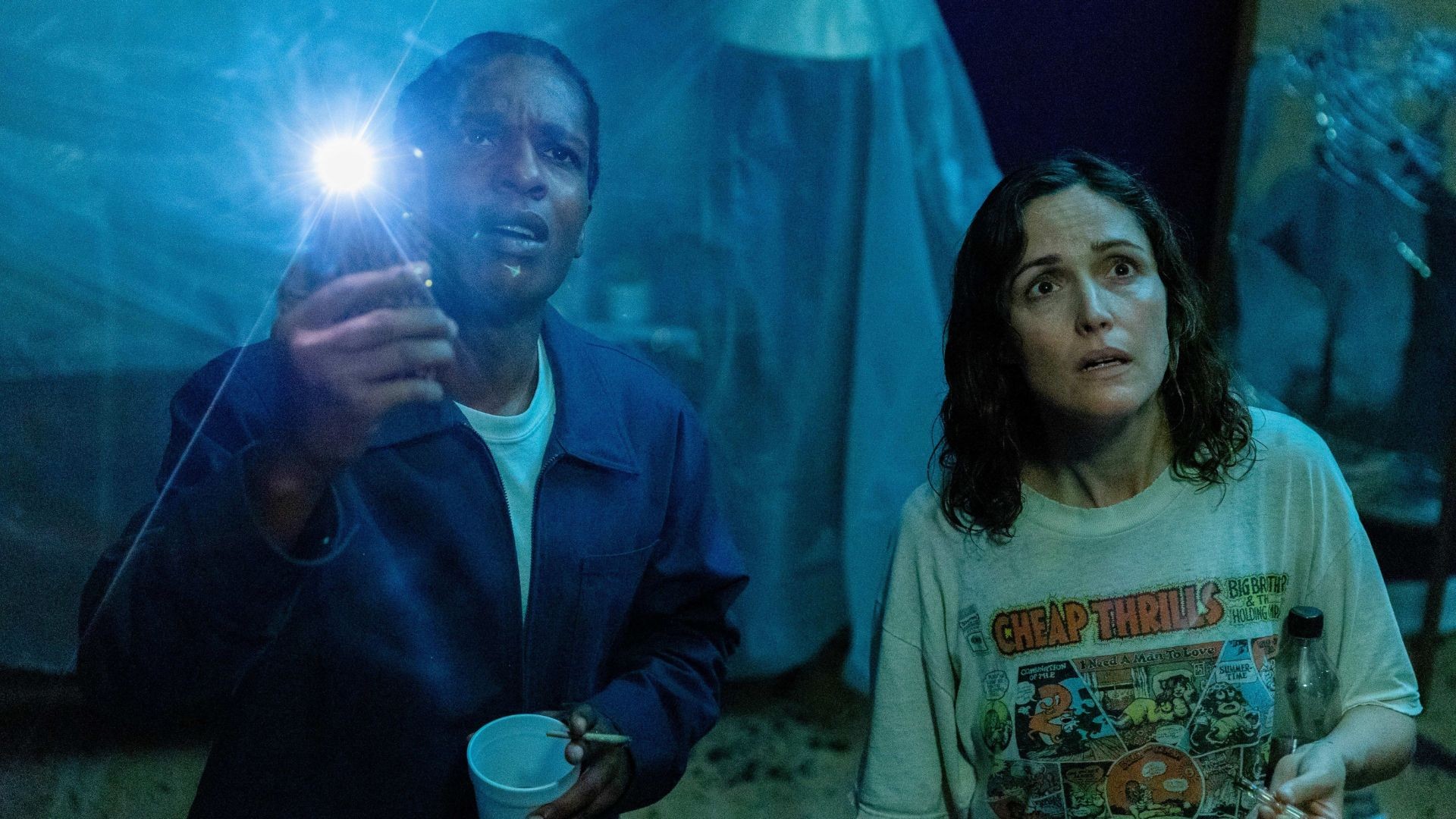
★★★★★ – Time Out. Now Oscar and BAFTA -nominated for Best Actress, Rose Byrne (Bridesmaids, Platonic) gives a mesmerising performance in this thrilling exploration of motherhood.
"★★★★★ – It’ll propel you back out the cinema doors with a mighty roar" – Time Out
★★★★★ – Little White Lies
★★★★ – Independent
★★★★ – Empire
★★★★ – Guardian
★★★★ – Financial Times
★★★★ – The Times
With her life crashing down around her, Linda (Byrne) attempts to navigate her child's mysterious illness, her absent husband, a missing person, and an increasingly hostile relationship with her therapist (Conan O'Brien).
Sharply funny and deeply resonant, If I Had Legs I'd Kick You is an electrifying drama from filmmaker Mary Bronstein, anchored by a mesmerising, Oscar and BAFTA-nominated performance from Rose Byrne.
Wasteman (18)
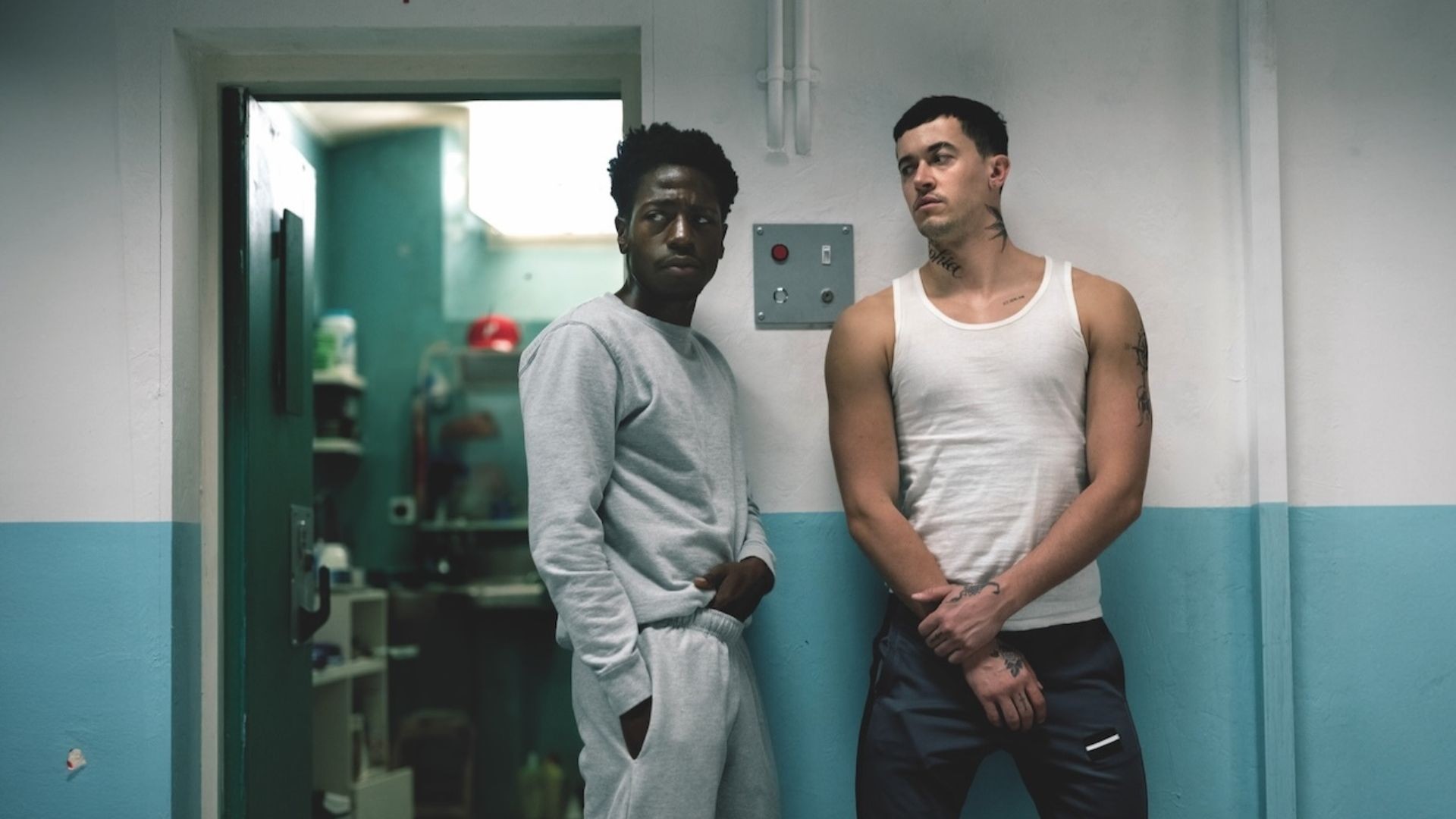
Cal McMau’s acclaimed feature debut stars David Jonsson (Industry, Alien: Romulus) as Taylor, a parolee whose chances for early release come under threat from his violent new cellmate.
Cal McMau’s acclaimed feature debut stars David Jonsson (Industry, Alien: Romulus) as Taylor, a parolee whose chances for early release come under threat from his violent new cellmate Dee (Tom Blyth).
After years in prison, in which time his son has grown up without him, Taylor’s parole is approaching. It’s bad timing, then, that new cellmate Dee ropes Taylor into violent inmate rivalries, endangering his fresh start.
An intense and claustrophobic portrait of a merciless prison eco-system, featuring standout performances from rising British stars David Jonsson and Tom Blyth.
We are collecting books for Free Books Campaign during Wasteman’s run at Phoenix. These will be donated to a local prison – if you wish, please donate your books via our Box Office.
TOPS + Q&A (18)
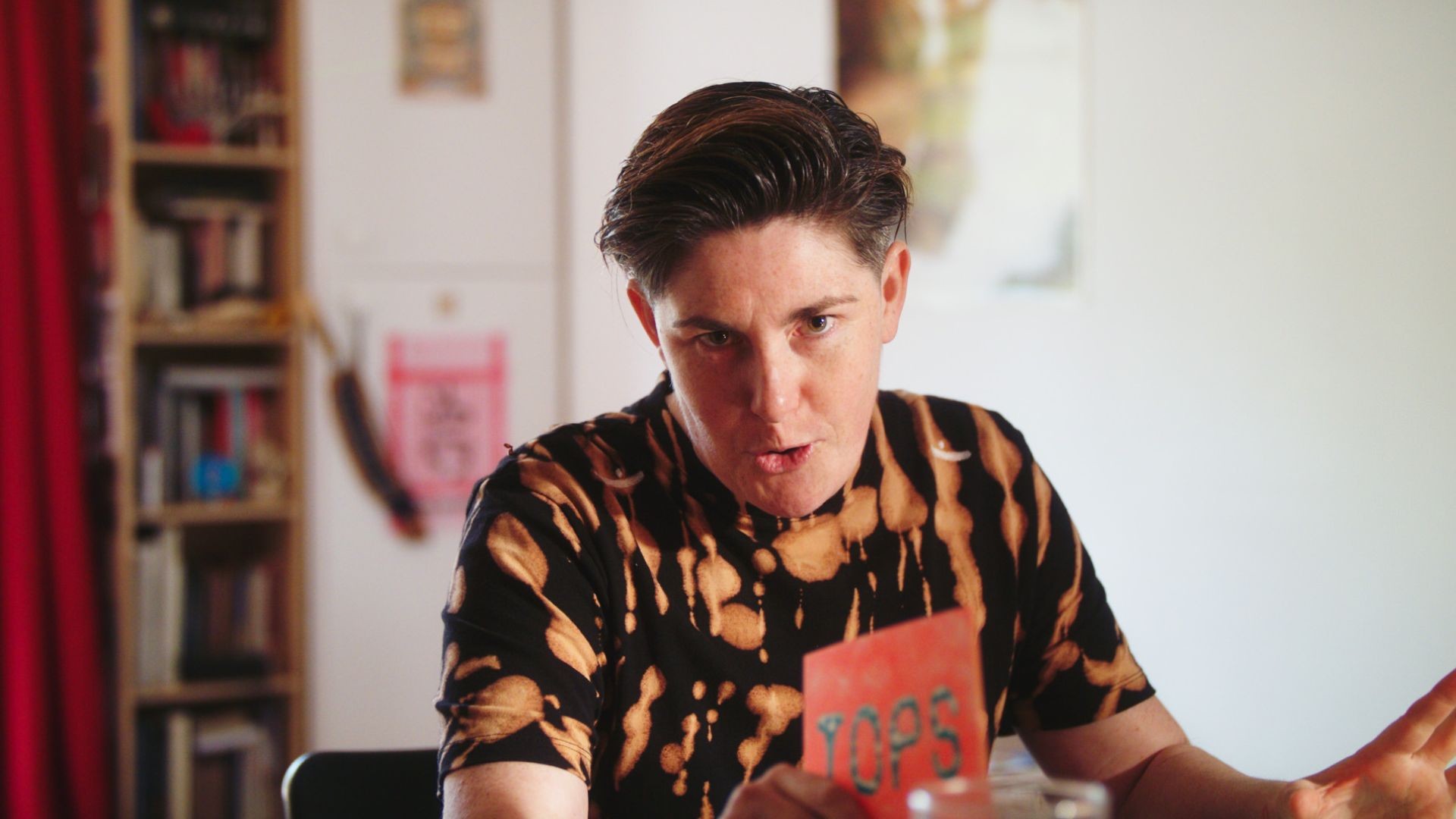
Fun, satirical, and a pastiche of the chaotic, brash, self-deprecating tone of 1990s/2000s British reality TV, TOPS is filmmaker Ames Pennington’s landmark faux-documentary.
Fun, satirical, and a pastiche of the chaotic, brash, self-deprecating tone of 1990s/2000s British reality TV, TOPS is filmmaker Ames Pennington’s landmark faux-documentary.
Casting themself as an invasive TV presenter, Ames embarks on a satirical odyssey into the lives and homes of four unique individuals, exploring the crucial question that defines the transmasc experience: “What top did you want to wear after top surgery?”.
In a desperate attempt to make their first trans friend, the intrusive and neurotic yet lovable Ames delves into the worlds of four people who have undergone the procedure. The interviewees open up their lives, homes and - in one case - a bag of dicks to the presenter.
Juxtaposing abrupt, gut-busting comedy with tenderness, TOPS creates space for conversations about the vulnerability of surgery without adding to the pile of sad or gory trans stories in mainstream media. Yes, your nipples might fall off—but you can still have a laugh.
Director Ames Pennington will join us for a post-screening Q&A, hosted by Jaye Hudson from TGirls On Film.
TGirls On Film is a trans-feminine archival project that explores the socio-political context of trans-feminine audio-visual culture.
Buy Tickets
|
The Princess Diaries - Pyjama Party (U)
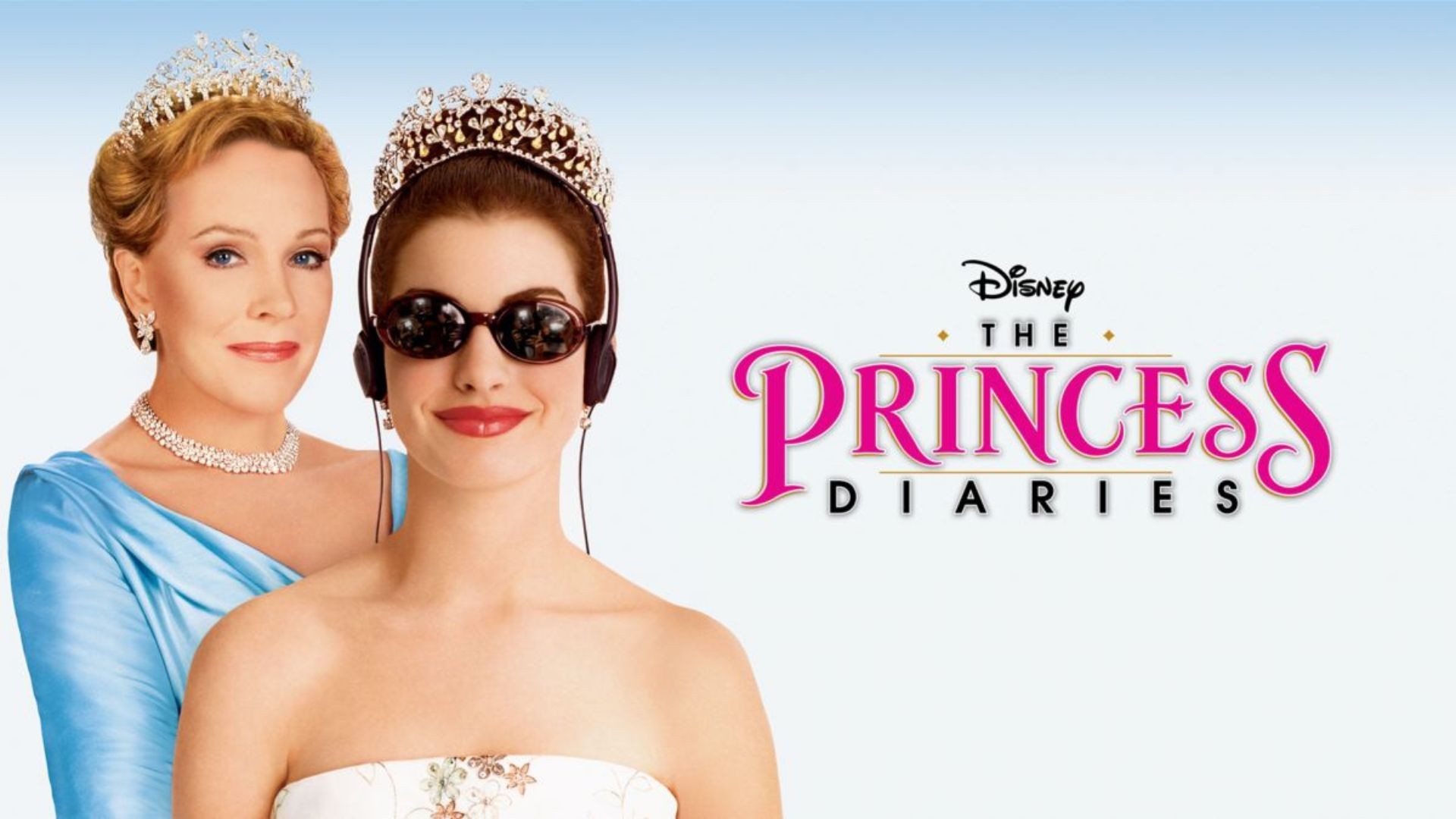
“Me, a princess? Shut Up!” 15-year-old Mia (Anne Hathaway) discovers she is heir to the throne of Genovia in this noughties coming-of-age classic.
“Me, a princess? Shut Up!” 15-year-old Mia (Anne Hathaway) discovers she is heir to the throne of Genovia in this noughties coming-of-age classic. Torn between her life in San Francisco and moving to Genovia to fulfil her royal duties, Mia must suffer through ‘princess lessons’ with her grandmother Queen Clarisse (Julie Andrews).
Presented in partnership with LUSH Leicester, expect themed drinks, games, and our now-famous pyjama party tombola! Ticket price includes a welcome drink and a themed LUSH goody bag on arrival.
Buy Tickets
|
Sentimental Value (15)
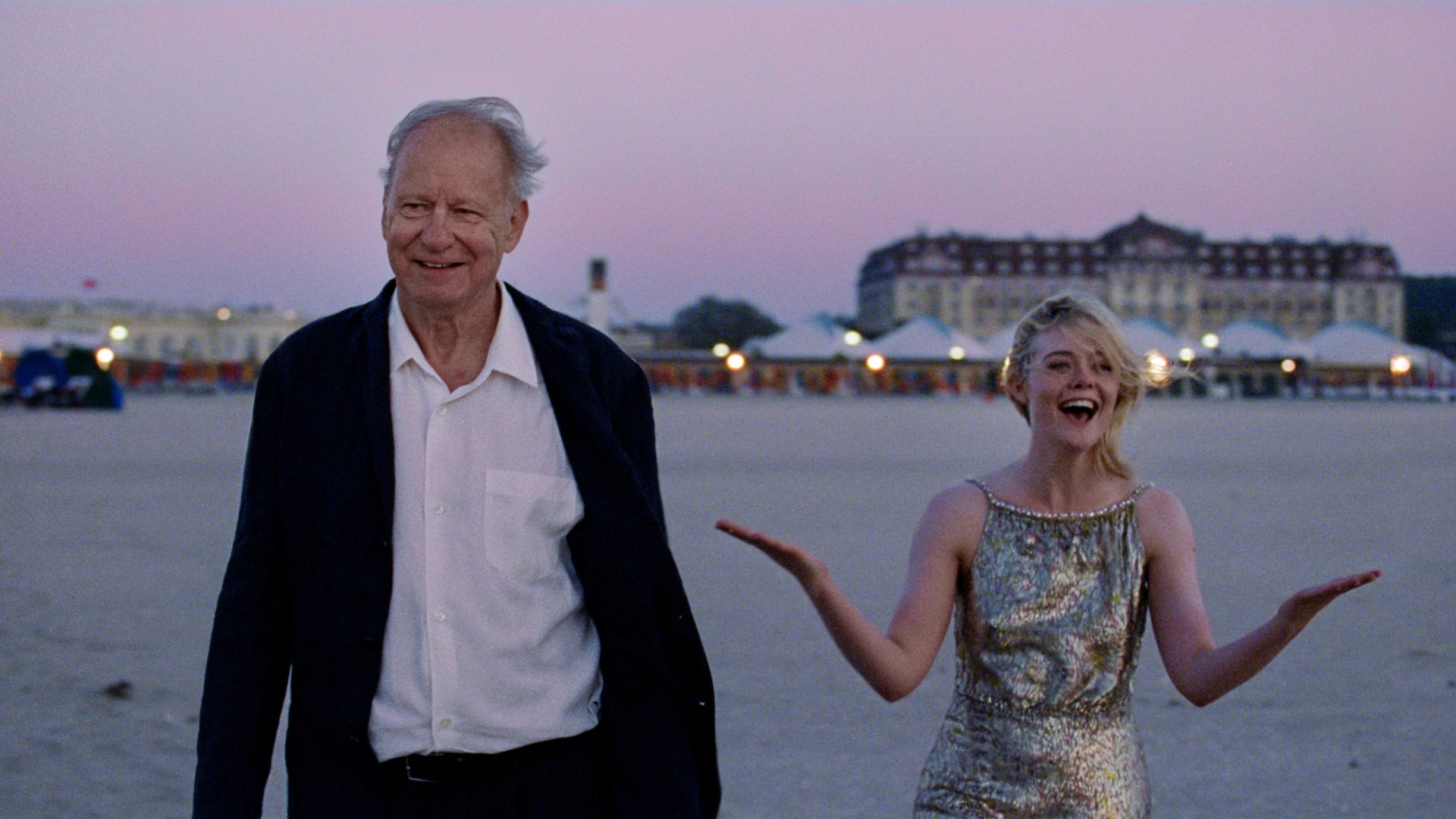
★★★★★ – Telegraph. Following the critically acclaimed The Worst Person in the World, Joachim Trier and Renate Reinsve reunite for this Cannes Grand Prix-winning drama, following an aging director who tries to reconnect with his estranged daughters.
"★★★★★ – should cinema this intelligent be this much fun to watch?" – Telegraph
"★★★★ – an immensely moving portrait of knotty familial ties and generational homes, which is heartbreaking and healing" – Flickering Myth
★★★★ – Metro
★★★★ – Time Out
Now nominated for 9 Oscars and 8 BAFTAs including Best Picture, Best Director, Best Actor and Best Actress, Joachim Trier's Cannes Grand Prix-winning drama returns due to demand.
Following the death of their mother, adult sisters Nora and Agnes reunite with their eccentric film-director father Gustav (Stellan Skarsgård) who left them years ago. Their relationship becomes ever more complex when Gustav offers Nora a role – in his new film exploring the family story. A masterful exploration of family, memories, and the reconciliatory power of art.
English and Norwegian with English subtitles.
Missing Child Videotape (18+)

From the team behind J-Horror classic Ju On: The Grudge comes a terrifying new ghost story of slow-burn dread and chills.
From the team behind J-Horror classic Ju On: The Grudge comes a terrifying new ghost story of slow-burn dread and chills.
Keita is a young man haunted by guilt for the disappearance of his younger brother who vanished into the mountains they explored as children. Years later, when a mysterious VHS tape arrives seemingly capturing the exact moment of his brother’s disappearance, Keita returns to the mountain, retracing their steps into a haunting mystery where memory, guilt and the supernatural intertwine.
PLEASE NOTE: Films without BBFC certification can only be screened to over 18s. However, this does not necessarily mean that the films contain adult content.
Screening as part of the Japan Foundation Touring Film Programme 2026.
Image credit: © 2024 “Missing Child Videotape” Film Partners
Buy Tickets
|
Othello (15)

Shakespeare’s Othello rages to life like never before in a new production starring David Harewood OBE (Homeland, Best of Enemies), Toby Jones OBE (Mr Bates vs the Post Office), Caitlin FitzGerald (Succession).
★★★★ – Telegraph
Shakespeare’s Othello rages to life like never before in a new production starring David Harewood OBE (Homeland, Best of Enemies), Toby Jones OBE (Mr Bates vs the Post Office, Detectorists), Caitlin FitzGerald (Succession, Masters of Sex), Vinette Robinson (Boiling Point) and Luke Treadaway (A Street Cat Named Bob).
Directed by Tony Award-winner Tom Morris OBE (War Horse, Dr Semmelweis, The Grinning Man) with music by PJ Harvey, this epic story of manipulation, jealousy and toxic masculinity explores the darker side of power, rage and desire.
Filmed live at the Theatre Royal Haymarket in London especially for the big screen.
Please note - the screening on Sat 7 Mar has subtitled dialogue but does not feature descriptive subtitles of music or sound effects.
Sinners (15)
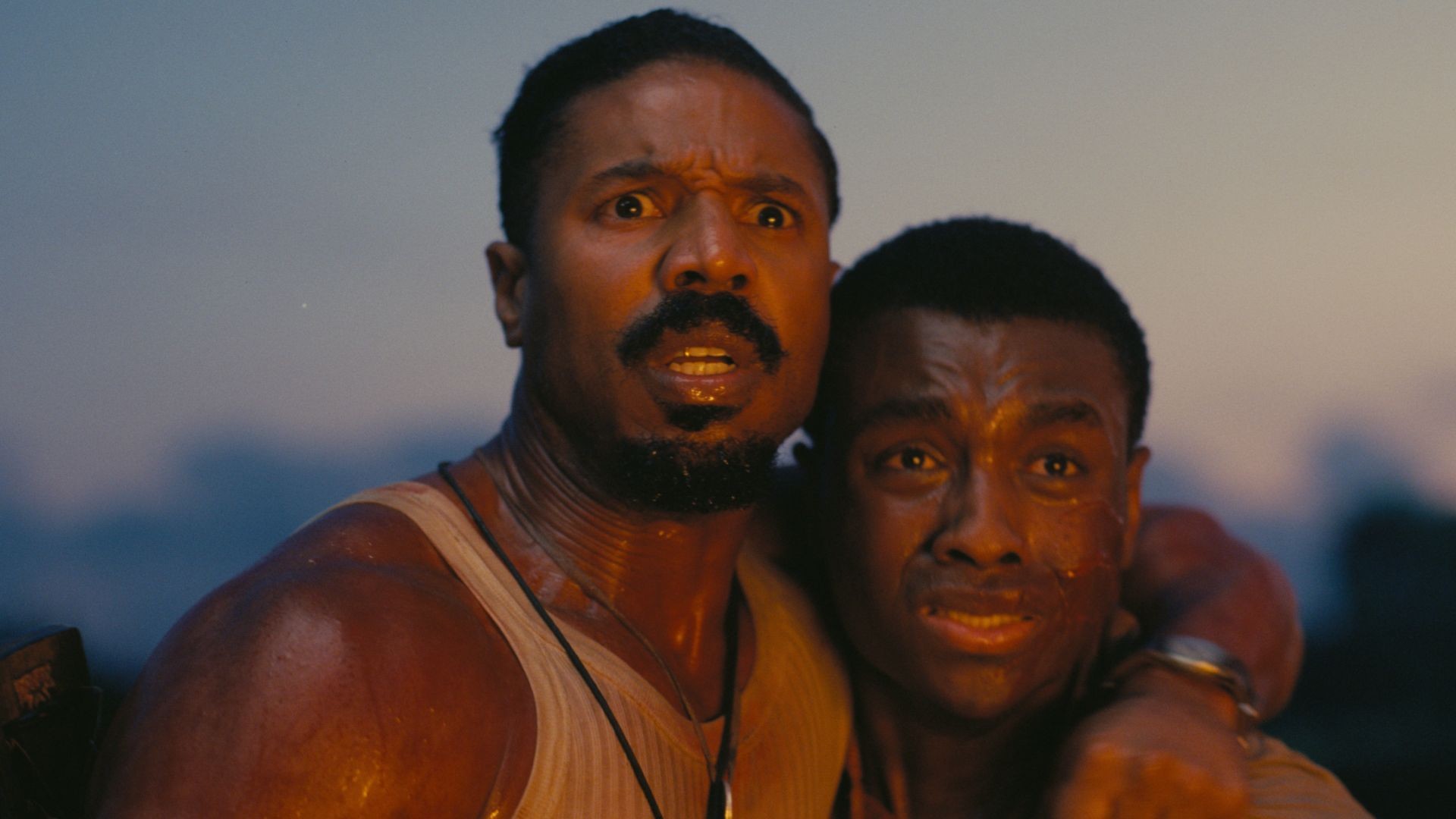
★★★★★ – Discussing Film. Director Ryan Coogler (Black Panther) reunites with his Creed star Michael B. Jordan for this delicious slice of southern gothic horror.
"★★★★★ – Ryan Coogler's most audacious work yet, creating a fresh spin on vampire horror stories to express deeply rich themes of stolen culture and appropriation" – Discussing Film
"★★★★★ – a bold, genre-defying masterpiece" – HeyUGuys
"a bloody, bluesy, and throbbingly fun vampire saga" – IndieWire
★★★★★ – Little White Lies
★★★★ – Independent
You keep dancing with the devil, one day he’s gonna follow you home.
Now nominated for a record-breaking 16 Oscars including Best Picture, Best Director, Best Actor, Best Supporting Actor and Actress, Director Ryan Coogler (Black Panther) reunites with his Creed star Michael B. Jordan for this delicious slice of southern gothic horror.
Trying to leave their troubled lives behind, twin brothers (both played by Jordan) return to their hometown to start again, only to discover that an even greater evil is waiting to welcome them back.
The Bride! (15)
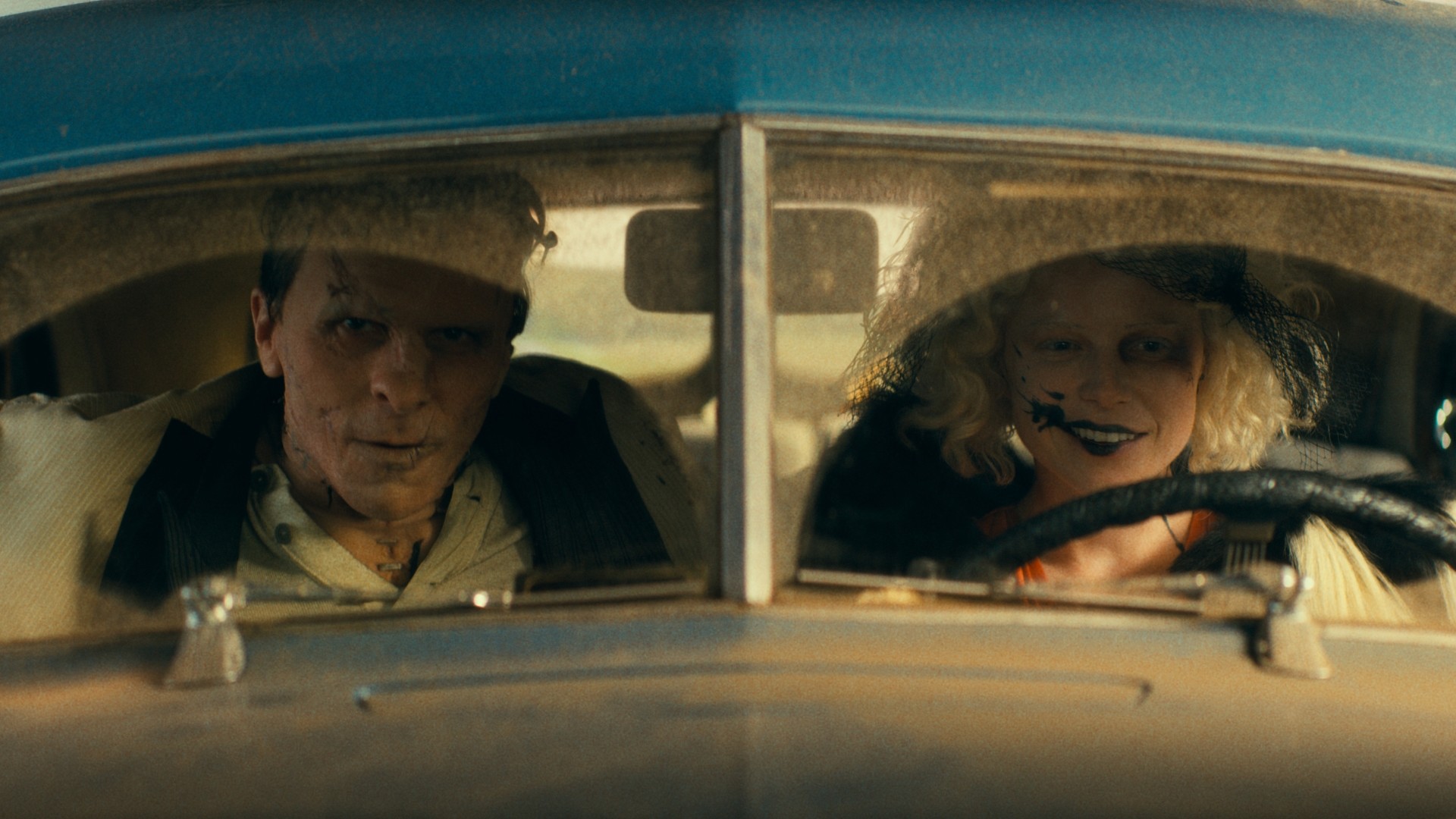
Lonely Frankenstein’s monster enlists an avant-garde physician to reinvigorate a murdered young woman to become his bride.
1930s Chicago and lonely Frankenstein’s monster enlists avant-garde physician Dr Euphronius (Annette Bening) to help create a companion for him. Together they reinvigorate the body of a murdered young woman, and so The Bride is born! Their wild and volatile relationship draws the attention of police and sparks a radical new social movement. Maggie Gyllenhaal’s outrageous gothic fantasy features yet another jaw-dropping performance from the sensational Jessie Buckley (Hamnet) alongside a star-studded cast.
Buy Tickets
|
Sirât (15)
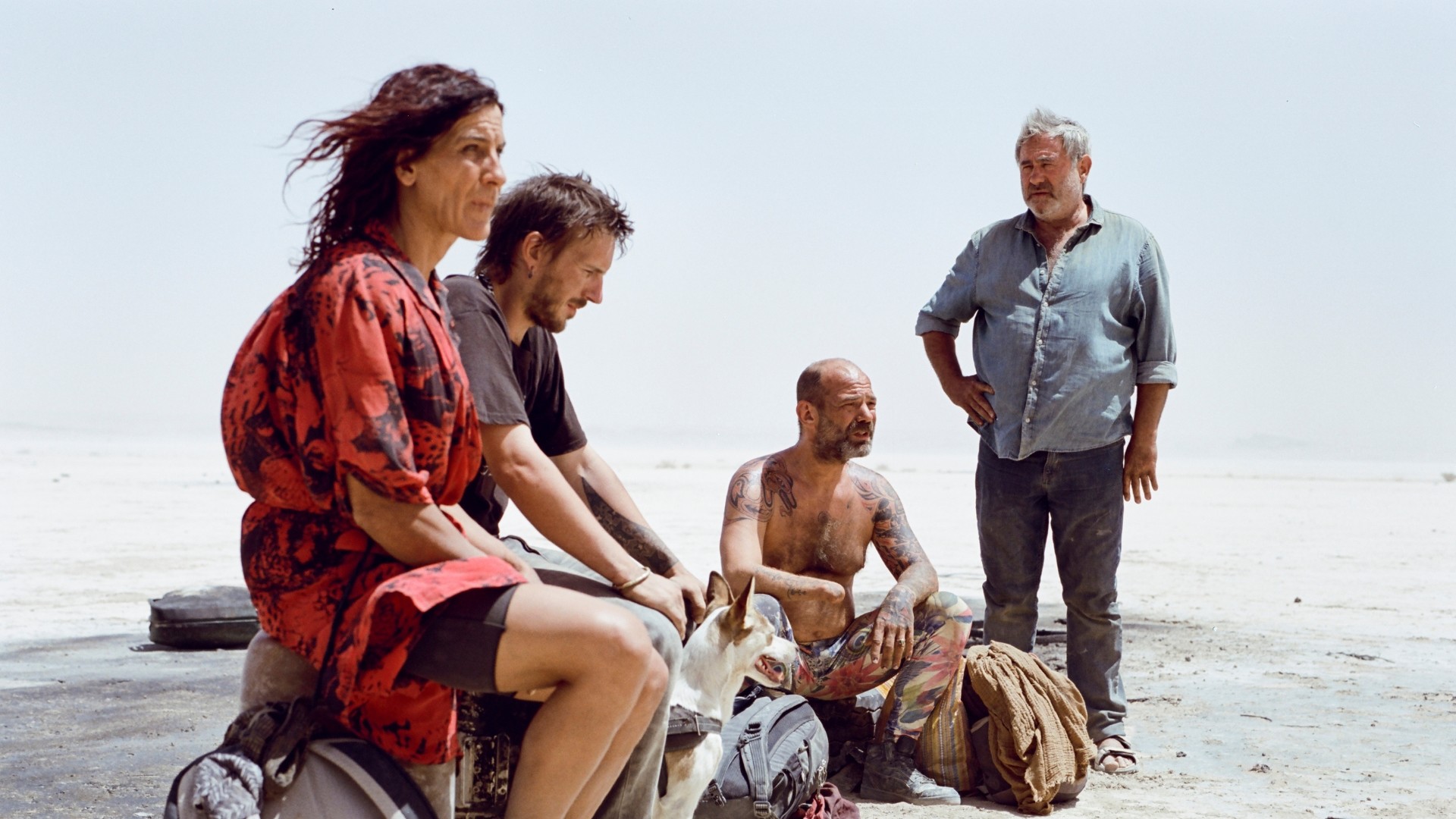
★★★★★ – The Times. Part existential road movie, part apocalyptic sci-fi, a father and his son journey across the Moroccan desert in search of his lost daughter.
"★★★★★ – This is original, explosive... and ovation-worthy, cinema" – The Times
"★★★★★ – This sun-torn survival thriller from Óliver Laxe doesn’t merely rack its audience’s nerves but stretch them out to banjo-string tightness" – Telegraph
"★★★★★ – Sirat is The Wages of Fear meets The Vanishing on shrooms; startlingly original, jarringly hilarious and deeply disturbing" – Time Out
Told with strange indelible imagery and ground-breaking sound design, a father and his son journey across the Moroccan desert in search of his lost daughter amidst the heavy psychedelic raves that sprawl the plains.
Part existential road movie, part apocalyptic sci-fi, Óliver Laxe deploys a weaponised barrage of techno that thumps like an earthquake, creating an unforgettable cinematic experience that rightly claimed the Cannes Jury Prize 2025.
Contains one or more sequences involving extended flashing or flickering lights, or regular patterns.
In French with English subtitles.
Comedy as Resistance: A Behind-The-Scenes Masterclass (18)
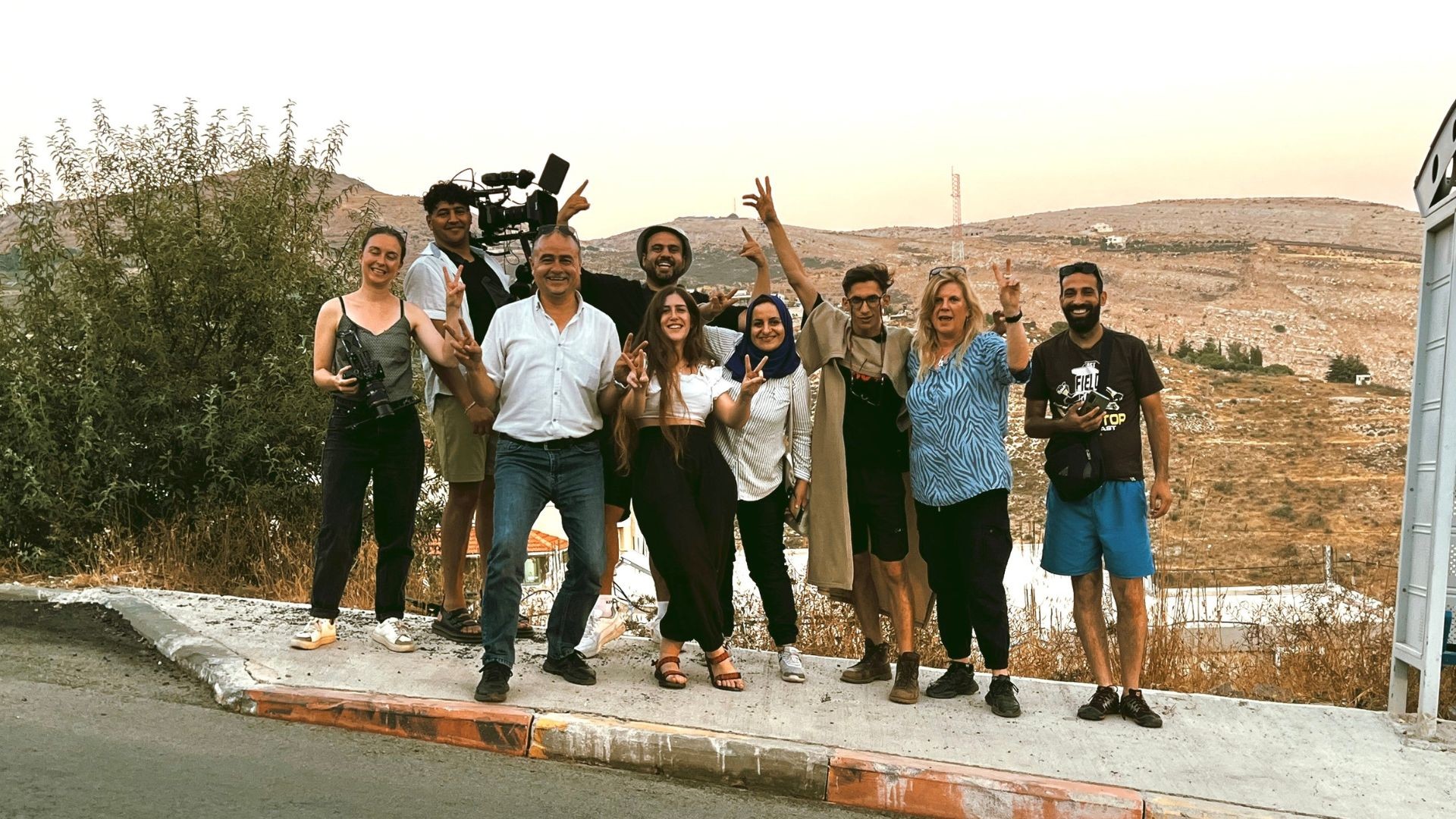
A free workshop from the filmmakers behind new documentary Palestine Comedy Club.
PLEASE NOTE: Due to circumstances beyond our control, the date for this workshop has changed from that advertised in the Mar/Apr brochure and it will now be on Fri 6 Mar. We apologise for any inconvenience this may cause.
A free workshop from the filmmakers behind new documentary Palestine Comedy Club.
Producer and co-director Charlotte Knowles and comedy director Sam Beale reveal how the film uses stand-up comedy to translate lived resistance into powerful on-screen narrative.
Combining cinematic storytelling with practical comedy direction, this interactive workshop equips filmmakers, artists, and community groups to use humour as a tool for truth, resilience, and impact.
Buy Tickets
|
Wine Tasting (18+)

Join us for an evening of wine tasting with our independent supplier Woodthorpe Wines. Certified Sommelier Matthew Whitaker will guide you through a bespoke menu of hand-picked wines.
Woodthorpe Wines founder and Certified Sommelier Matthew Whitaker has been popping corks for the last 20 years in restaurants, bars and private tasting events, so you'll be able to sit back, relax and enjoy the night.
Wines with integrity from grape to glass!
Fri 6 Mar, 7pm – A Guide To Blind Wine Tasting
Discover what blind wine tasting is and why it's such an important part of the wine industry. Learn to taste wine like a pro and understand the unique flavour palette of different grape varieties.
Fri 24 Apr, 7pm – Crisps and Wine Tasting
We all know that wine pairs well with a wide range of cuisines so why not pair it with an everyday snack... crisps! Take a step back from the 'norm' and discover the perfect wine to pair with your favourite crisps.
Fri 22 May, 7pm – Fine Wine From The Cellar – (£45)
A very indulgent wine tasting with some extra special bottles. All these bottles have a minimum retail price of £50. The perfect opportunity to try some fine and rare wines.
Fri 26 June, 7pm – Sparkling Wines of The World – (£35)
There's more to fizz than Champagne and Prosecco. Discover a range of sparkling wines from the lesser-known wine-making regions of the world.
One Battle After Another (15)
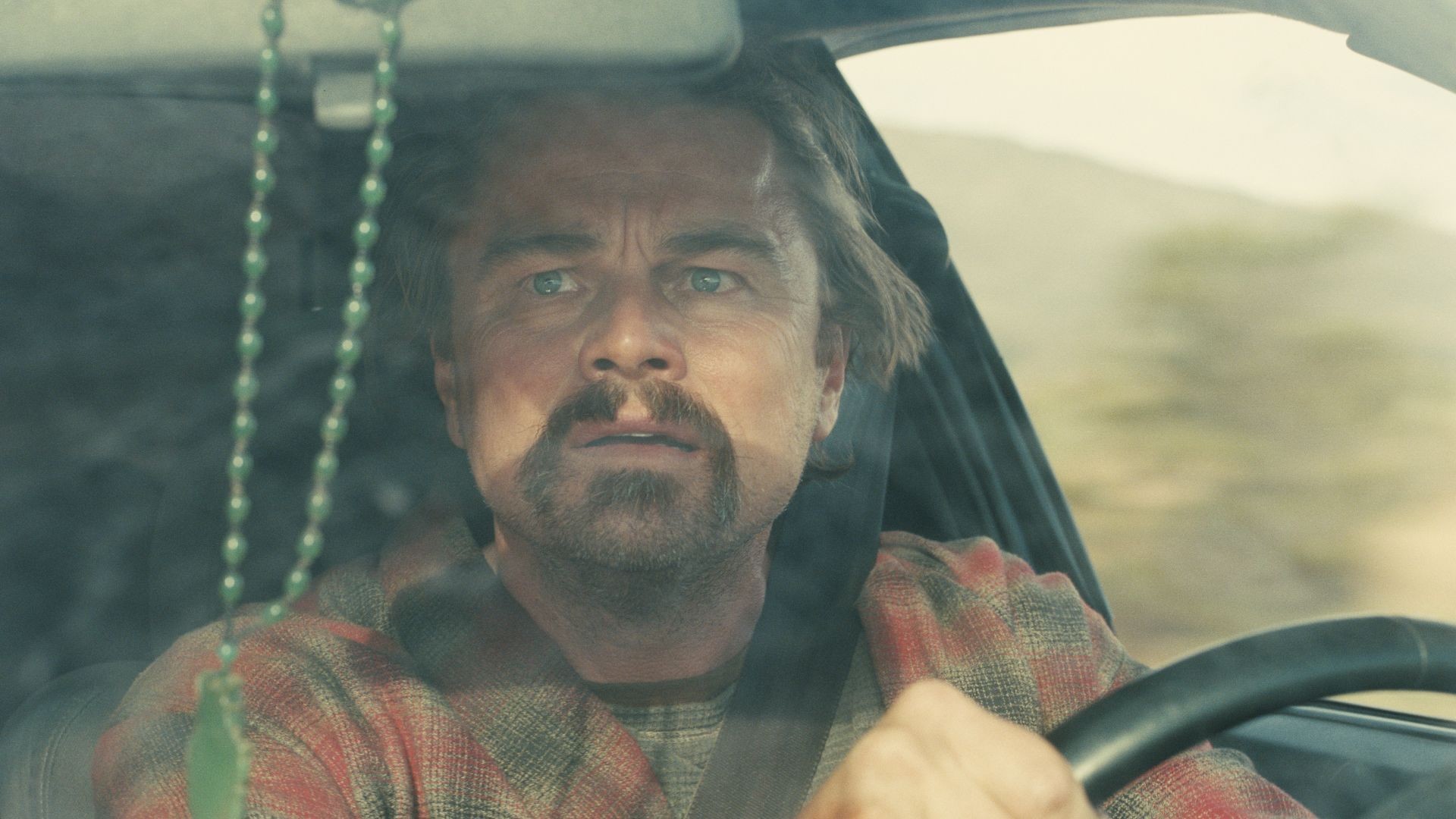
★★★★★ – Guardian. Paul Thomas Anderson's (There Will be Blood, Phantom Thread) sprawling, free-wheeling black-comedy tale follows a group of ex-revolutionaries reuniting after 16 years.
★★★★★ – Guardian
★★★★★ – Discussing Film
★★★★★ – BBC
★★★★★ – Empire
★★★★★ – The Telegraph
Now nominated for 13 Oscars and 14 BAFTAs, Paul Thomas Anderson's (There Will be Blood, Phantom Thread) sprawling, free-wheeling black-comedy tale follows a group of ex-revolutionaries reuniting after 16 years to rescue one of their own's daughter.
Based on Thomas Pynchon’s 1990 novel Vineland, Anderson has assembled a terrific cast including Leonardo DiCaprio, Benicio del Toro, Regina Hall and Sean Penn.
James Acaster: Cinemagoers Welcome (15)
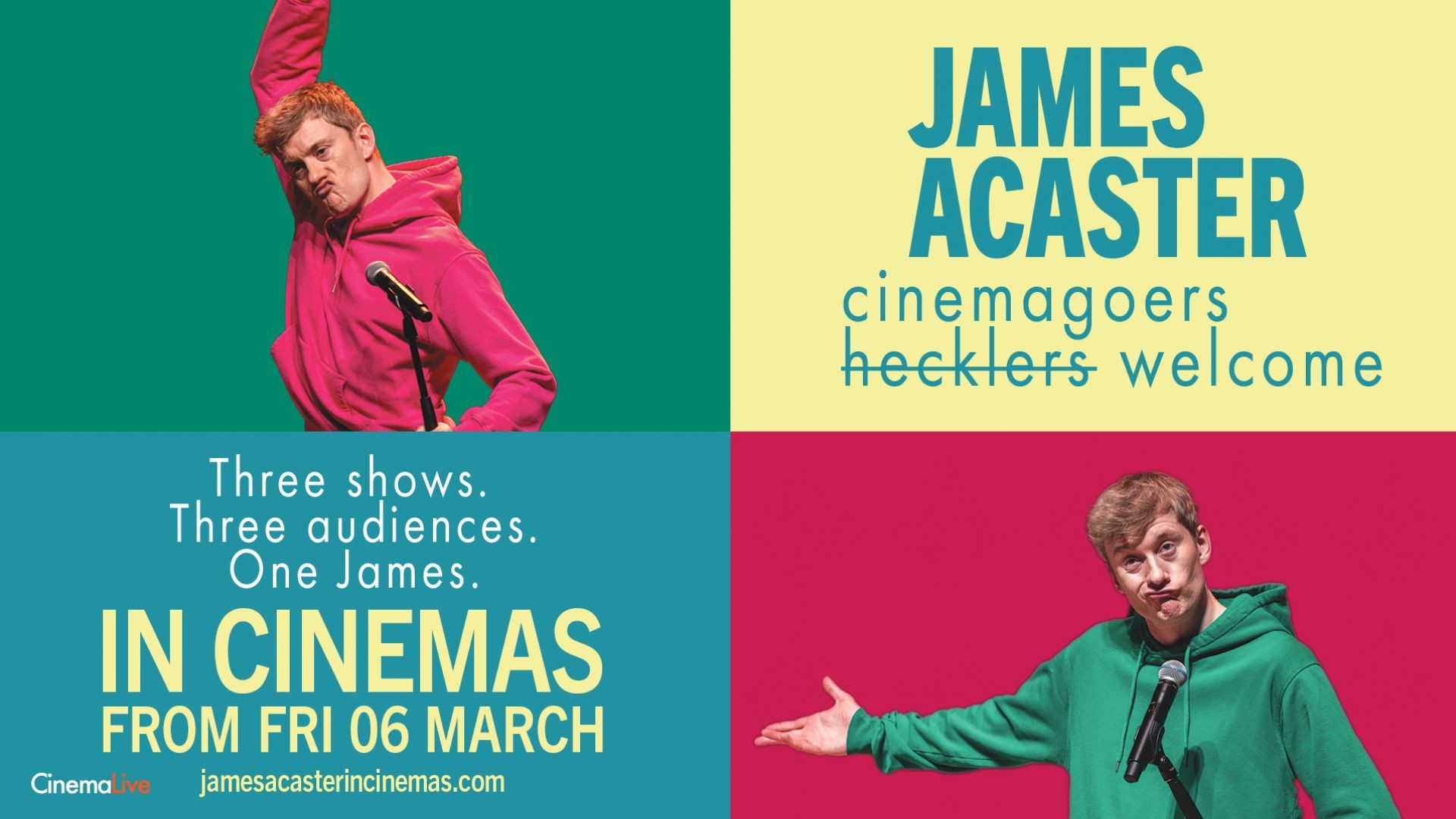
Comedian James Acaster unleashes his infectious energy as he explores his love/hate relationship with stand-up – while welcoming a heckle or two.
Comedian James Acaster unleashes his infectious energy as he explores his love/hate relationship with stand-up – while welcoming a heckle or two.
Filmed in Truro, Dublin and Northampton, we see how this experiment panned out in front of three very different audiences.
Buy Tickets
|
Palestine Comedy Club (12A)

When six Palestinian comedians hit the road to tour a stand-up show across Palestine and Israel, their search for humour amidst the injustice of everyday Palestinian life becomes a plea for humanity.
"an unmissable watch... the overall result is a triumph" – CinEuropa
Six Palestinian comedians write a stand-up comedy show exploring the unlikely, often dark humour that surrounds the complexity of Palestinian identity. Despite cultural and security challenges, they manage to cross border checkpoints to perform in Palestine and Israel. As audiences flock to the shows, the tour is invited to London just as war breaks out at home. With the comedians performing to an increasingly conflicted British public, the mission to connect with audiences becomes an existential imperative.
In English and Arabic with English subtitles.
Marty Supreme (15)
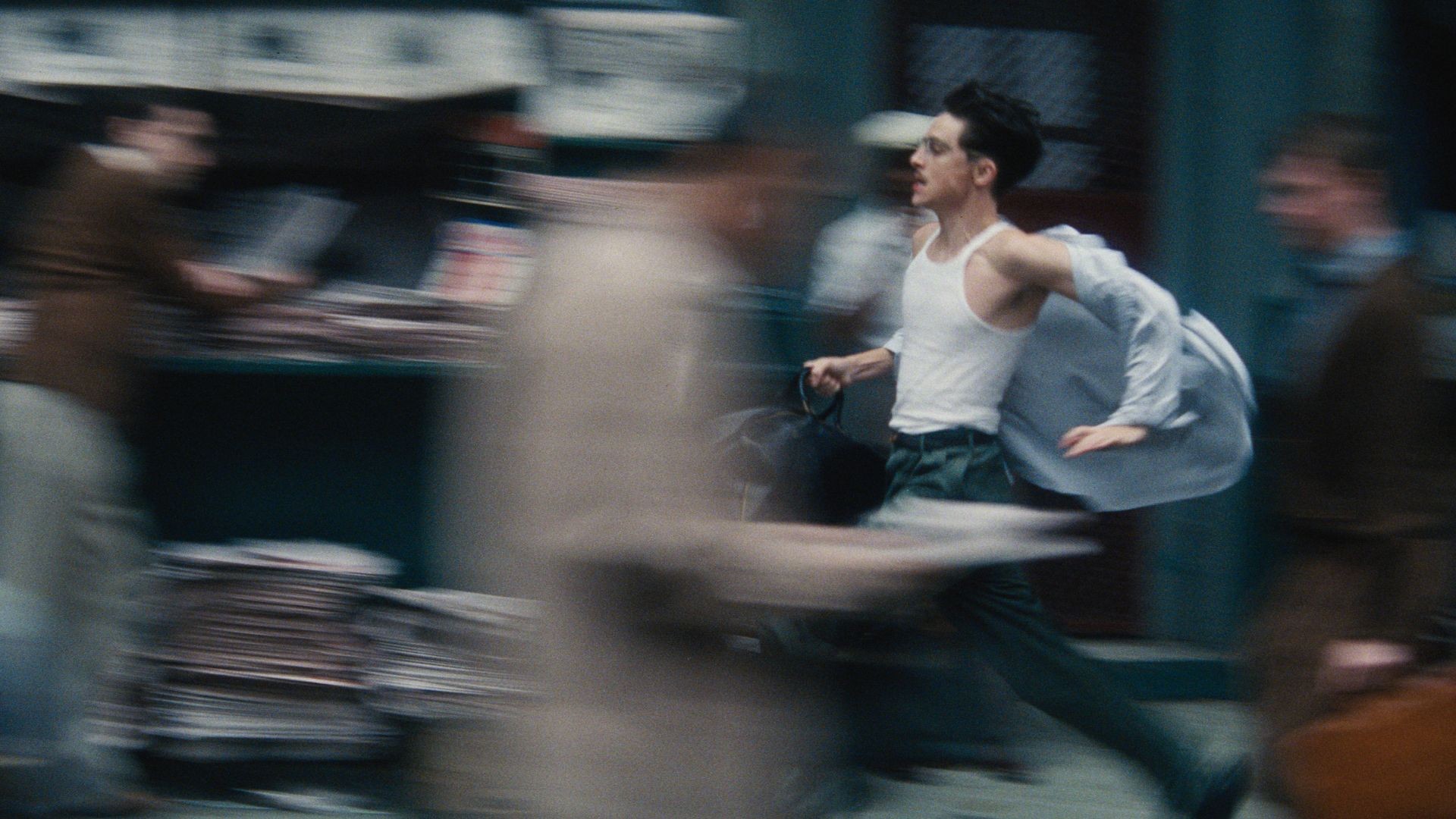
★★★★★ – Telegraph. Set during the 1950s' golden age of ping-pong, a young man (Timothée Chalamet) with a dream no one respects is willing to go to hell and back in pursuit of greatness.
"★★★★★ – Safdie's whip-crack comedy serves sensational shots" – Guardian
"★★★★★ – a great American picture" – Empire
"★★★★★ – Timothée Chalamet is unbeatable" – Telegraph
Nominated for 9 Oscars including Best Picture, Best Director and Best Actor, Marty Supreme is set in the 1950s' golden age of ping-pong culture, where a young man (Chalamet) with a dream no one respects is willing to go to hell and back in pursuit of greatness.
Loosely inspired by the story of real-life table tennis player Marty Reisman, Josh Safdie’s (Uncut Gems, Good Time) hugely enjoyable sports comedy-drama features a great supporting cast including Odessa A’zion and musician Tyler, the Creator.
Strangers in Kyoto (18+)
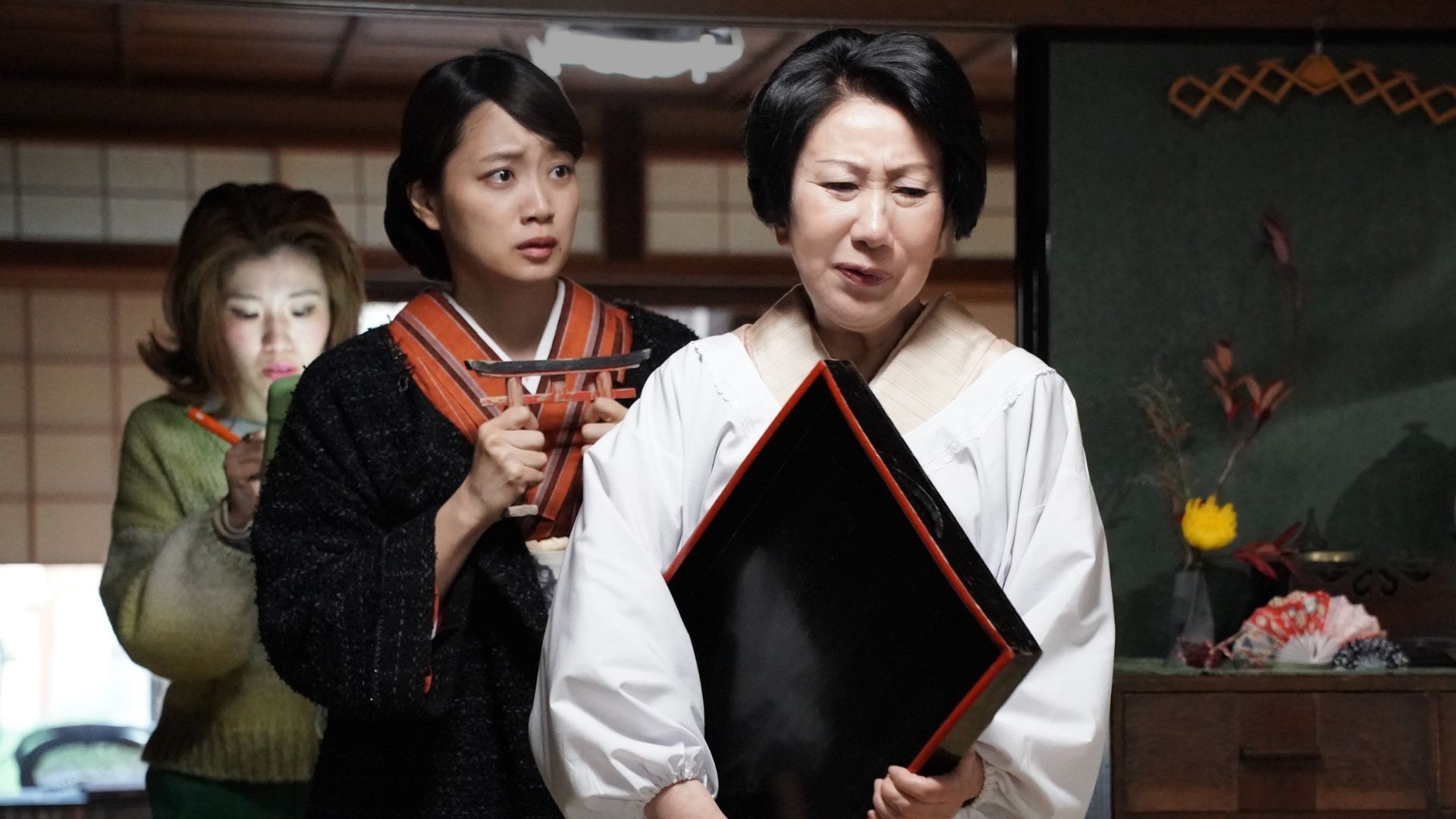
Kyoto is a city with its own proud traditions and customs, something Tokyo-based writer Madoka learns all too well when she starts a comic article celebrating the city.
Interviewing her new in-laws and locals, she soon finds her straightforward honesty and enthusiasm for the city fall foul of Kyoto’s distinct culture of ‘honne’ (one’s true feelings) and ‘tatemae’ (one’s outward opinions). As miscommunication mounts, things turn to outright havoc when an estate agent attempts to buy the family’s traditional townhouse.
A laugh-out-loud comedy of desperate cultural misunderstandings!
PLEASE NOTE: Films without BBFC certification can only be screened to over 18s. However, this does not necessarily mean that the films contain adult content.
Screening as part of the Japan Foundation Touring Film Programme 2026.
Image credit: © 2025 “Strangers in Kyoto” Film Partners
Buy Tickets
|
Giselle (TBC)
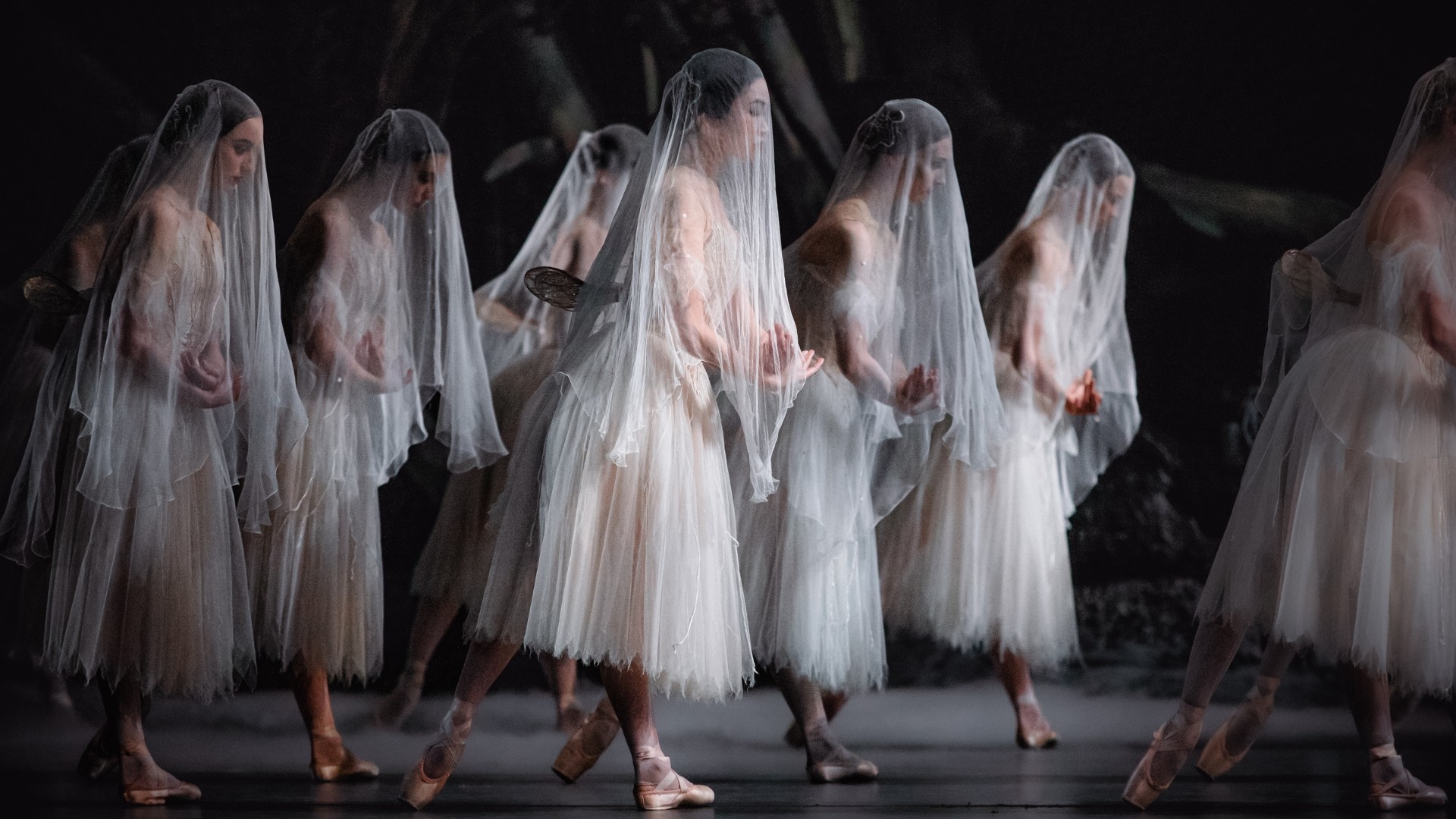
Peter Wright’s quintessential production is a classic of the Royal Ballet repertory, conjuring earthly and otherworldly realms in a tale of love, betrayal and redemption.
Peasant girl Giselle has fallen in love with Albrecht. When she discovers that he is actually a nobleman promised to another, she kills herself in despair. Her spirit joins the Wilis: the vengeful ghosts of women hell-bent on killing any man who crosses their path in a dance to the death. Wracked with guilt, Albrecht visits Giselle’s grave, where he must face the Wilis – and Giselle’s ghost.
Peter Wright’s 1985 production of this quintessential Romantic ballet is a classic of The Royal Ballet repertory. Set to Adolphe Adam’s evocative score and with atmospheric designs by John Macfarlane, Giselle conjures up the earthly and otherworldly realms in a tale of love, betrayal and redemption.
Buy Tickets
|
Set It Off - 30th Anniversary Screening for International Women’s Day (15)
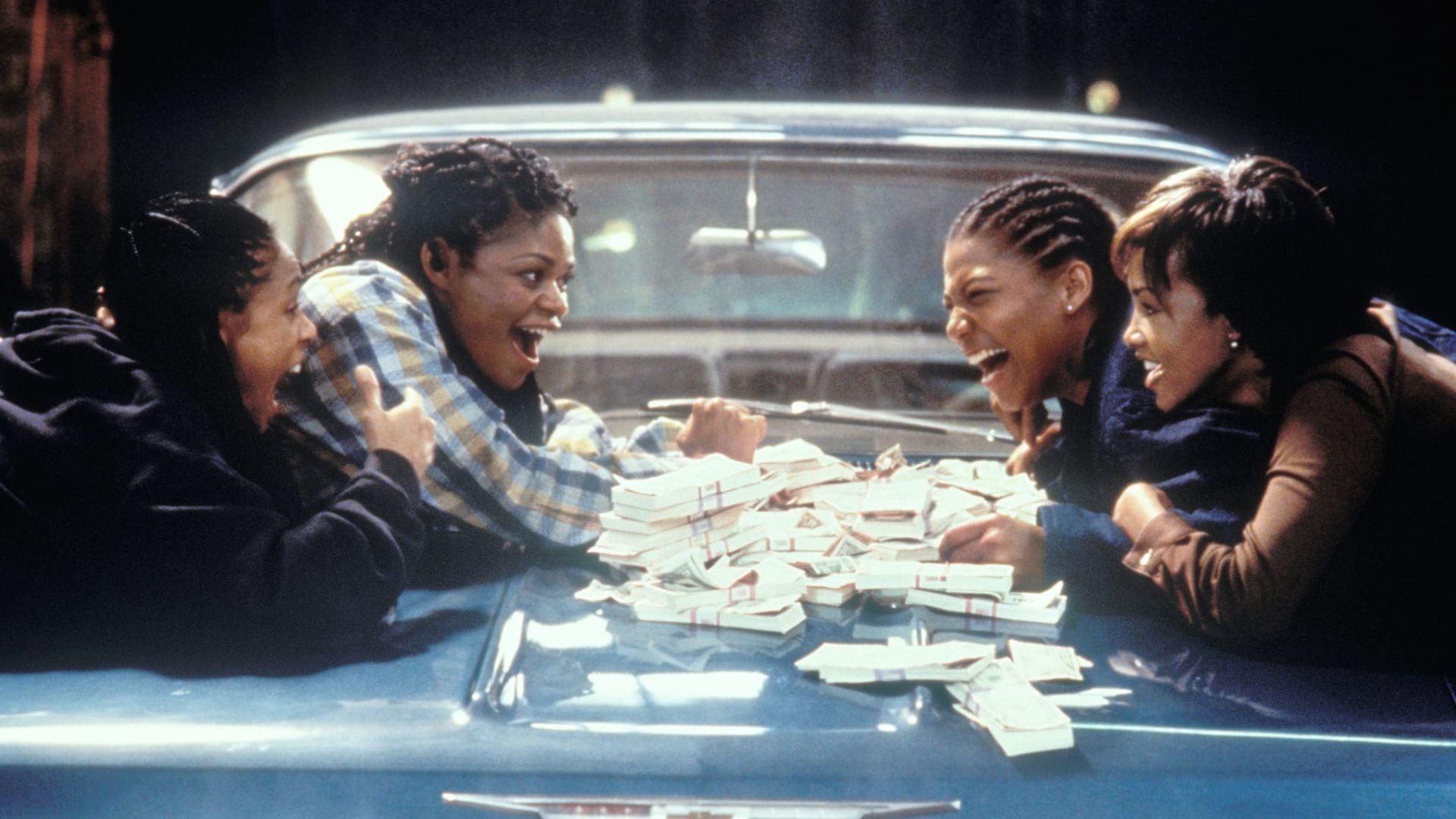
Desperate to achieve better lives for themselves and their families, four black women in Los Angeles plan a series of bank robberies. A 30th Anniversary Screening for International Women’s Day, presented in partnership with We Are Parable as part of the We Are Here project.
Desperate to achieve better lives for themselves and their families, four black women in Los Angeles plan a series of bank robberies. As the loot piles up, so does their mistrust of each other – but with the police close to tracking them down, the women plan a final climatic heist.
From 5pm:
- Pre-screening brunch on the Terrace
- Live DJ set from Mayowa featuring 90s throwbacks
- Goodie bags including Lush products & bouquets for early arrivals (come early to avoid disappointment!)
- The film starts at 6:30pm sharp — no ads
A 30th Anniversary Screening for International Women’s Day, presented in partnership with We Are Parable as part of the We Are Here project - a nationwide programme funded by the BFI and The National Lottery to increase access to Black cinema.
Follow @weareparable and @phoenixleic on Instagram to keep up to date with the We Are Here programme.
Buy Tickets
|
Talk Talk night with Ben Wardle + Spirit of Eden playback
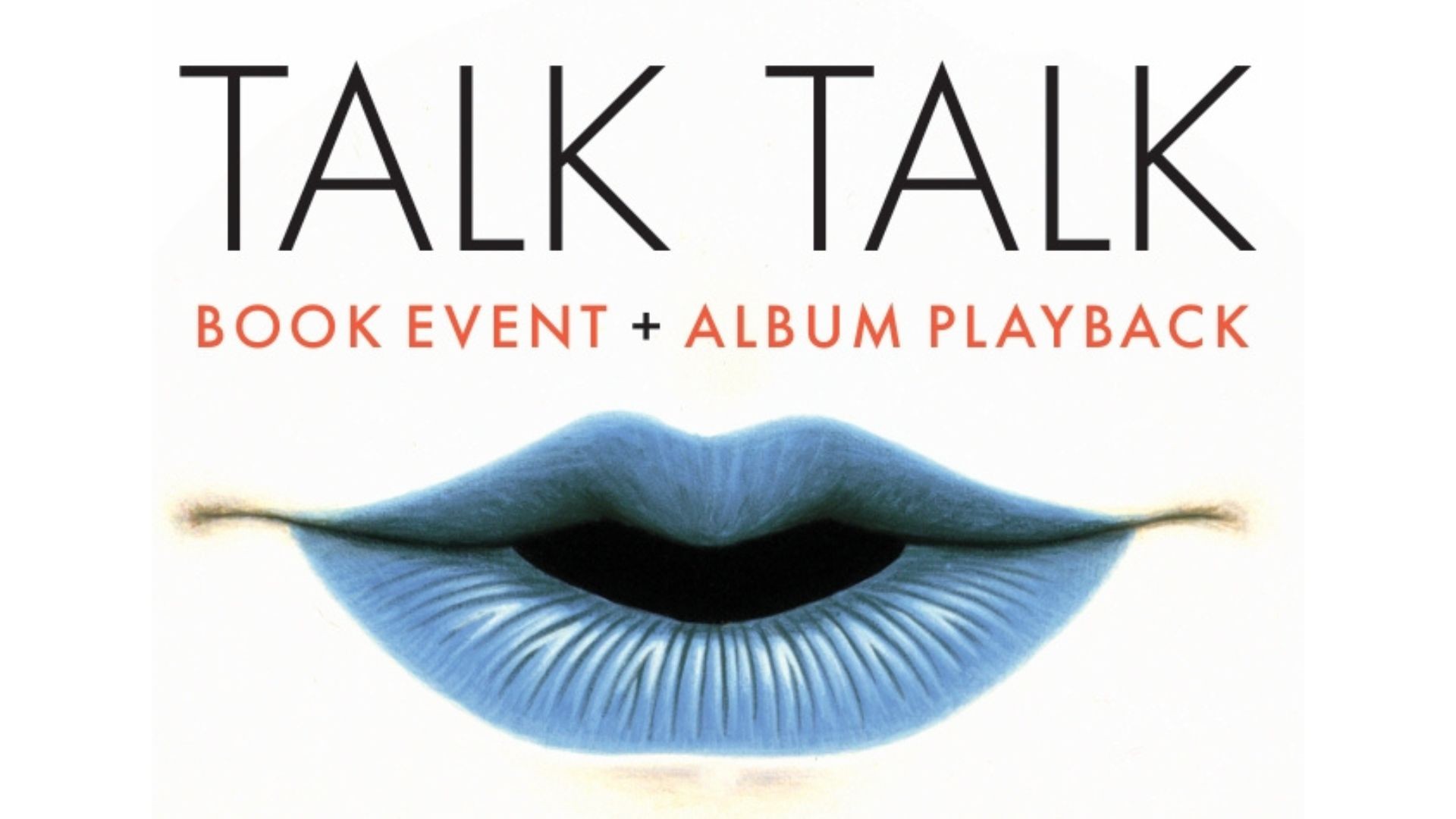
A special evening to celebrate the music of Talk Talk, with Ben Wardle, author of A Perfect Silence, the acclaimed biography of the late Mark Hollis.
A special evening to celebrate the music of Talk Talk, with Ben Wardle, author of A Perfect Silence, the acclaimed biography of the late Mark Hollis.
Talk Talk evolved from early 80s synthpop hitmakers to become ambient and experimental post-rock innovators, whose reputation and influence has continued to grow ever since. Ben’s book is the first in-depth biography of Mark Hollis, tracing his intriguing creative journey and his unique and intense working methods. ‘A Perfect Silence’ was described as ‘Beautiful’ by Stewart Maconie in Radio Times, while journalist Jude Rogers said it had “a revelation on every page”.
Ben will be interviewed by journalist Duncan Steer about the world and career of Mark Hollis and Talk Talk. After the interval, there will also be a playback of Talk Talk’s classic album Spirit of Eden, recreating the studio atmosphere in which it was recorded – in darkness with the room lit only by abstract images from an oil projector.
There will be a chance to ask your own questions and Ben will be signing books after the event.
Buy Tickets
|
Colossal Wreck (12A)
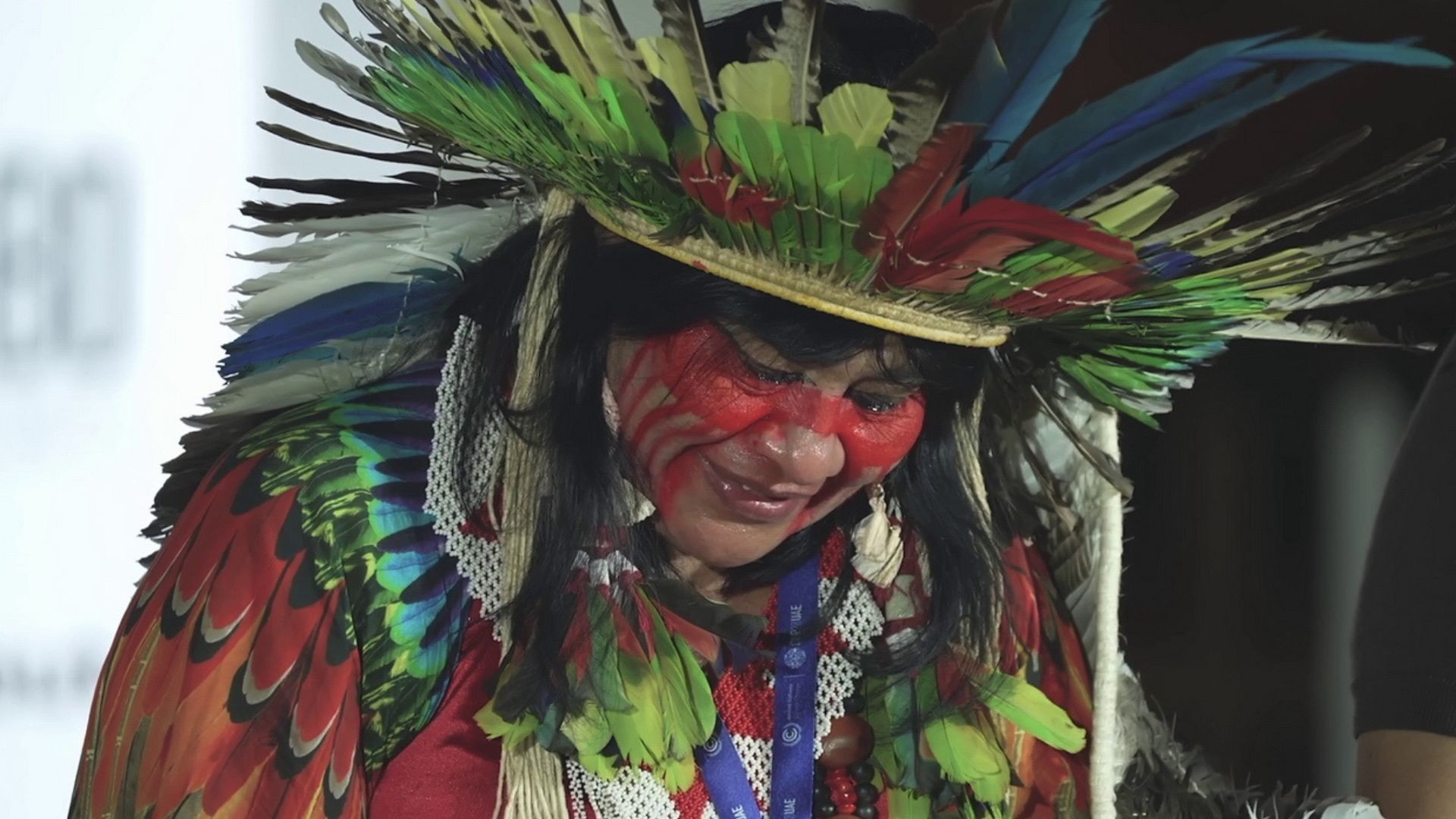
Colossal Wreck takes us on an odyssey inside the COP28 climate conference in Dubai. Are these enormous get-togethers all about false promises that hinder change? Or are they the only hope we've got for world-saving unity?
Colossal Wreck takes us on an odyssey inside the COP28 climate conference in Dubai. Are these enormous get-togethers all about false promises that hinder change? Or are they the only hope we've got for world-saving unity?
With his innocuous selfie-stick, filmmaker Josh Appignanesi moves unnoticed through Dubai's seductive slickness to reveal the talks, meetings and elite backroom parties behind the strange mixture of global cry for help and political posturing that is a COP. Lost in translation, he comes face to face with the irony of an oil baron hosting this last-chance climate saloon in a techno-utopian leisure city -- that, er, happens to be built in a burning desert.
Showing as part of Green screen, a new monthly strand in our programme presenting films looking at climate change, activism and sustainability.
Buy Tickets
|
Turner & Constable (12A)
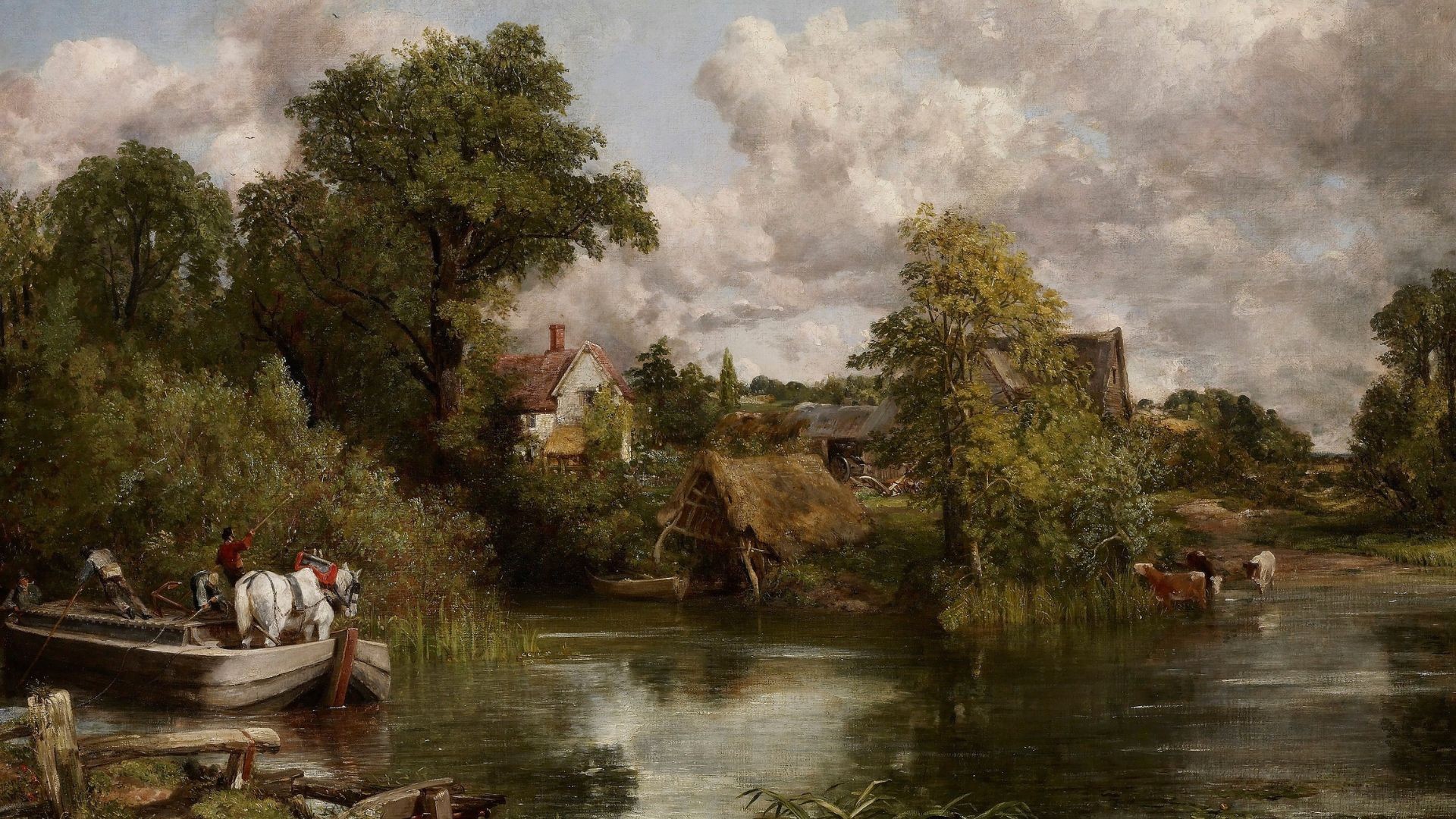
Celebrating the 250th anniversary of their births, this unmissable new documentary explores Turner and Constable’s intertwined lives and legacies alongside the groundbreaking Tate exhibition.
Celebrating the 250th anniversary of their births, this unmissable new documentary explores Turner and Constable’s intertwined lives and legacies alongside the groundbreaking Tate exhibition.
Two of Britain’s greatest painters, J.M.W. Turner and John Constable were also the greatest of rivals. Born within a year of each other, both used landscape painting to reflect the changing world around them.
Tate Britain is bringing these two greats together for a groundbreaking exhibition, in London from November 2025 to April 2026, and Exhibition on Screen once again has exclusive and privileged access to bring their extraordinary art and remarkable stories to the big screen in February so that you can enjoy both film and exhibition together. Discover unexpected sides to both artists with intimate views of sketchbooks and personal items and insights from leading experts.
Scream & Scream Again: The History of Horror (18+)
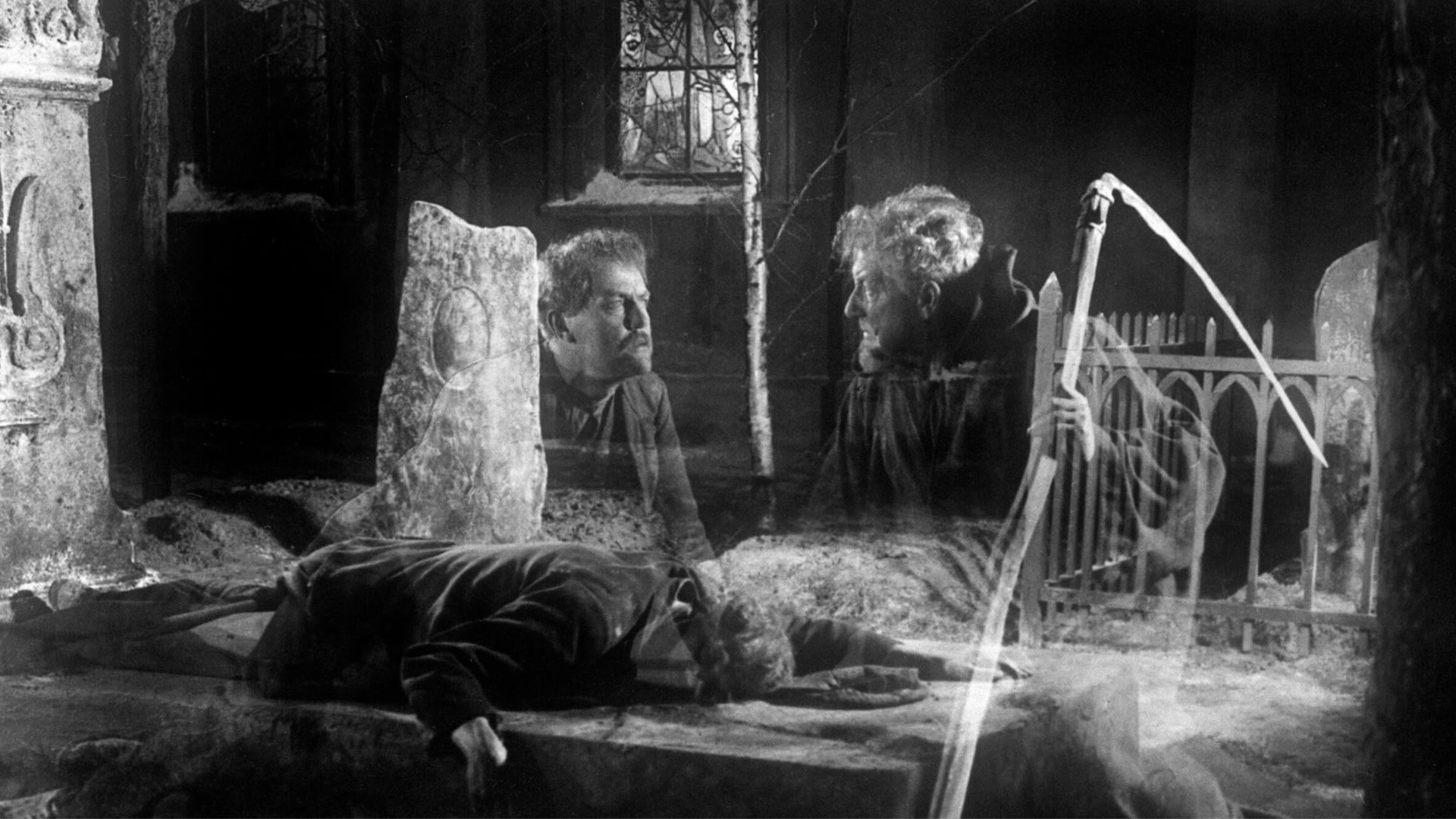
This 4-week course will look at the history of the horror genre. We will learn how horror filmmakers have crafted stories to entertain and terrify audiences for over 100 years, explore how the genre explores stories we couldn’t tell in any other way, and why, despite its peaks and troughs, horror never dies.
“I'm going to give the people what they want. Sensation. Horror. Shock.” – Vincent Price, House of Wax (1953).
From the moment Frankenstein’s monster lurched to life, nothing can stop us going to the movies to watch something truly terrifying. Horror films occupy a unique space in the world of Cinema. Popular with audiences and frequently reviled by critics, the Horror genre offers a place for moviegoers to explore their worst nightmares, all from the safety of their seats.
This 4-week course explores the history of one of the oldest genres in film, from its silent origins to Hollywood domination. We will look at how, over the last century, filmmakers have used horror to not just shock and terrify, but to tell stories about the nature of humanity. We will learn how the masters of Horror reflected societies’ fears, and why audiences the world over just love to be scared!
FURTHER INFORMATION
Price: £55/ £50 conc / £45 Members
Tutor: Dr. Hannah Straw
Booking Information:
This 4 week course will run at Phoenix on Thursdays, 7pm – 8.30pm, from 12 March – 2 April 2026.
You must be 18 or over to attend.
Course Breakdown:
Week 1: It’s Alive! – In week one we will explore the origins of the horror genre, from German Expressionism to the atomic age.
Week 2: The Masters of Horror – We explore the next wave of horror filmmaking beginning in the 1960s from William Castle to Hammer and folk horror.
Week 3: Enter The Chainsaws – We look at the most prolific period of Horror-movie making in cinema history: The late 1970s and the 80s, including horror franchises and the rise of Stephen King.
Week 4: The Killer Never Dies – we will look at the decline of the Horror movie post 1990 and its re-emergence as a dynamic force in filmmaking over the last decade from schlocky remakes to A24 and the rise of 'elevated horror'.
Cancellation Policy:
We do not offer refunds for cancellations of bookings, except in exceptional circumstances. In the event that an advertised course is withdrawn, we will endeavour to give 7 days’ notice and a full refund will be made.
ABOUT THE TUTOR
Dr Hannah Straw is a historian specialising in early modern society and culture. She also researches the history of horror cinema, most recently looking at the
Terrifier franchise.
Her research looks at libertinism, scandal, and celebrity, and she is particularly interested in how morality has been understood throughout history. She has many interests in the fields of film and media, ranging from horror cinema to costume and set design, and LGBTQ+ representation on screen.
Buy Tickets
|
How To Make A Killing (15)
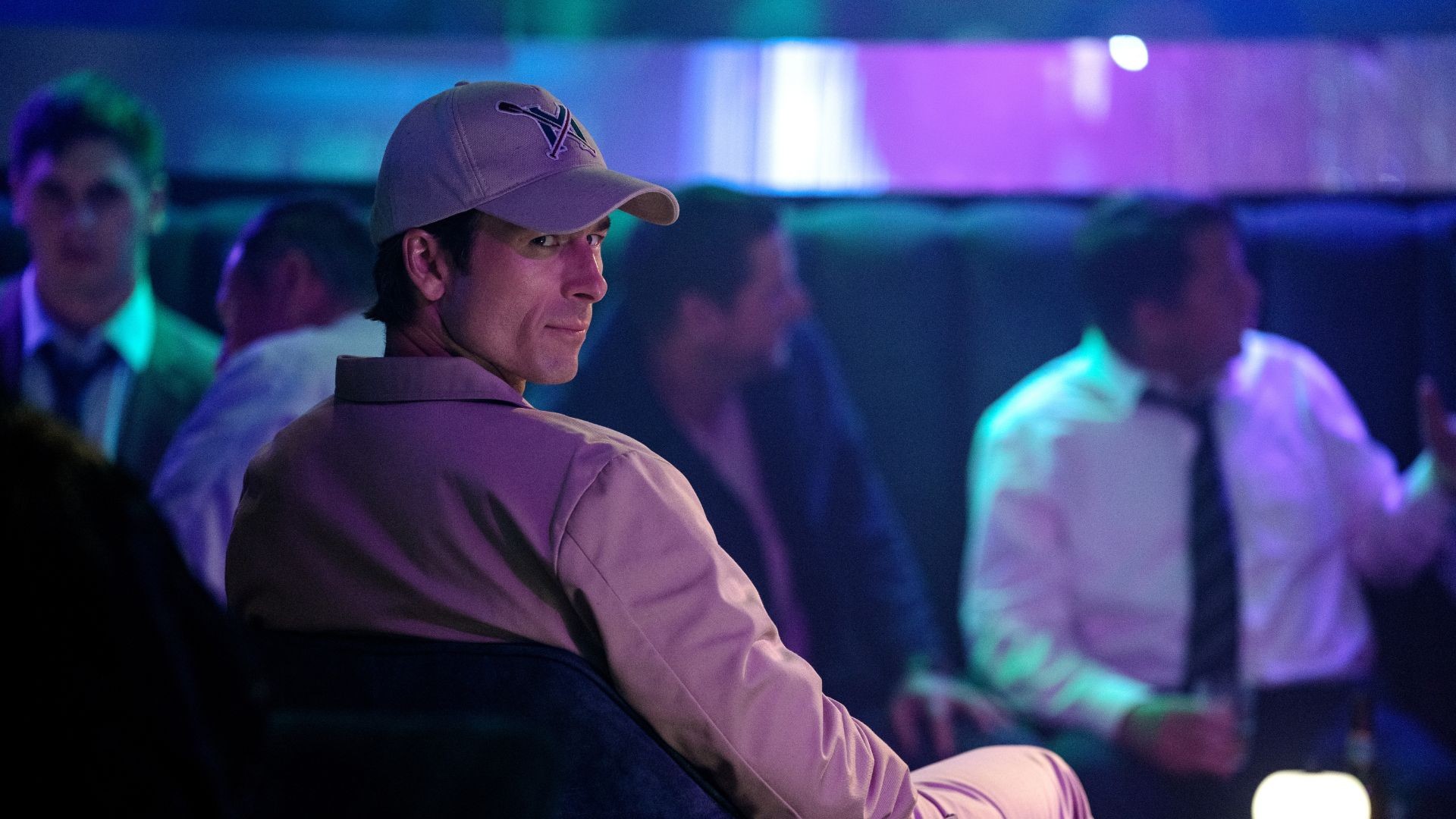
Sharp and acerbic, this dark comedy-thriller is a modern, satirical reimagining of the 1949 British classic Kind Hearts and Coronets.
One $28 billion legacy; 7 relatives standing in the way.
Disowned at birth by his obscenely wealthy family, blue-collar Becket Redfellow (Powell) will stop at nothing to claim his inheritance. A loose adaptation of Ealing classic Kind Hearts and Coronets, this is a sharp, acerbic and deliciously enjoyable comedy-thriller.
Buy Tickets
|
Milestone: Streets Paved with Gold (U)
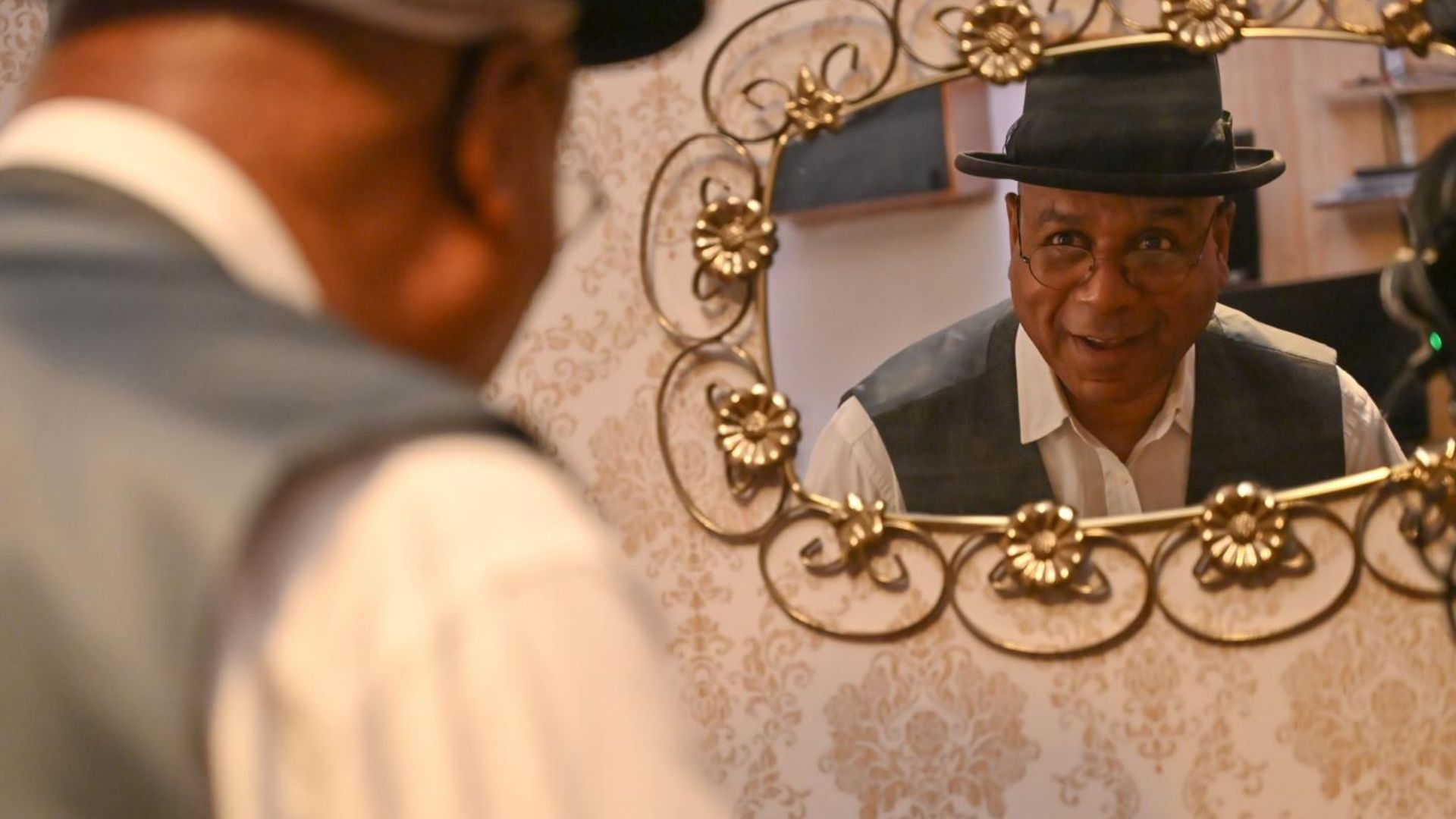
Returning after the sell-out premiere in October last year, Milestone: Streets Paved with Gold is a powerful new film honouring the Windrush generation and the Caribbean migration experience in Britain.
Returning after the sell-out premiere in October last year, Milestone: Streets Paved with Gold is a powerful new film honouring the Windrush generation and the Caribbean migration experience in Britain.
Adapted from Victor Richards’ acclaimed one-man play, this 60-minute cinematic journey follows Augustus Cleveland Johnson from his 1948 arrival in England through decades of resilience, family, culture, and identity. Blending voiceover, vivid recreations, and historical archives, the film immerses viewers in a heartfelt tribute to a generation that helped shape modern Britain. Filmed across Leicester and the Midlands, it's a moving, sensory celebration of Caribbean-British heritage.
The evening screening on Sat 14 and the screening on Sun 15 Mar will be followed by a Q&A with Victor Richards and members of the cast and crew.
All screenings are preceded by an exclusive 20-minute segment from the UK-premiere documentary.
The Tasters (15)
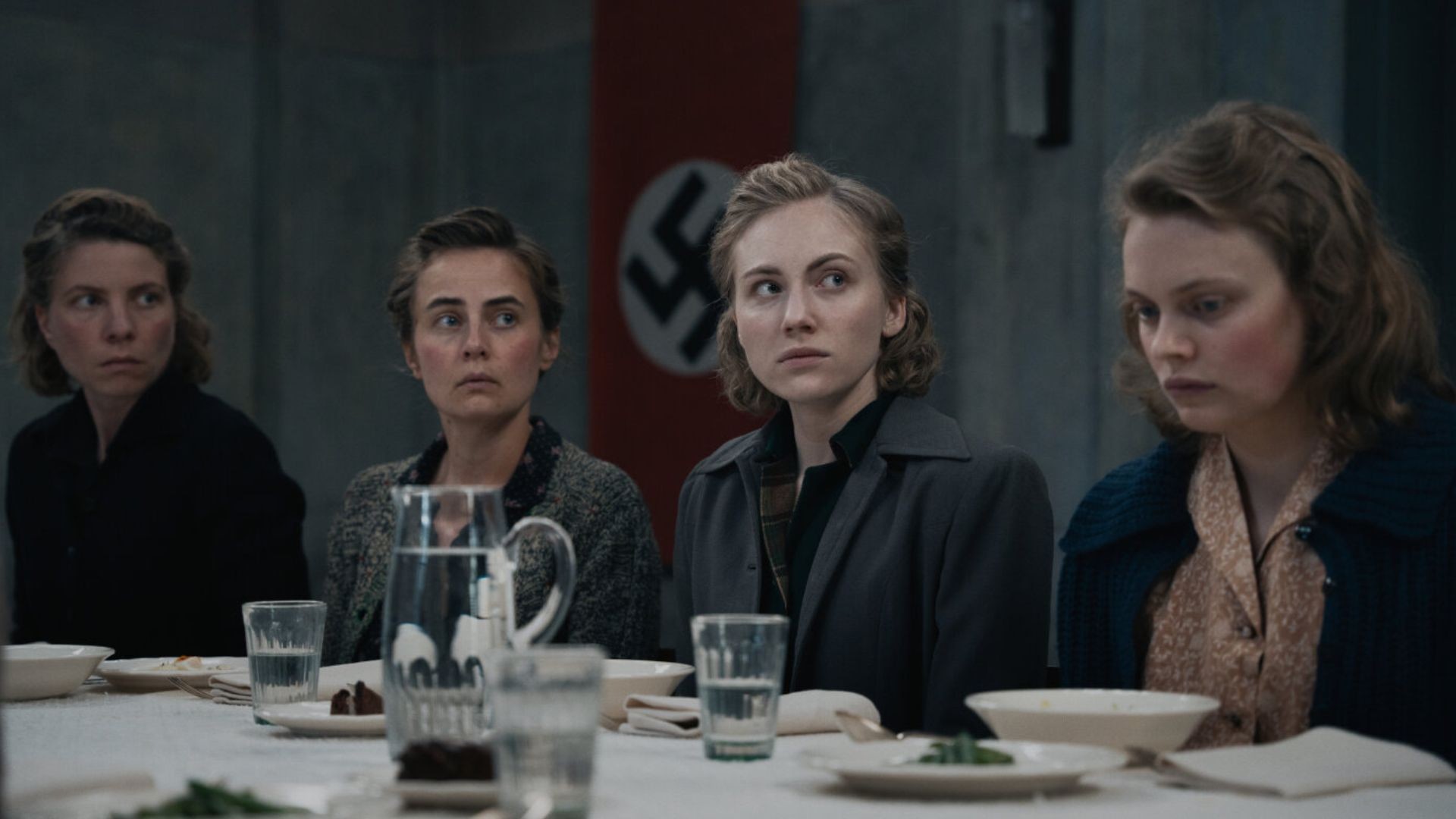
Adapted from Rosella Postorino’s bestselling novel, The Tasters is a gripping historical drama inspired by the incredible true story of a group of women who were Hitler's food tasters.
Adapted from Rosella Postorino’s bestselling novel, The Tasters is a gripping historical drama inspired by the incredible true story of Margot Wolk, one of Hitler’s food tasters. Autumn, 1943. Fleeing bombed Berlin, Rosa (Schlott) reaches the isolated Polish village of Gross-Partsch, but discovers that the seemingly peaceful community hides a secret: Hitler’s headquarters are in the neighbouring forest. Under the watchful eye of the SS, Rosa and the other local young women will be forced to eat the meals destined for the Führer, to ensure they are not poisoned.
Peaky Blinders: The Immortal Man (TBC)

This thrilling final chapter in the Tommy Shelby story demands the big-screen experience!
This thrilling final chapter in the Tommy Shelby story demands the big-screen experience!
Amidst the carnage of World War Two, infamous gangster Tommy Shelby (Cillian Murphy) is forced from exile to return to the blitzed streets of Birmingham for one final reckoning.
With the country, his family, and the Shelby legacy at stake, Tommy must face down past secrets, personal demons and the terrible sacrifices of war.
Buy Tickets
|
Angry Squad: The Civil Servant and the Seven Swindlers (18+)

Straight-laced tax office employee Jiro falls victim to the clever scam of genius con artist Makoto in this thrilling, colourful and raucously entertaining caper from the director of One Cut Of The Dead.
Straight-laced tax office employee Jiro falls victim to the clever scam of genius con artist Makoto. When he confronts him, Makoto proposes a deal: help him con a crooked tax-evading real estate tycoon that Jiro’s tax office have been pursuing for billions. Together, they assemble a team of colourful misfits to form the “Angry Squad”, launching a bold mission to reclaim the hidden fortune.
Thrilling, colourful and raucously entertaining caper from the director of One Cut Of The Dead.
PLEASE NOTE: Films without BBFC certification can only be screened to over 18s. However, this does not necessarily mean that the films contain adult content.
Screening as part of the Japan Foundation Touring Film Programme 2026.
Image credit: © 2024 "Angry Squad" Film Partners | © 2024「アングリースクワッド」製作委員会
Buy Tickets
|
Industry Talk: BBC Apprenticeships and Career Pathways in Film with Noah Hopley-Jones (18)
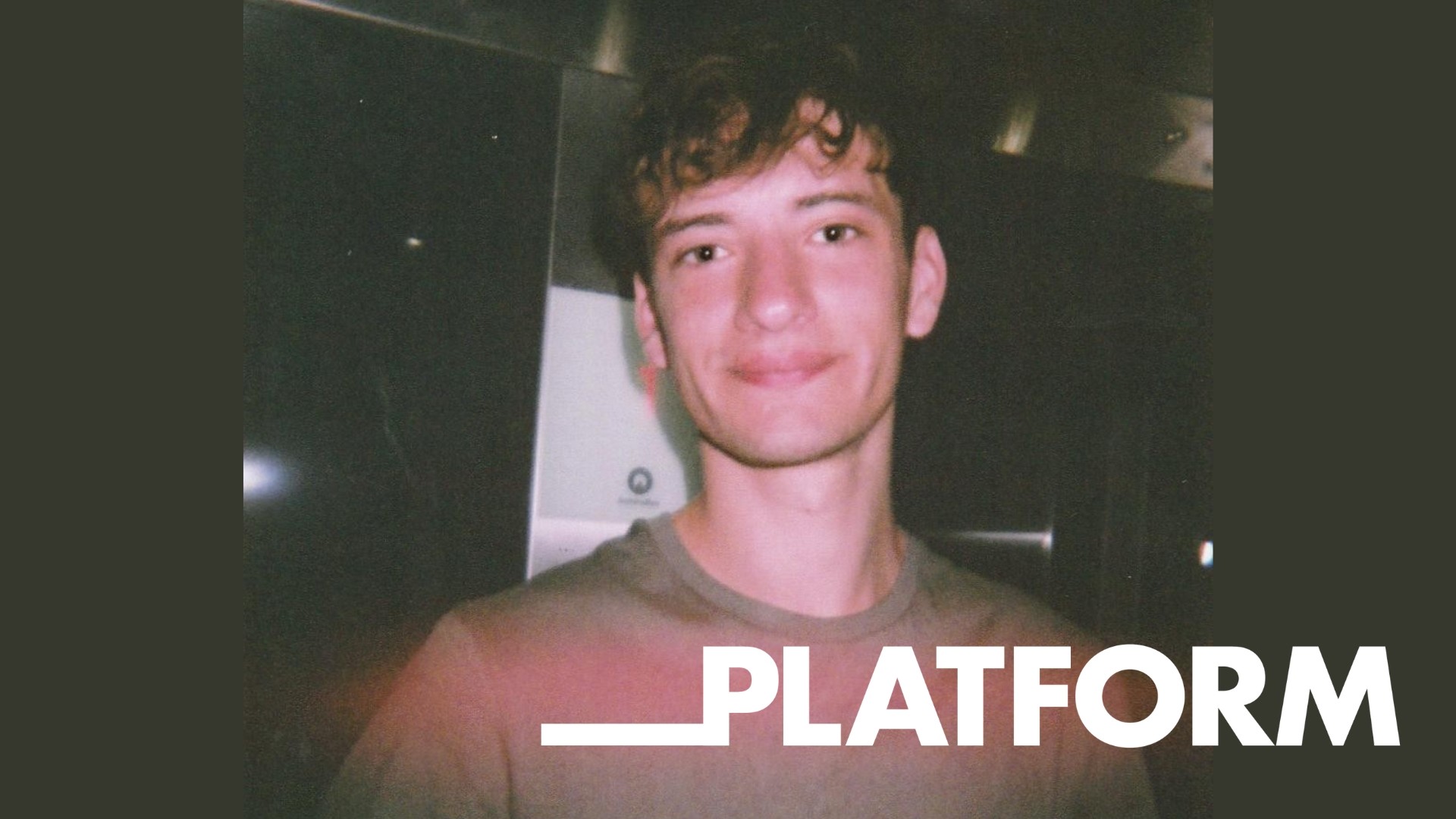
Join us for a conversation with Noah Hopley-Jones, exploring his career journey and current role at BBC Film.
Join us for a conversation with Noah Hopley-Jones, exploring his career journey and current role at BBC Film.
Noah began his career at Phoenix as a Programme Assistant before moving into film development. He’ll reflect on the early experiences that shaped his love of film, the transitions he made along the way, and how working across exhibition and development has informed his perspective.
The discussion will focus on career pathways in film, the value of entry-level roles, and the skills and working practices that have supported Noah’s progression.
He will also share insight into his day-to-day work at BBC Film, offering context on how public service film organisations operate and how roles within them connect to the wider industry.
After the talk, join us in the Terrace Room for informal networking with fellow filmmakers and artists.
Buy Tickets
|
Mother's Pride (12A)
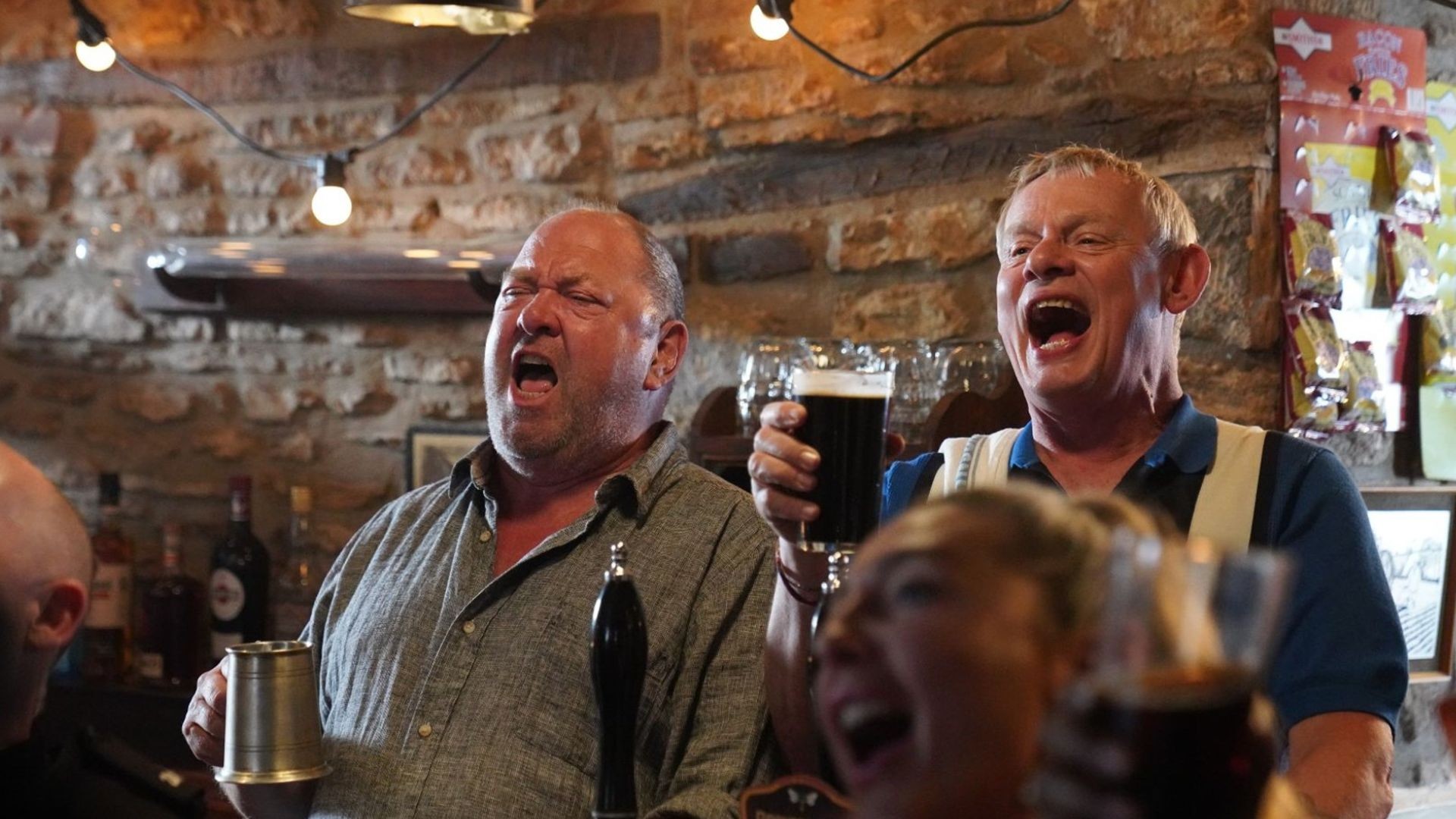
Inspired by a real life story, a grieving family come together with their village community to launch a microbrewery in this heartwarming British film from the team behind Fisherman's Friends.
With their pub at risk of repossession and their relationships strained, a grieving family come together with their village community to launch a microbrewery and enter the Great British Beer Awards.
Inspired by a real-life story, this warm and witty British comedy drama comes from the team behind Fisherman’s Friends and features a cast of homegrown stars, including Martin Clunes, Mark Addy, James Buckley and Josie Lawrence.
Buy Tickets
|
Project Hail Mary (12A)

Based on Andy Weir’s phenomenally successful 2021 novel, science teacher Ryland Grace (Ryan Gosling) must save the planet after waking up in a spaceship with no memory of who he is or how he ended up lightyears from earth.
Science teacher Ryland Grace (Gosling) wakes up with no memory of who he is, or how he ended up on a spaceship light-years from Earth. As his memory returns, he begins to uncover his mission: to solve the riddle of the mysterious substance causing the sun to die. Calling on his scientific knowledge and unorthodox ideas, it is his job to save the planet and everything on it – but he may not have to work alone. Based on Andy Weir’s phenomenally successful 2021 novel, this is thrilling and fun big screen entertainment.
Buy Tickets
|
La Grazia (12A)

“★★★★” – Guardian. Isolated in the grand presidential palace and mourning the loss of his wife, president Mariano De Santis is petitioned over a controversial bill and whether he will grant clemency to two convicted prisoners.
“★★★★ – a stylish, soigné film, ruminative and enigmatic” – Guardian. Oscar-winning director Paolo Sorrentino (The Great Beauty) reunites with Toni Servillo for this moving exploration of power, love, and legacy. Isolated in the grand presidential palace and mourning the loss of his wife, president Mariano De Santis is petitioned over a controversial euthanasia bill and whether he will grant clemency to two convicted prisoners.
In Italian with English subtitles.
Buy Tickets
|
Mystery Film (18)

Come with us on a journey through the weird, the wonderful, the cult and the long forgotten... into the world of mystery film. Nobody knows what the film will be until the lights drop and the opening titles roll.
Come with us on a journey through the weird, the wonderful, the cult and the long forgotten... into the world of mystery film! Nobody knows what the film will be until the lights drop and the opening titles roll.
A Phoenix favourite that regularly sells out – book early to guarantee your seat and enjoy surprise cinema.
The Mystery Film may be any classification up to an 18 certificate. As such, these screenings are for over-18s only.
Some-Antics Spoken Word

Join us upstairs in The Nest for the Some-Antics Spoken Word with BSL Poet Laureate Ishtiaq Hussain.
This month Some-Antics is excited to be partnering with University of Leicester Literary Leicester Festival 2026!
We have a special feature this month – The BSL Poet Laureate Ishtiaq Hussain performing his acclaimed show Ish’s VV World.
As always we’ll have open mic, a poetry slam with cash prize, the world-famous Some-Antics raffle, Ninja Bob playing tunes and host Sammy Nour.
This event will be fully BSL interpreted and entry is free, tickets can be reserved through the Phoenix website or box office.
Poetry open mic slots available, 3 mins per poet.
Poetry open mic etiquette:
• 3 mins per slot
• Perform one poem
• Original material only
• No hate speech
7ish slam slots available.
Slam Etiquette:
• Three minutes per poet
• Points deducted for going over time
• Two rounds of slam
• Perform one poem
• Original material only
• Audience judged
• Just for fun or rhyme to the death, either way bring a smile!
The slam winner takes home a custom Some-Antics notebook, ?25 cash prize and a place in our Championship Slam 2026!
To book a slot please message Some-Antics on Facebook or Instagram (@someanticsleicester) or by emailing [email protected]
Buy Tickets
|
The Good Boy (15)
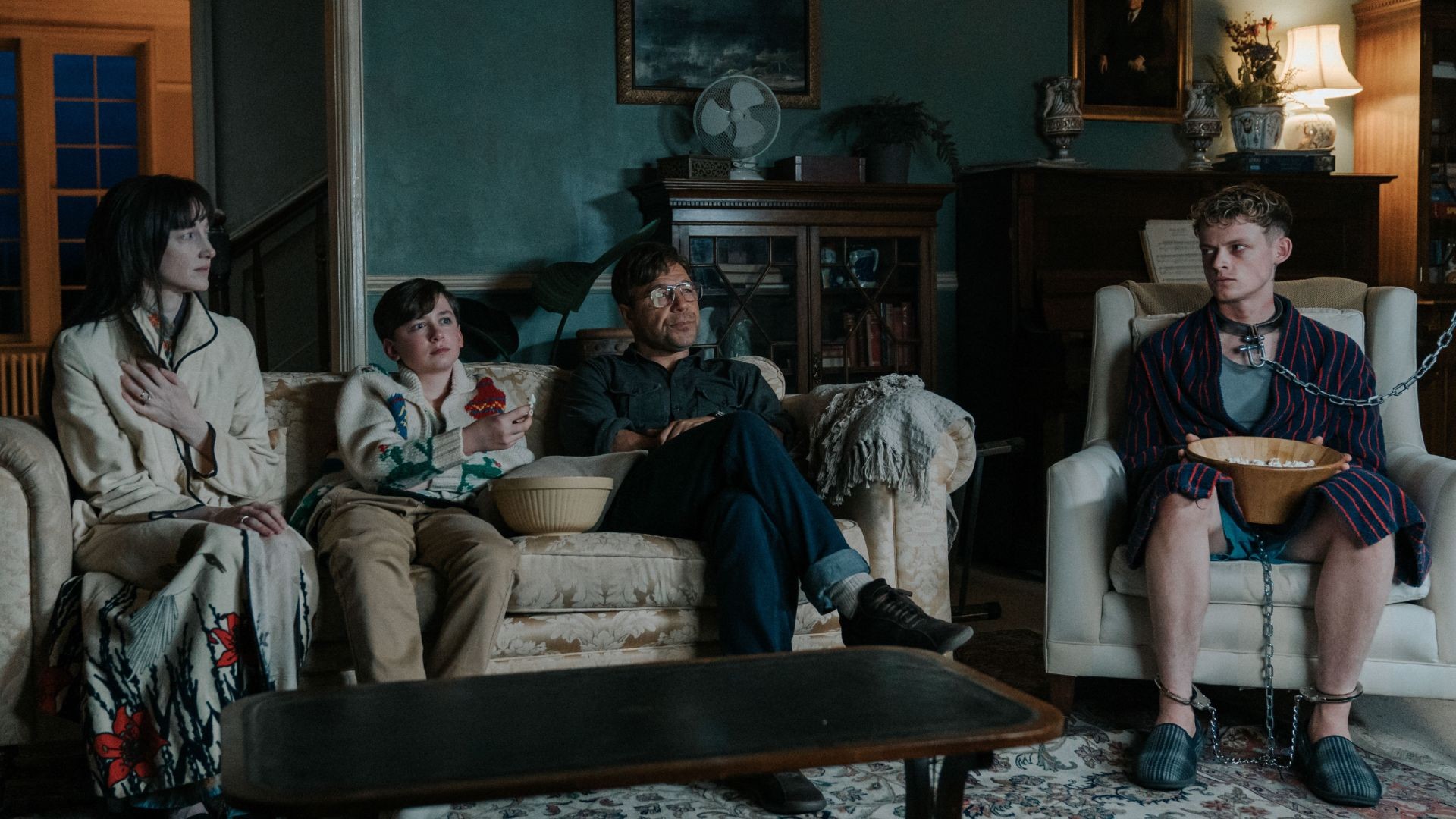
Featuring powerhouse performances from Stephen Graham and Andrea Riseborough, The Good Boy is a razor-sharp psychological thriller that will keep you guessing until the final frame.
"★★★★★ – Unlike anything you’ll see this year" – Digital Spy
"★★★★ – A heart-stopping thriller" – The Standard
"★★★★ – Kubrickian absurdist nightmare" – Guardian
Featuring powerhouse performances from Stephen Graham and Andrea Riseborough, The Good Boy is a razor-sharp psychological thriller that will keep you guessing until the final frame.
The film follows Tommy, a volatile 19-year-old who revels in drugs, parties and violence. Abducted while out on a drunken bender, he wakes to find himself imprisoned in the basement of a remote Yorkshire house. Forced to comply with relentless mind games by his strange new family, Tommy must find a way to escape.
Labyrinth - 40th Anniversary (PG)

A weekend of screenings so a new generation can discover this cult classic as it turns 40!
"★★★★ – enchants from start to finish" – Radio Times
A weekend of screenings so a new generation can discover this cult classic as it turns 40, back by popular demand after sold out shows earlier this year!
When teenager Sarah (Jennifer Connelly) is forced to babysit her younger brother, Toby, she selfishly wishes for him to disappear. When her wish is granted by the Goblin King Jareth (David Bowie), Sarah must travel to Goblin City and solve a deadly maze to rescue her brother.
Tristan und Isolde (TBC)
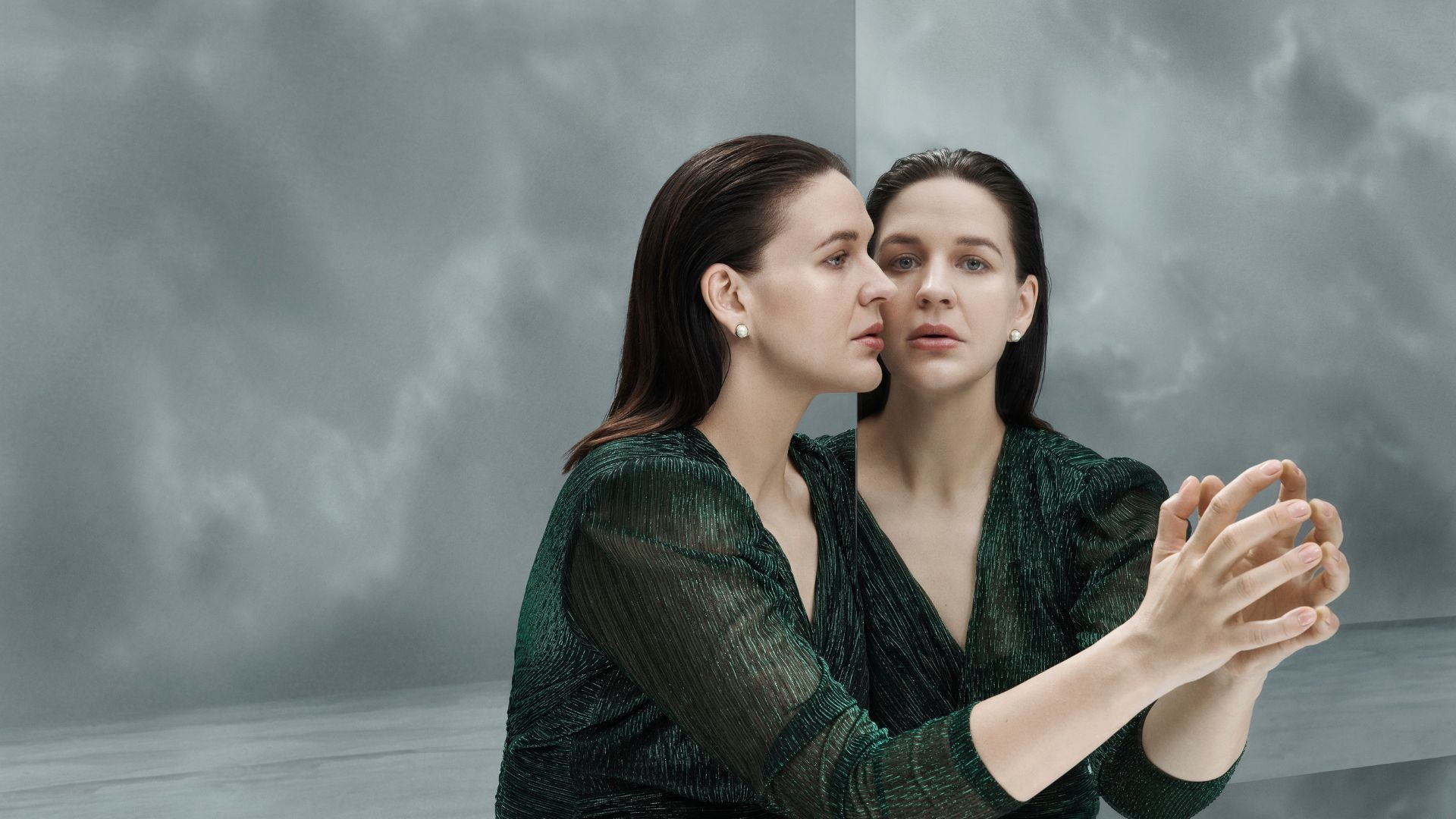
After years of anticipation, a truly unmissable event arrives in cinemas worldwide on March 21 as the electrifying Lise Davidsen tackles one of the ultimate roles for dramatic soprano.
After years of anticipation, a truly unmissable event arrives in cinemas worldwide on March 21 as the electrifying Lise Davidsen tackles one of the ultimate roles for dramatic soprano: the Irish princess Isolde in Wagner’s transcendent meditation on love and death.
Heroic tenor Michael Spyres stars opposite Davidsen as the love-drunk Tristan. The momentous occasion also marks the advent of a new, Met-debut staging by Yuval Sharon—hailed by The New York Times as “the most visionary opera director of his generation” and the first American to direct an opera at the famed Wagner festival in Bayreuth—as well as Music Director Yannick Nézet-Séguin’s first time leading Tristan und Isolde at the Met. Mezzo-soprano Ekaterina Gubanova reprises her portrayal of Brangäne, alongside bass-baritone Tomasz Konieczny, who sings Kurwenal after celebrated Met appearances in Wagner’s Der Fliegende Holländer and Ring cycle. Bass-baritone Ryan Speedo Green makes an important role debut as King Marke.
Buy Tickets
|
I Am What I Am (18+)

After changing careers, thirty-year-old call centre worker Kasumi discovers what she truly wants, challenging traditional ideals of love and womanhood with the help of her own gang of unconventional friends.
Thirty-year-old call centre worker Kasumi (Toko Miura, Drive My Car) dreams of becoming a classical musician. Pressured by her mother to find a husband, the reality is that Kasumi doesn’t harbour romantic feelings for men and finds true meaning in her passions.
After changing careers, she discovers what she truly wants, challenging traditional ideals of love and womanhood with the help of her own gang of unconventional friends.
PLEASE NOTE: Films without BBFC certification can only be screened to over 18s. However, this does not necessarily mean that the films contain adult content.
Screening as part of the Japan Foundation Touring Film Programme 2026.
© 2022 "I Am What I Am" Film Partners
Buy Tickets
|
The Watermelon Woman (15)
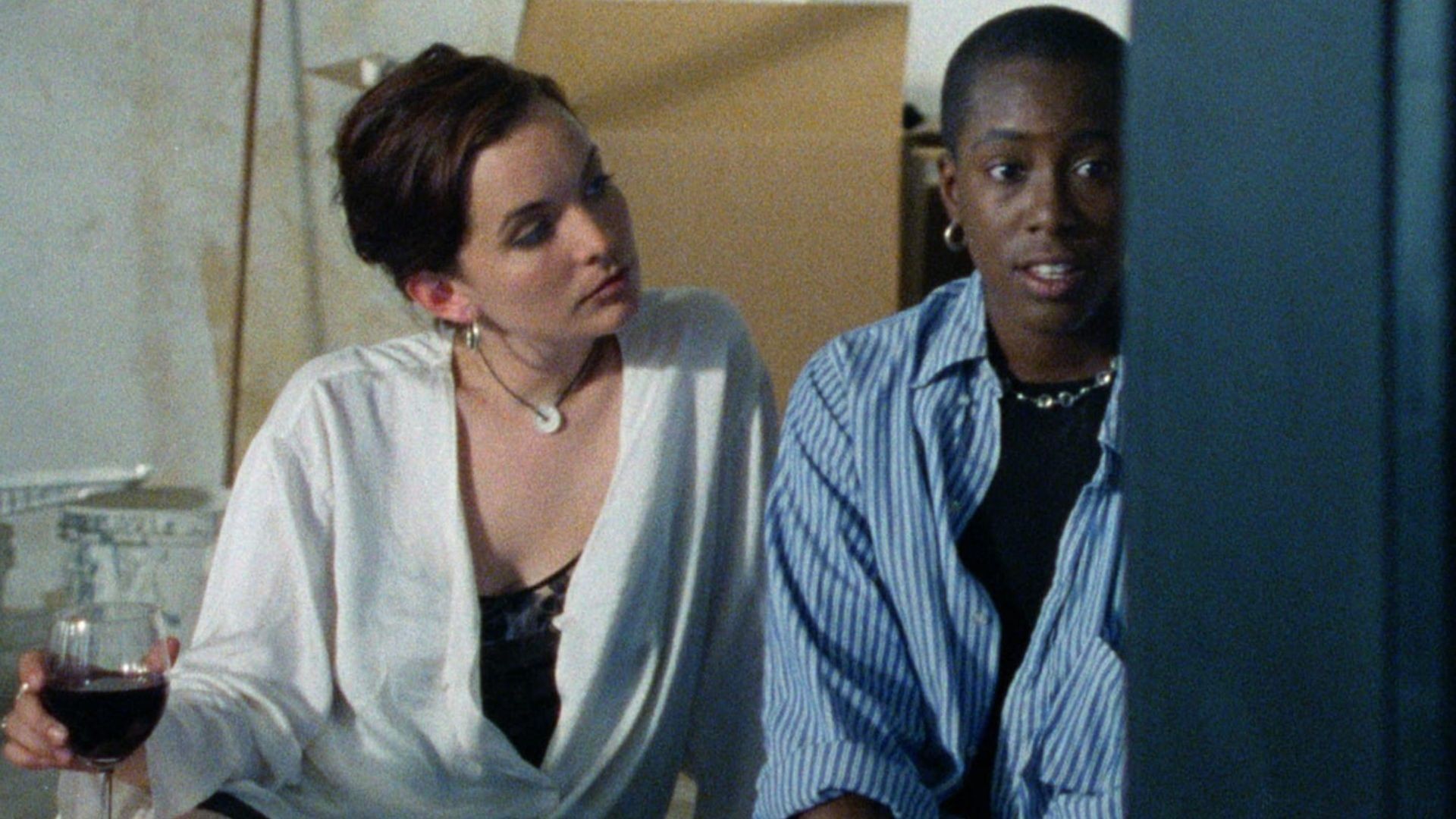
A special 30th anniversary screening of a landmark of 1990s New Queer Cinema, The Watermelon Woman follows young black filmmaker Cheryl who sets out to sets out to make a documentary about a forgotten black film actress.
A young black filmmaker becomes fixated by Fae Richard, a typecast black actress from the 1930s credited only as ‘The Watermelon Woman’, and sets out to make a documentary about this forgotten star. With its complex exploration of interracial queer relationships, The Watermelon Woman is a landmark of 1990s New Queer Cinema.
This special 30th anniversary screening is presented in partnership with We Are Parable as part of the We Are Here project - a nationwide programme funded by the BFI and The National Lottery to increase access to Black cinema.
Follow @weareparable and @phoenixleic on Instagram to keep up to date with the We Are Here programme.
Buy Tickets
|
Hoppers (U)

In Disney and Pixar’s all-new animated film, scientists discover how to “hop” human consciousness into lifelike robotic animals - so young animal lover Mabel ‘hops’ into a robot beaver and uncovers mysteries within the animal world that are beyond anything she could have imagined!
In Disney and Pixar’s all-new animated film, scientists discover how to “hop” human consciousness into lifelike robotic animals - so young animal lover Mabel ‘hops’ into a robot beaver and uncovers mysteries within the animal world that are beyond anything she could have imagined!
Buy Tickets
|
The Magic Faraway Tree (U)
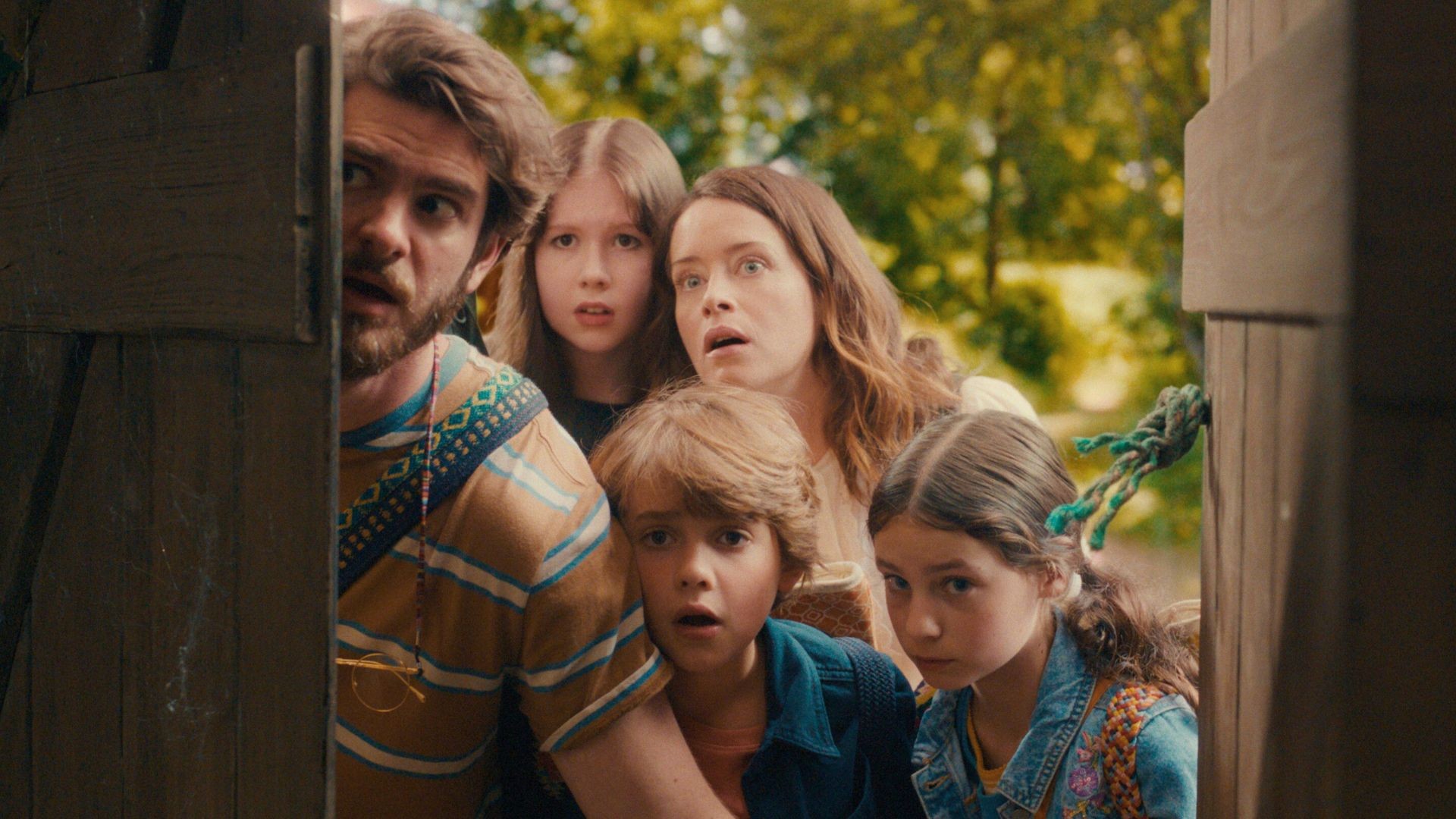
After their family is forced to move to the countryside, three children discover a magical tree inhabited by a group of eccentric residents in this gorgeous adaptation of Enid Blyton’s best-selling children’s classic.
A gorgeous, modern-day adaptation of Enid Blyton’s best-selling children’s classic, by Simon Farnaby (Wonka, Paddington 2). After their family is forced to move to the countryside, three children discover a magical tree inhabited by a group of eccentric residents – Moonface, Silky, Dame Washalot, and Saucepan Man – and are transported to a fantastical world filled with adventure.
A star-studded cast including Andrew Garfield, Claire Foy and Nicola Coughlan, bring this magical live-action tale to life.
Buy Tickets
|
Midwinter Break (TBC)
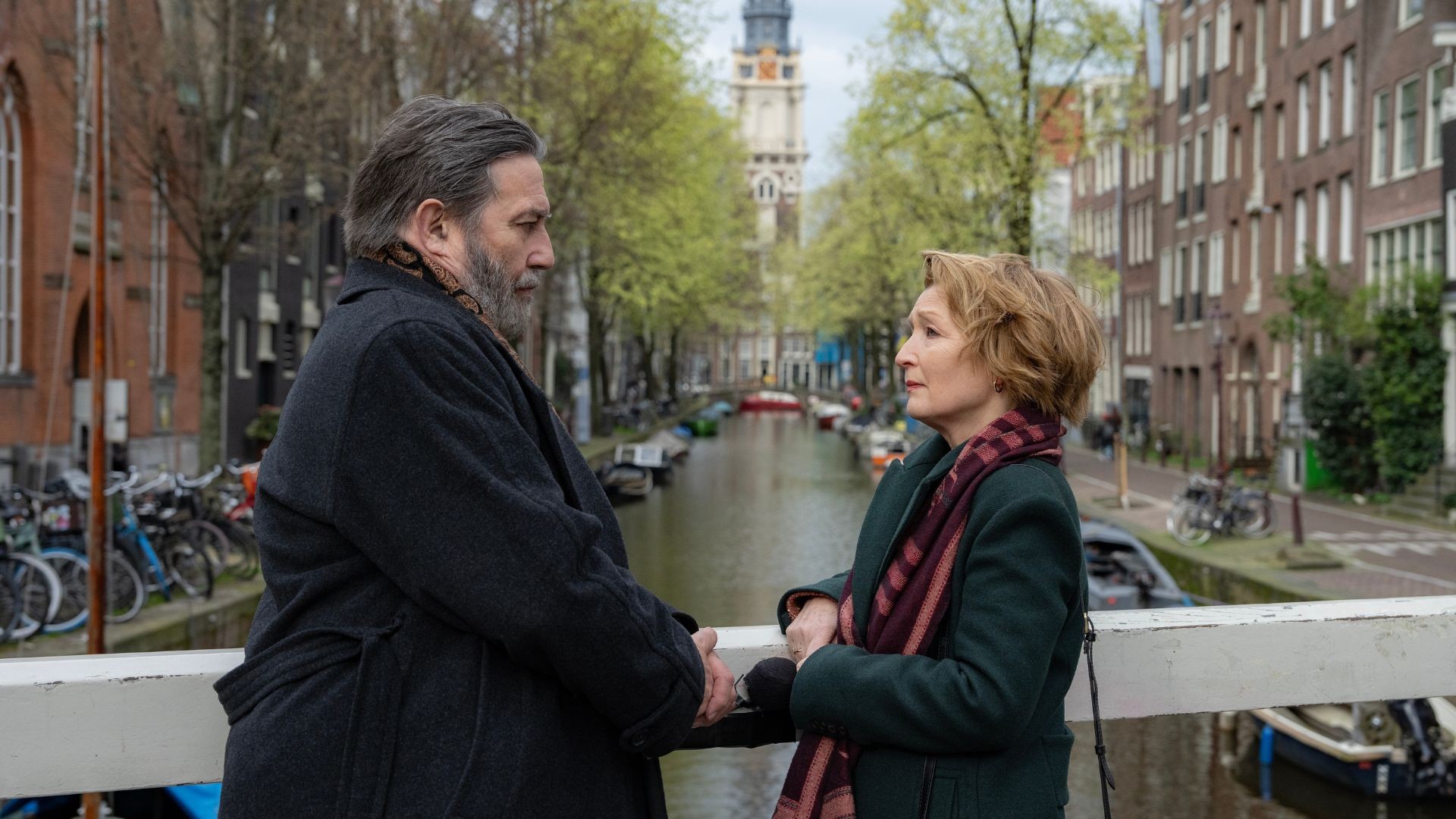
Retired couple Stella and Gerry, travel to Amsterdam for an impromptu holiday. Freed from their staid lives back home, they realise that their decades-long relationship has reached a crossroads.
Retired couple Stella (Lesley Manville) and Gerry (Ciarán Hinds), travel to Amsterdam for an impromptu holiday. Freed from their staid lives back home, they realise that their decades-long relationship has reached a crossroads.
After so much time together, long-held promises and deeply concealed wounds begin to surface, forcing them to confront their future. Based on the acclaimed novel by Bernard MacLaverty, this is a stirring meditation on faith, commitment and the enduring power of love.
Buy Tickets
Soul to Soul & DJ After-party - Ghana Independence Celebration (TBC)
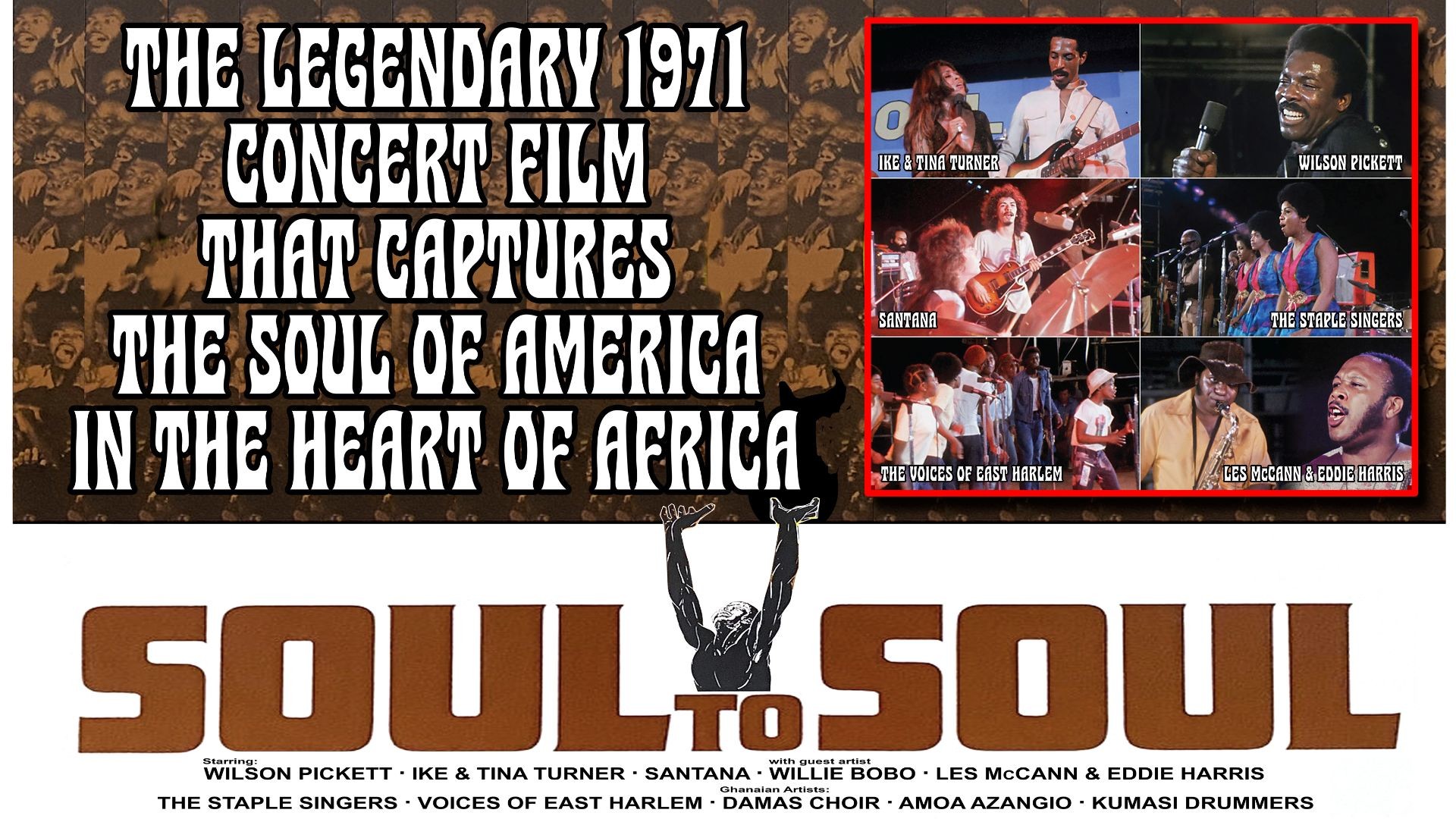
A rare-chance to see this unforgettable musical celebration on the big screen, documenting the 1971 concert which saw a line-up of stellar African-American musicians come together for spectacular performances marking 14 years of Ghanaian independence.
Join us from 6.30pm, there will be stalls from Local Ghanaian Businesses, Radio 2 Funky and African Heritage Alliance, plus a performance from Ashanti Traditional Dance Group in our foyer.
This is a celebration screening so Kente & African Dress is encouraged but not essential!
Ghana, 1971. One of the greatest ever line-ups of African-American musicians came together for a spectacular concert marking 14 years of Ghanaian independence.
Featuring performances from Wilson Pickett, Ike and Tina Turner, Santana, The Staple Singers, Les McCann, Eddie Harris and more, this is a rare-chance to see this unforgettable musical celebration on the big screen!
Following the film there will be an after-party in our Terrace Room with DJ Zigma.
Buy Tickets
|
Dead Man's Wire (15)
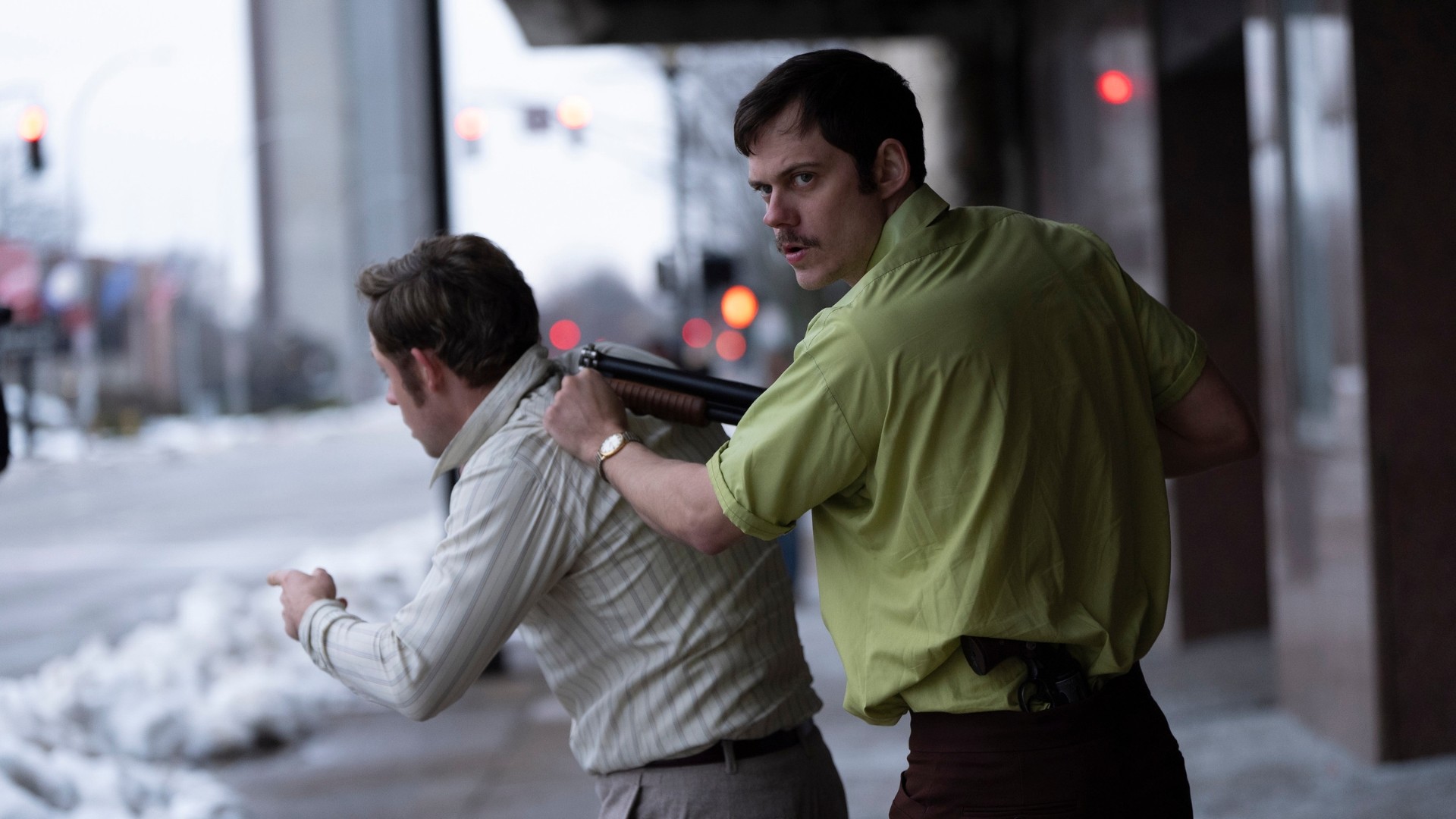
This explosive and blackly comic true-crime thriller from legendary filmmaker Gus Van Sant stars Bill Skarsgård as a man who takes a bank manager's son hostage - vowing not to stand down until he gets an apology and money swindled from him.
1977. Tony Kiritsis (Skarsgård) enters the offices of the Meridian Mortgage Company and takes the company president’s son hostage with a sawn-off shotgun. Wiring the gun to his neck with a ‘dead man’s wire’, Tony holes up in his apartment with the world’s media, Indianapolis police force and the FBI bang outside his door. Until he gets his apology and the money they swindled from him, Tony refuses to stand down.
An explosive and blackly comic true-crime thriller from legendary filmmaker Gus Van Sant.
Dead Lover - Scratch & Sniff screening! (18)

Arriving on the back of a raucous festival run (including Edinburgh International, TIFF and SXSW) where it garnered a legion of disgusted and die-hard fans, future cult-classic status beckons for this gloriously silly and deliriously dark horror-comedy.
Arriving on the back of a raucous festival run (including Edinburgh International Film Festival, TIFF and SXSW) where it garnered a legion of disgusted and die-hard fans, future cult-classic status beckons for this gloriously silly and deliriously dark horror-comedy.
A lonely gravedigger, who stinks of corpses, finally meets her dream man – but their romance is cut short when he tragically drowns at sea. Grief-stricken, the gravedigger goes to morbid lengths to resurrect him through madcap scientific experiments, resulting in grave consequences and unlikely love.
Presented in “Stink-o-vision”; scratch and sniff cards will be available for the screening!
Buy Tickets
|
Ghost Killer (18+)

When uni student Fumika finds a mysterious bullet case after another unsuccessful date, she is surprised to find herself haunted by its previous owner, the recently murdered legendary assassin, Hideo Kudo!
When uni student Fumika finds a mysterious bullet case after another unsuccessful date, she is surprised to find herself haunted by its previous owner, the recently murdered legendary assassin, Hideo Kudo!
Hideo’s ghost has unfinished business and offers to impart his lethal combat skills to Fumika if she will help him exact revenge on his killers. Soon Fumika finds herself drawn into a dangerous world of intrigue and betrayal in this thrillingly playful and kinetic supernatural actioner.
PLEASE NOTE: Films without BBFC certification can only be screened to over 18s. However, this does not necessarily mean that the films contain adult content.
Screening as part of the Japan Foundation Touring Film Programme 2026.
Buy Tickets
|
Iris On Tour: 2025 LGBTQ+ Film Festival (18)

We are delighted to present two short film programmes from the 2025 Iris Prize LGBTQ+ Film Festival. Join us for award winners, audience favourites, and unforgettable stories from the 2025 festival.
We are delighted to present two short film programmes from the 2025 Iris Prize LGBTQ+ Film Festival.
Now celebrating its 20th year, Iris Prize is a global film festival based in Cardiff that champions the very best in queer cinema. Join us for award winners, audience favourites, and unforgettable stories from the 2025 festival.
Festival director Berwyn Rowlands joins us for a Q&A and to introduce the screenings.
Programme 1: Iris 2025: Best Bits
From a haunted tollhouse to a high-rise reckoning, from quiet self-discovery to a love song by the sea, these films capture the brilliance, beauty, and bravery that define Iris. Featuring Y Tolldy, Blackout, One Day This Kid and Never Never Never this programme celebrates the very best of Iris 2025.
Programme 2: When Love Broke the Law
From forbidden kisses to real-life revolution, this double bill shows that love has always been our greatest act of defiance.
In Two People Exchanging Saliva, affection itself is a crime — and yet, someone dares to kiss. In Jackie, the fearless story of a pioneering lesbian activist reminds us that real change begins with small acts of courage.
Buy Tickets
|
The North (15)
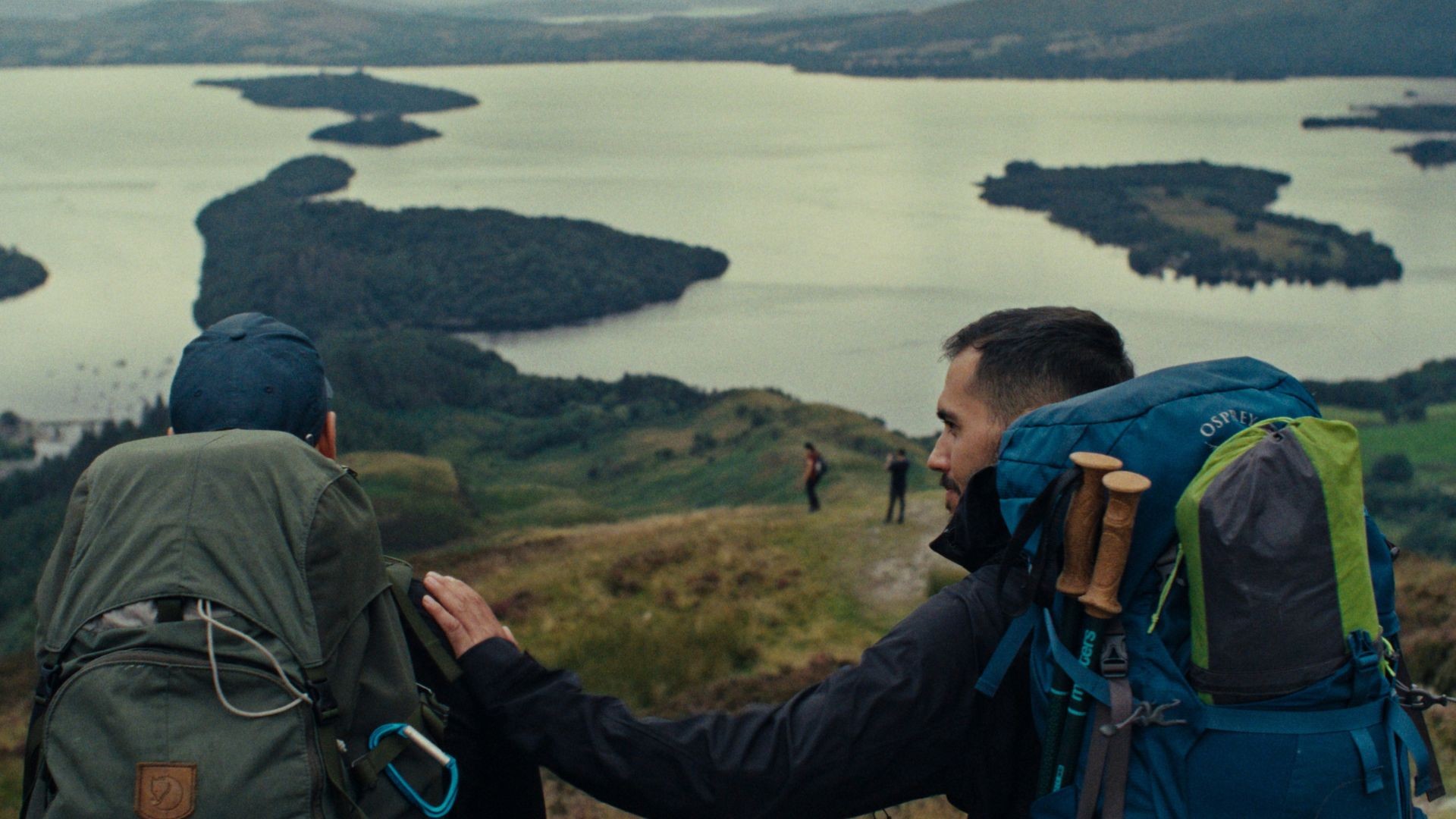
“★★★★ – A majestic drama…purifying and uplifting” – Guardian. Bart Schrijver’s acclaimed drama follows former best friends and roommates Chris and Lluis, who meet up after a decade to hike Scotland’s West Highland Way and Cape Wrath Trail.
“★★★★ – A majestic drama…purifying and uplifting” – The Guardian
A exclusive preview of Bart Schrijver’s acclaimed drama for MyPhoenix Members.
Former best friends and roommates Chris and Lluis meet up after a decade to hike Scotland’s West Highland Way and Cape Wrath Trail. Having taken the same 350-mile walk in their youth, the pair hope to rekindle their once-strong friendship by spending 30 days together in the majestic, raw beauty of the Scottish Highlands.
Amidst the sweeping landscapes, harsh weather and chance encounters with other hikers, the solitude and silence of the trek force the pair to confront truths about themselves and their friendship.
In English and Spanish and Dutch with English subtitles.
Buy Tickets
|
Siegfried (TBC)

The triumphant third chapter of Wagner's Ring cycle.
Raised by a scheming dwarf and unaware of his true family origins, a young man embarks on an epic journey. Soon, destiny brings him face-to-face with a shattered sword, a fearsome dragon and the cursed ring it guards, and a Valkyrie forced into enchanted slumber...
Moments of transcendent beauty and heroic triumph sparkle in the third chapter of Wagner’s Ring cycle, brought to life under Barrie Kosky’s inspired eye following his spectacular Das Rheingold (2023) and Die Walküre (2025). Andreas Schager, in his much-anticipated debut with The Royal Opera, stars as Siegfried’s titular hero, alongside Christopher Maltman’s towering Wanderer, Peter Hoare’s treacherous Mime and Elisabet Strid’s radiant Brünnhilde. Antonio Pappano conducts, drawing out the unspoken tensions and ethereal mysticism of Wagner’s dynamic score.
Buy Tickets
|
Talking Pictures Spring (Mondays) (18+)

Share your love of film with this 10-week course of tutor-led group discussions. The price includes a cup of tea/filter coffee and a ticket to the weekday daytime screening of your choice.
Join like-minded film enthusiasts for this 10-week course of tutor-led group discussions that put the cinema week into focus and help you get more from your cinema experience, with film clips and updates about forthcoming movies and film industry news.
Included in the price of the course is a cup of tea/filter coffee and a ticket to the weekday daytime screening of your choice, to be used in the same week as your session.
If you have access requirements please book via Box Office so we can ensure that your specific needs can be accommodated.
PLEASE NOTE: The course will run from 10.30am – 12pm, though Phoenix does not open to the general public until 11am. Your drinks which are included in the course fee will be available from the bar.
FURTHER INFORMATION
Price: £95 / £85 conc / £80 Members
Tutor: Kenton Hall
Booking Information:
This 10-week course will run at Phoenix on Mondays, 10.30am – 12pm, from 13 April – 29 June 2025.
There will be no sessions on Mon 4 May and Mon 25 May due to bank holidays.
You must be 18 or over to attend.
Member discount available.
Cancellation Policy:
We do not offer refunds for cancellations of bookings, except in exceptional circumstances. In the event that an advertised course is withdrawn, we will endeavour to give 7 days’ notice and a full refund will be made.
ABOUT THE TUTOR
Kenton Hall is an award-winning Canadian writer, director, musician, and teacher, with numerous short and feature film credits to his name – both behind and in front of the camera. Kenton also teaches a BTEC in Creative Media Production through Leicester College and The Art of Screenwriting here at Phoenix. He has played a variety of roles on stage and screen, from Les Miserables and Muppets Most Wanted to 4th Floor of Singapore and Father to Fall. He most recently wrote, directed, and co-starred in the feature film A Dozen Summers, published the comic memoir Bisection, about living and parenting with bipolar disorder, and co-wrote the Audible Drama Getting Better, starring Rhod Gilbert, Kathryn Drysdale, and Mark Gatiss.
Buy Tickets
|
Paul Thomas Anderson (18+)

With One Battle After Another poised to sweep the Oscars, we take a deep dive into the work of Paul Thomas Anderson.
With One Battle After Another poised to sweep the Oscars, we take a deep dive into the work of Paul Thomas Anderson. His remarkable filmography includes modern classics There Will Be Blood, Phantom Thread, Boogie Nights and Magnolia, and demonstrates his unique voice as both writer and director, and his ability to jump between genres.
COURSE BREAKDOWN
Week 1 - Beginnings - Sydney & Hard Eight
Week 2 - Breakthroughs - Boogie Nights & Magnolia
Week 3 - Pivots - Punch Drunk Love & There Will Be Blood
Week 4 - Puzzles - The Master & Inherent Vice
Week 5 - Maturity - Phantom Thread & Licorice Pizza
Week 6 - Mastery - One Battle After Another
FURTHER INFORMATION
Price: £80 / £75 conc / £65 Members
Tutor: Kenton Hall
Booking information:
This 6-week course will run at Phoenix on Mondays, 7pm – 8.30pm, 13 Apr – 1 Jun 2026.
PLEASE NOTE: There is no session on 4 May and 25 May due to the bank holidays.
You must be 18 or over to attend.
Member discount available.
Cancellation Policy:
We do not offer refunds for cancellations of bookings, except in exceptional circumstances. In the event that an advertised course is withdrawn, we will endeavour to give 7 days’ notice and a full refund will be made.
ABOUT THE TUTOR
Kenton Hall is an award-winning Canadian writer, director, musician, and teacher, with numerous short and feature film credits to his name – both behind and in front of the camera. Kenton also teaches a BTEC in Creative Media Production through Leicester College and The Art of Screenwriting here at Phoenix. He has played a variety of roles on stage and screen, from Les Miserables and Muppets Most Wanted to 4th Floor of Singapore and Father to Fall. He most recently wrote, directed, and co-starred in the feature film A Dozen Summers, published the comic memoir Bisection, about living and parenting with bipolar disorder, and co-wrote the Audible Drama Getting Better, starring Rhod Gilbert, Kathryn Drysdale, and Mark Gatiss.
Buy Tickets
|
Talking Pictures Spring (Thursdays) (18+)

Share your love of film with this 10-week course of tutor-led group discussions. The price includes a cup of tea/filter coffee and a ticket to the weekday daytime screening of your choice.
Join like-minded film enthusiasts for this 10-week course of tutor-led group discussions that put the cinema week into focus and help you get more from your cinema experience, with film clips, updates about forthcoming movies and film industry news.
Included in the price of the course is a cup of tea/filter coffee and a ticket to the weekday daytime screening of your choice, to be used in the same week as your session.
If you have access requirements please book via Box Office so we can ensure that your specific needs can be accommodated.
PLEASE NOTE: The course will run from 10.30am – 12pm, though Phoenix does not open to the general public until 11am. Your drinks which are included in the course fee will be available from the bar.
FURTHER INFORMATION
Price: £95 / £85 conc / £80 Members
Tutor: Kenton Hall
Booking Information:
This 10-week course will run at Phoenix on Thursdays, 10.30am – 12pm, from 16 April – 2 Jul 2025.
There will be no sessions on Thu 7 May and Thu 28 May due to bank holidays.
You must be 18 or over to attend.
Member discount available.
Cancellation Policy:
We do not offer refunds for cancellations of bookings, except in exceptional circumstances. In the event that an advertised course is withdrawn, we will endeavour to give 7 days’ notice and a full refund will be made.
ABOUT THE TUTOR
Kenton Hall is an award-winning Canadian writer, director, musician, and teacher, with numerous short and feature film credits to his name – both behind and in front of the camera. Kenton also teaches a BTEC in Creative Media Production through Leicester College and The Art of Screenwriting here at Phoenix. He has played a variety of roles on stage and screen, from Les Miserables and Muppets Most Wanted to 4th Floor of Singapore and Father to Fall. He most recently wrote, directed, and co-starred in the feature film A Dozen Summers, published the comic memoir Bisection, about living and parenting with bipolar disorder, and co-wrote the Audible Drama Getting Better, starring Rhod Gilbert, Kathryn Drysdale, and Mark Gatiss.
Buy Tickets
|
NT Live: All My Sons (15)
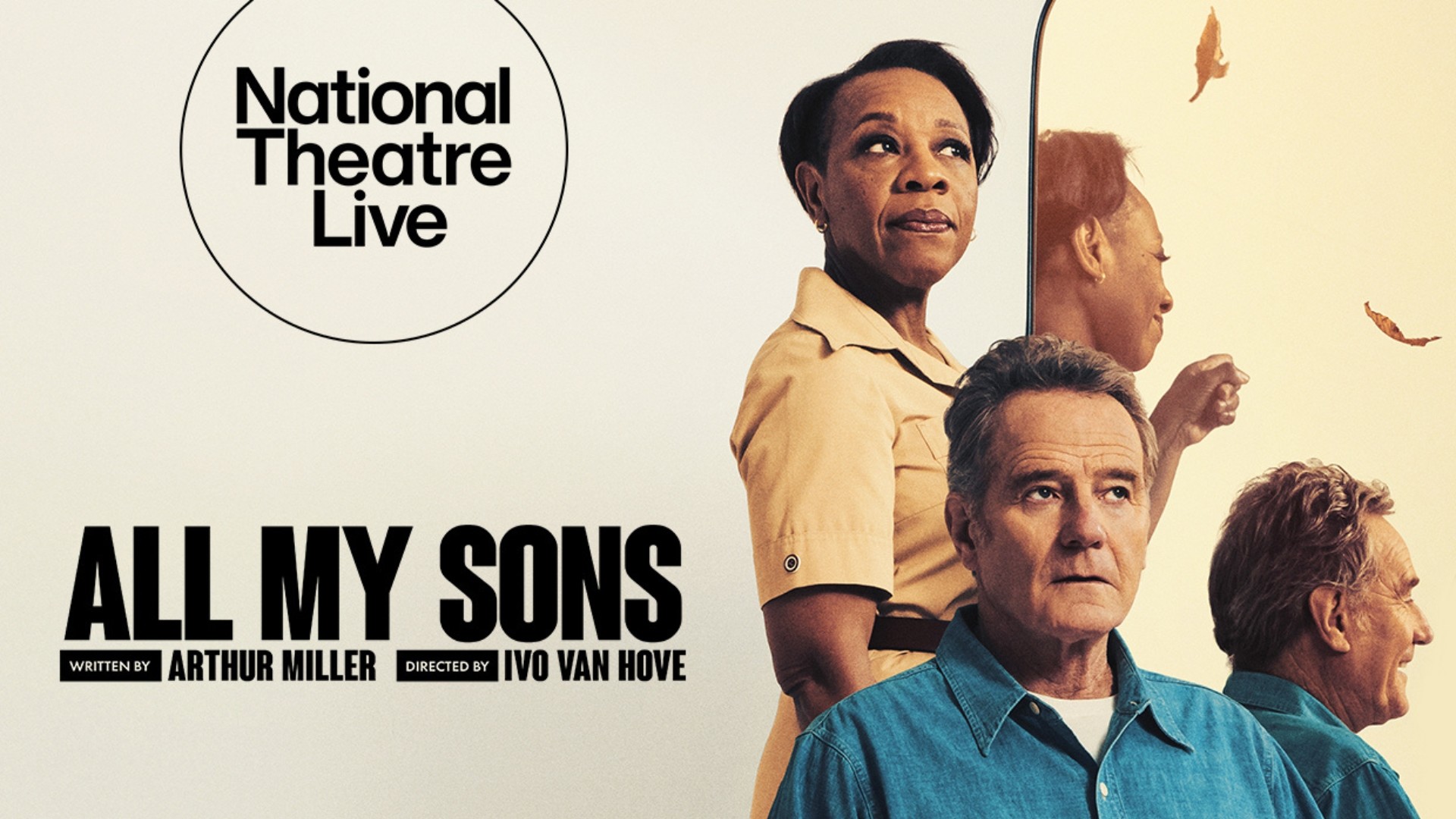
Bryan Cranston (Breaking Bad) and Marianne Jean-Baptiste (Hard Truths) feature in a five-star, triumphantly acclaimed new production of Arthur Miller’s classic play, from visionary director Ivo Van Hove (A View from the Bridge).
Bryan Cranston (Breaking Bad) and Marianne Jean-Baptiste (Hard Truths) feature in a five-star, triumphantly acclaimed new production of Arthur Miller’s classic play, from visionary director Ivo Van Hove (A View from the Bridge).
One family, the heart of the American dream. When wartime delivers profits for Joe, it comes at a price when his partner is charged with criminal manufacturing deals, and his eldest son goes missing in action. Will peacetime bring peace of mind, or will he be confronted by the consequence of his actions?
Filmed live from the West End, Paapa Essiedu (I May Destroy You), Tom Glynn-Carney (House of the Dragon), and Hayley Squires (I, Daniel Blake) also feature in this disturbingly prescient play.
Please note - the captioned screening on Sat 17 Apr has subtitled dialogue but does not feature descriptive subtitles of music or sound effects.
Please note that All My Sons contains strobe lighting, which may impact customers with photosensitive epilepsy.
Shakespeare on Screen: Part I (18+)

Join us for a 6-week course exploring the Bard's impact on the world of cinema.
William Shakespeare’s plays have continue to be staged for over 400 years, but he has also dominated the cinema, a medium far beyond what was dreamt of in his philosophy! In this 6 week course, we examine how it is we find new things to say about his plays, the ways he invented many of the tropes of film storytelling, and how the mystery of his life continues to fascinate.
FURTHER INFORMATION
Price: £80 / £75 conc / £65 Members
Tutor: Kenton Hall
Course Breakdown:
Week One: Henry VI - Aston Villa - Nil
Week Two: A History, A Comedy and a Tragedy Walk Into a Bar
Week Three: The Labour Lost in Taming Two Gentleman
Week Four: Romeo, Richard and Juliet Have A Dream
Week Five: John and Henry Go To Venice
Week Six: Much Ado About Henry and Julius
Booking Information:
This 6 week course will run at Phoenix on Thursdays, 7pm – 8.30pm, from 16 April – 21 May 2026.
You must be 18 or over to attend.
Cancellation Policy:
We do not offer refunds for cancellations of bookings, except in exceptional circumstances. In the event that an advertised course is withdrawn, we will endeavour to give 7 days’ notice and a full refund will be made.
ABOUT THE TUTOR
Kenton Hall is an award-winning Canadian writer, director, musician and teacher, with numerous short and feature film credits to his name – both behind and in front of the camera. Alongside his work as a novelist, screenwriter, musician and actor, he has taught The Art of Screenwriting here at Phoenix for more than a decade.
He wrote, directed and co-starred in the feature film A Dozen Summers, now available on Netflix; published the comic memoir Bisection, about living and parenting with bipolar disorder; co-wrote the Audible Drama Getting Better, starring Rhod Gilbert, Kathryn Drysdale and Mark Gatiss; co-adapted, for audio, the lost silent horror film London After Midnight starring Art Malik; and wrote the Doctor Who musical spin-off Children of the Circus and its novelisation. Somewhere in between he released the triple album Idiopath as Kenton Hall & The Necessary Measures. He both looks and is tired.
Buy Tickets
|
Fiddler on the Roof - 55th Anniversary (U)

Screening to mark its 55th Anniversary, Norman Jewison’s sublime epic musical is based on the 1964 Broadway show and follows Tevye, a poor Jewish milkman in early 20th-century Imperial Russia.
Screening to mark its 55th Anniversary, Norman Jewison’s sublime epic musical is based on the 1964 Broadway show and follows Tevye, a poor Jewish milkman in early 20th-century Imperial Russia.
Determined to marry off his daughters to approved suitors in the shtetl, Tevye laments the persecution of his people as they try to preserve their faith and culture in the face of increasing aggression.
Jo in the Water + Q&A (12A)

Screening to mark Earth Day 2026, Pip Piper’s new documentary follows passionate sea swimmer turned reluctant activist Jo Bateman, as she takes on one of the UK's biggest water companies.
Screening to mark Earth Day 2026, Pip Piper’s new feature documentary follows passionate sea swimmer turned reluctant activist, Jo Bateman, as she takes on one of the UK's biggest water companies in a David-and-Goliath battle against devastating sewage pollution.
As Jo's courage helps ignite a growing movement, this film exposes the dire state of our water system and asks: who will stand up for our right to swim in clean natural waters, and for the species and communities that rely upon them?
Director Pip Piper joins us for an online Q&A following the screening.
Showing as part of Green screen, a new monthly strand in our programme presenting films looking at climate change, activism and sustainability.
Buy Tickets
|
Film School (18+)
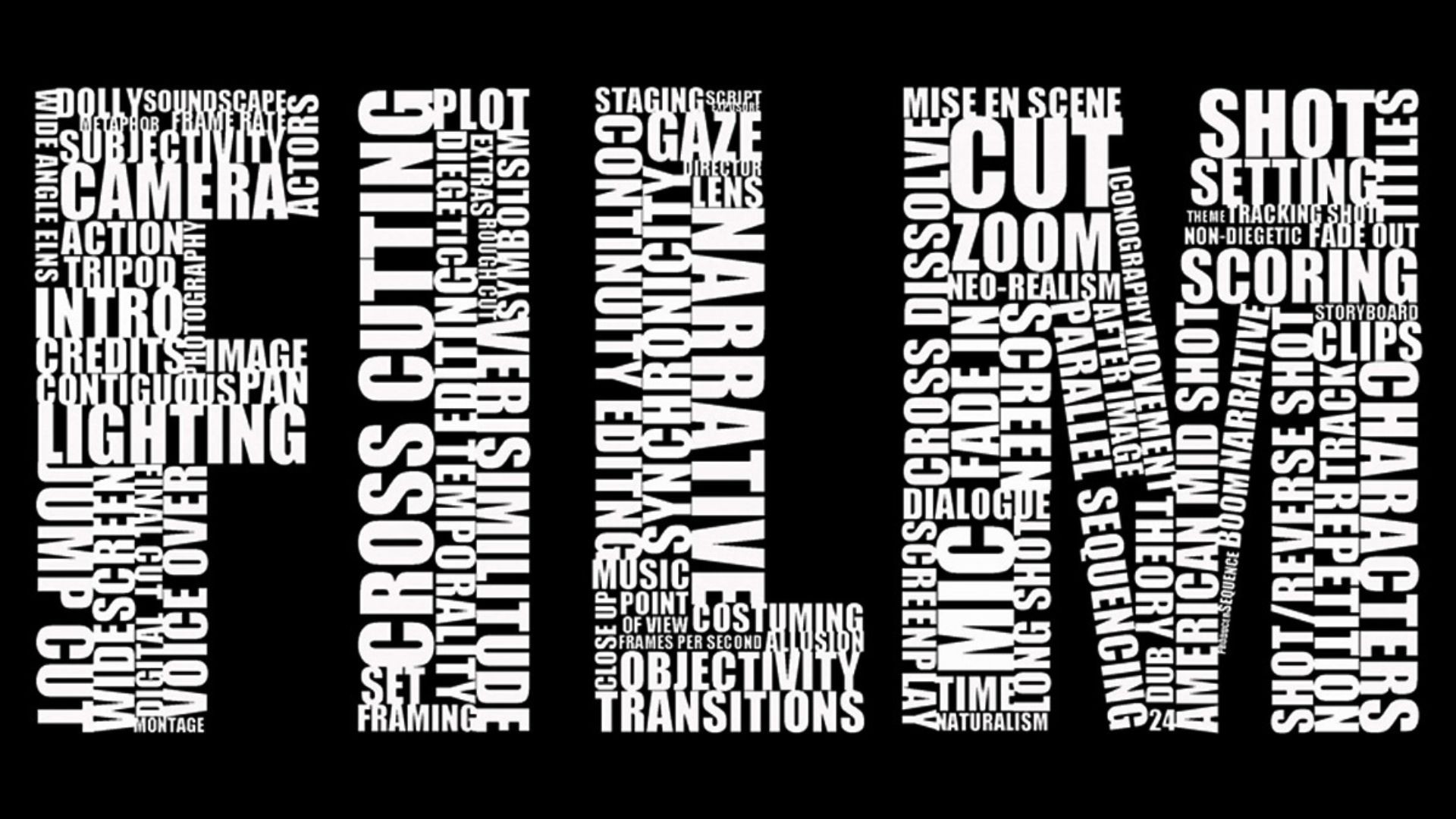
Award-winning filmmaker and director Keith Allott leads our annual 8-week practical introduction to filmmaking.
Award-winning filmmaker and director Keith Allott (Badshoes Film) leads our annual 8-week practical introduction to filmmaking, taking you step by step all the way from pre-production planning through to the final edit of your film.
We will look at using the camera and what shot types cause what effects with an audience; capturing good audio and treating it; editing, edit pacing and the effects it has; and how music can change the mood of your film completely.
Course Breakdown:
Week 1 - Intro & Journey of an Idea / Film Set Roles and Responsibilities
Week 2 - Shot Types / Shooting the Script / Storyboarding
Week 3 - Cinematography / Role of the Director
Week 4 - Mise-en-scene / Legality and Contracts
Week 5 - Sound Recording, Scoring and Soundtrack
Week 6 - Practical Session
Week 7 - Editing and Post-Audio
Week 8 - Exhibition, Distribution and Film Festivals / Q&A
FURTHER INFORMATION
Price: £105 / £95 conc / £87 Members
Tutor: Keith Allott
Booking Information:
This 8-week course will run on Thursdays, 7pm – 9pm, from Thu 23 April – Thu 11 Jun 2026.
You must be 18 or over to attend.
Member discount available.
Cancellation Policy:
We do not offer refunds for cancellations of bookings, except in exceptional circumstances. In the event that an advertised course is withdrawn, we will endeavour to give 7 days’ notice and a full refund will be made.
ABOUT THE TUTOR
Keith Allott is an award-winning narrative, documentary and abstract filmmaker with his own production company, Badshoes Film. His work has screened at film festivals across the world since 1997 including BAFTA qualifying screenings at Aesthetica and Encounters. As a producer he works with young people to create their own films and has helped them to screen and win awards through Into Film, the British Youth Council and multiple festivals including the BFI and INDI’s. He currently teaches film production and theory at De Montfort University International College and is working on several short and feature length projects.
Buy Tickets
|
The Magic Flute (TBC)

Mozart’s fantastical opera glitters in David McVicar’s enchanting production.
Princess Pamina has been captured. Her mother, the Queen of the Night, tasks the young Prince Tamino with her daughter’s rescue. But when Tamino and his friendly sidekick, Papageno, embark on their adventure, they soon learn that when it comes to the quest for love, nothing is as it really seems. Guided by a magic flute, they encounter monsters, villains, and a mysterious brotherhood of men – but help, it turns out, comes when you least expect it.
Mozart’s fantastical opera glitters in David McVicar’s enchanting production. A star cast including Julia Bullock as Pamina, Amitai Pati as Tamino, Huw Montague Rendall as Papageno, Kathryn Lewek as the Queen of the Night, and Soloman Howard as Sarastro, led by French conductor Marie Jacquot in her Covent Garden debut.
Buy Tickets
|
Eugene Onegin (TBC)

Following her acclaimed 2024 company debut in Puccini’s Madama Butterfly, soprano Asmik Grigorian returns to the Met as Tatiana, the lovestruck young heroine in this ardent operatic adaptation of Pushkin.
Following her acclaimed 2024 company debut in Puccini’s Madama Butterfly, soprano Asmik Grigorian returns to the Met as Tatiana, the lovestruck young heroine in this ardent operatic adaptation of Pushkin, which will be transmitted live from the Metropolitan Opera stage to cinemas worldwide on May 2.
Baritone Igor Golovatenko reprises his portrayal of the urbane Onegin, who realizes his affection for her all too late. The Met’s evocative production, directed by Tony Award–winner Deborah Warner, “offers a beautifully detailed reading of … Tchaikovsky’s lyrical romance” (The Telegraph).
Buy Tickets
|
Frida Kahlo (12A)

Take a journey through the life of a true icon, discover her art, and uncover the true story of the rebellious, passionate and turbulent life of Frida Kahlo.
“I never paint dreams or nightmares. I paint my own reality.”
Frida Kahlo is a phenomenon, arguably the world’s favourite female artist and beloved by young and old. Exhibition on Screen’s award-winning film – first released during covid to a restricted audience - is back by popular demand with an exciting new addition from the blockbuster transatlantic exhibition from Tate Britain and MFA Houston 'Frida Kahlo: the Making of an Icon'.
Who was Frida Kahlo? Everyone knows her face but who was the woman behind the bright colours, the big brows and the floral crowns? Take a journey through the life of a true icon, discover her art, and uncover the true story of her rebellious, passionate and turbulent life.
Making use of the latest technology to deliver previously unimaginable quality, we take an in-depth look at key works throughout her career. Using letters Kahlo wrote to guide us, this definitive film reveals her deepest emotions and unlocks the secrets and symbolism contained within her art.
Image credit: The Two Fridas, 1939, Frida Kahlo, Museo de Arte Moderno, Photo © Bridgeman Images
NT Live: The Playboy of the Western World (12A)
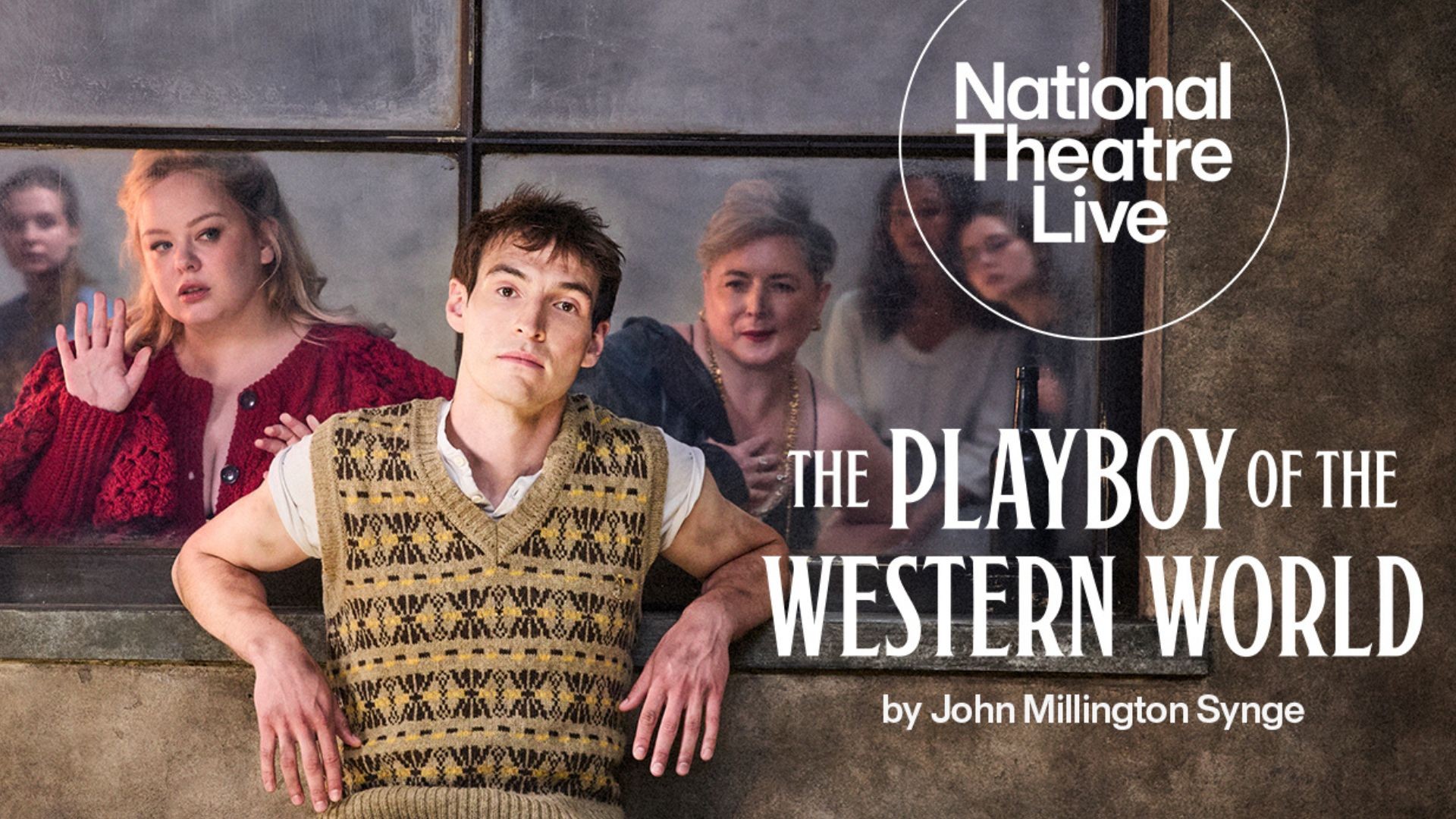
Nicola Coughlan (Bridgerton) joins Éanna Hardwicke (The Sixth Commandment) and Siobhán McSweeney (Derry Girls) in John Millington Synge’s riveting play of youth and self-discovery.
Nicola Coughlan (Bridgerton) joins Éanna Hardwicke (The Sixth Commandment) and Siobhán McSweeney (Derry Girls) in John Millington Synge’s riveting play of youth and self-discovery.
Pegeen Flaherty’s life is turned upside down when a young man walks into her pub claiming that he’s killed his father. Instead of being shunned, the killer becomes a local hero and begins to win hearts, that is until a second man unexpectedly arrives on the scene…
Filmed live on stage at the National Theatre, Caitríona McLaughlin directs this darkly funny tale full to the brim with secrets.
Leicester Jazz House Presents: The Vimala Rowe Quartet

The Vimala Rowe Quartet bring Find Your World to Phoenix as part of Leicester Jazz House's 2026 summer season.
The Vimala Rowe Quartet: Find Your World traces singer Vimala’s remarkable journey, shaped by the experience of having multiple “mothers” before her adoption by white academic parents, both lecturers at Leicester University. The music, poetry, and voices that guided her through both joyful and turbulent moments are woven into the show – from Billie Holiday to William Blake – forming its emotional and artistic backbone.
Vimala’s original music draws on a rich tapestry of influences: jazz and blues, African and Indian folk traditions, UK indie, and soul. Her story spans nine years living in Bangkok, where she became part of Thailand’s first rap band, followed by a year studying North Indian classical vocals in Maharashtra. Returning to England, she spent a period in reflective retreat before emerging as a striking new voice on the jazz scene, where she is now widely celebrated.
“A singer of quite astonishing versatility and adaptability” – London Jazz News
“One of the most distinctive singers to come along in some time” – The Sunday Times
Line-up:
Vimala Rowe – Vocals
Charlie Flint – Piano
Mikele MonTilli – Bass
Darren Beckett – Drums
Runtime includes a 30-minute interval (approx).
Buy Tickets
|
El Último Sueño de Frida y Diego (TBC)

The season comes to a close with a live transmission of American composer Gabriela Lena Frank’s first opera, a magical-realist portrait of Mexico’s painterly power couple Frida Kahlo and Diego Rivera.
On May 30, the Metropolitan Opera’s 2025-26 Live season comes to a close with a live transmission of American composer Gabriela Lena Frank’s first opera, a magical-realist portrait of Mexico’s painterly power couple Frida Kahlo and Diego Rivera, with libretto by Pulitzer Prize-winning playwright Nilo Cruz.
Fashioned as a reversal of the Orpheus and Euridice myth, the story depicts Frida, sung by leading mezzo-soprano Isabel Leonard, leaving the underworld on the Day of the Dead and reuniting with Diego, portrayed by baritone Carlos Álvarez. The famously feuding pair briefly relive their tumultuous love, embracing both the passion and the pain before bidding the land of the living a final farewell.
Music Director Yannick Nézet-Séguin conducts the Met-premiere staging of Frank’s opera, a “confident, richly imagined score” (The New Yorker) that “bursts with color and fresh individuality” (Los Angeles Times). The vibrant new production, taking enthusiastic inspiration from Frida and Diego’s paintings, is directed and choreographed by Deborah Colker.
Buy Tickets
|
NT Live: Les Liaisons Dangereuses (15)
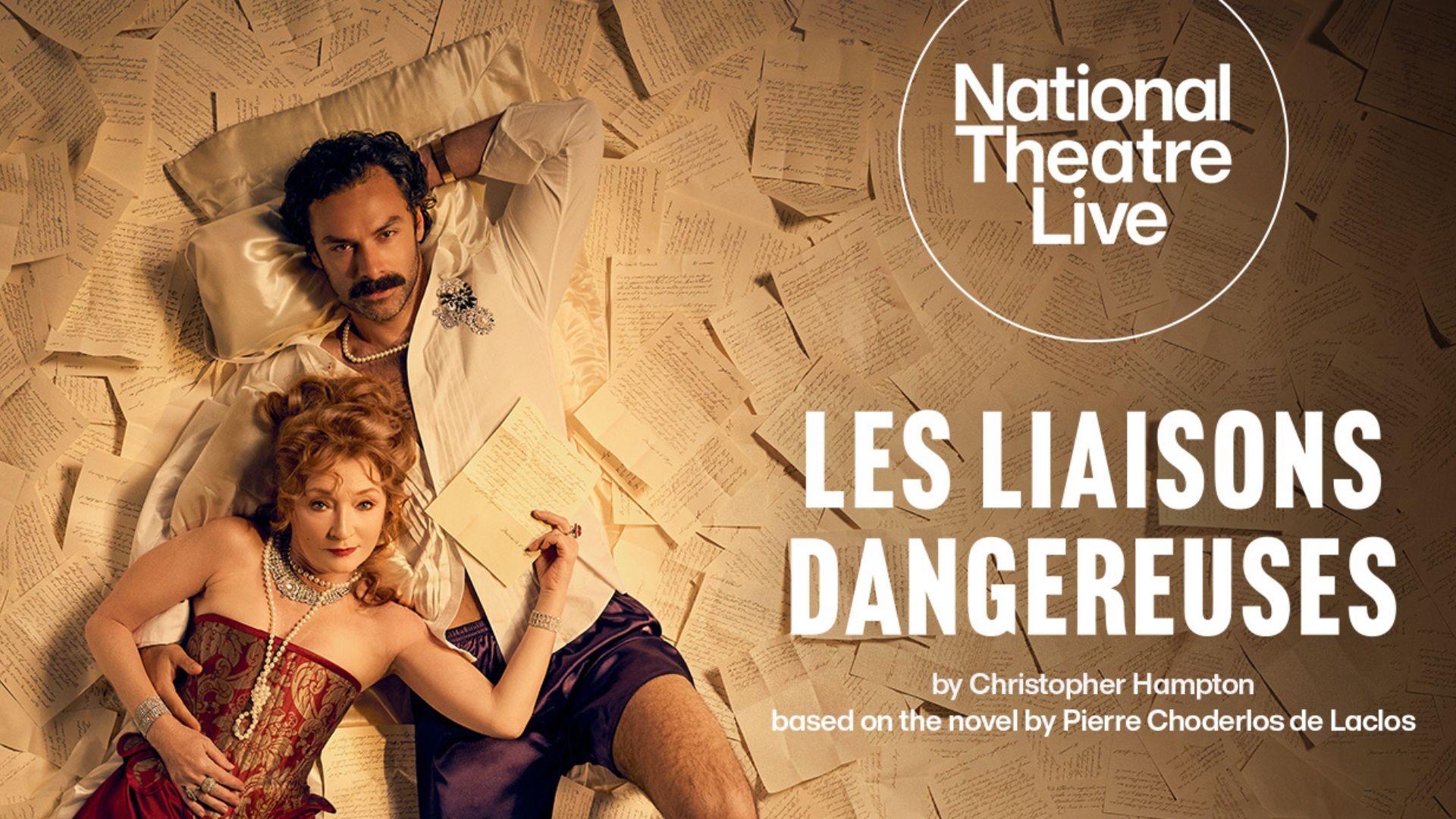
BAFTA Award-winner Lesley Manville (Phantom Thread) joins Aidan Turner (Rivals) in a striking new staging of Christopher Hampton’s celebrated adaptation of the classic novel, where among the glittering salons of the super-rich, one misstep can mean ruin.
BAFTA Award-winner Lesley Manville (Phantom Thread) joins Aidan Turner (Rivals) in a striking new staging of Christopher Hampton’s celebrated adaptation of the classic novel, where among the glittering salons of the super-rich, one misstep can mean ruin.
Marquise de Merteuil is a master in the art of survival. Alongside the magnetic Vicomte de Valmont, they turn seduction into strategy and weaponise desire. But when their alliance collapses into rivalry, the battle between them threatens to destroy everyone in their path.
Filmed live on stage at the National Theatre, Marianne Elliott (Angels in America) directs this thrilling game of love, lies, and social warfare.